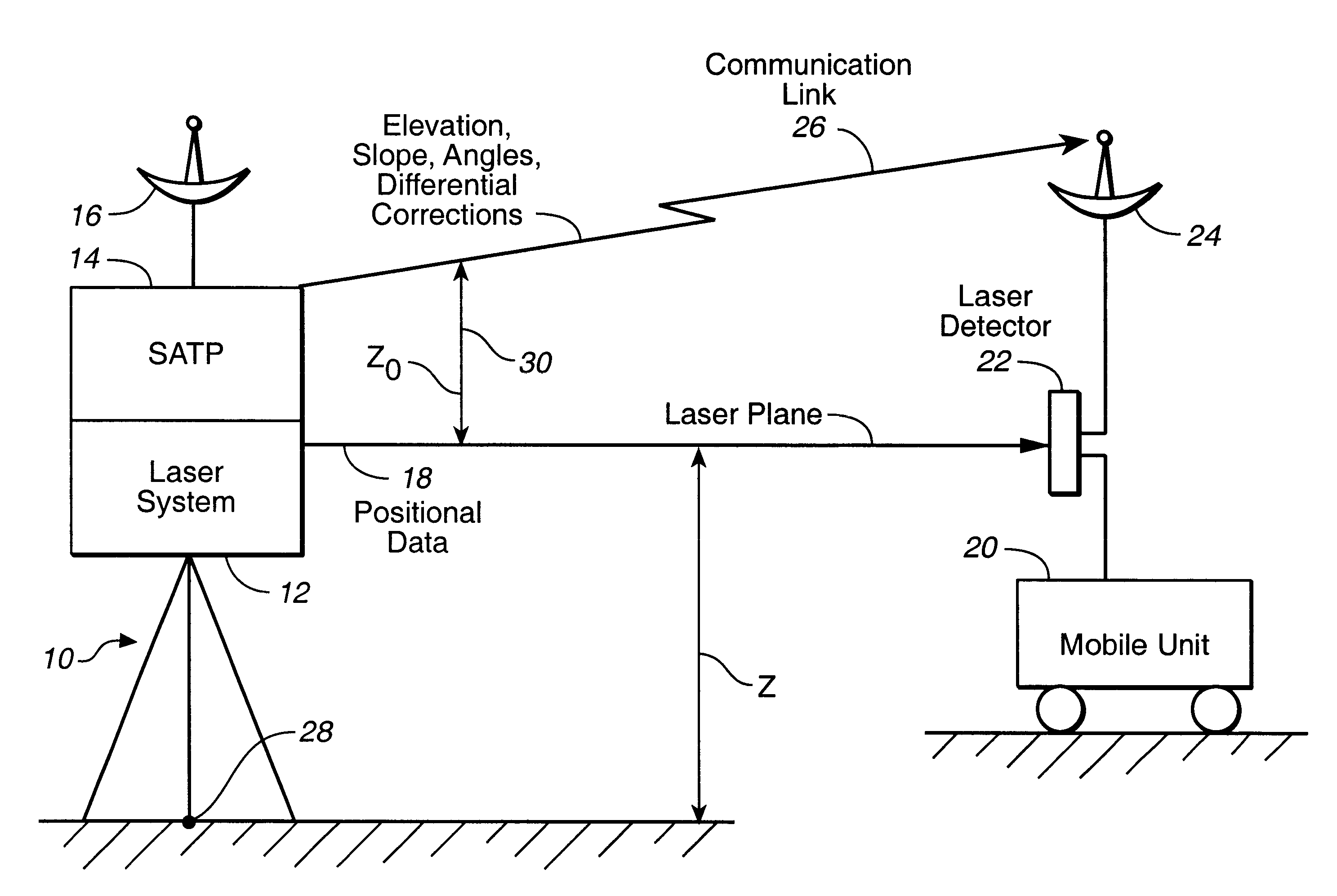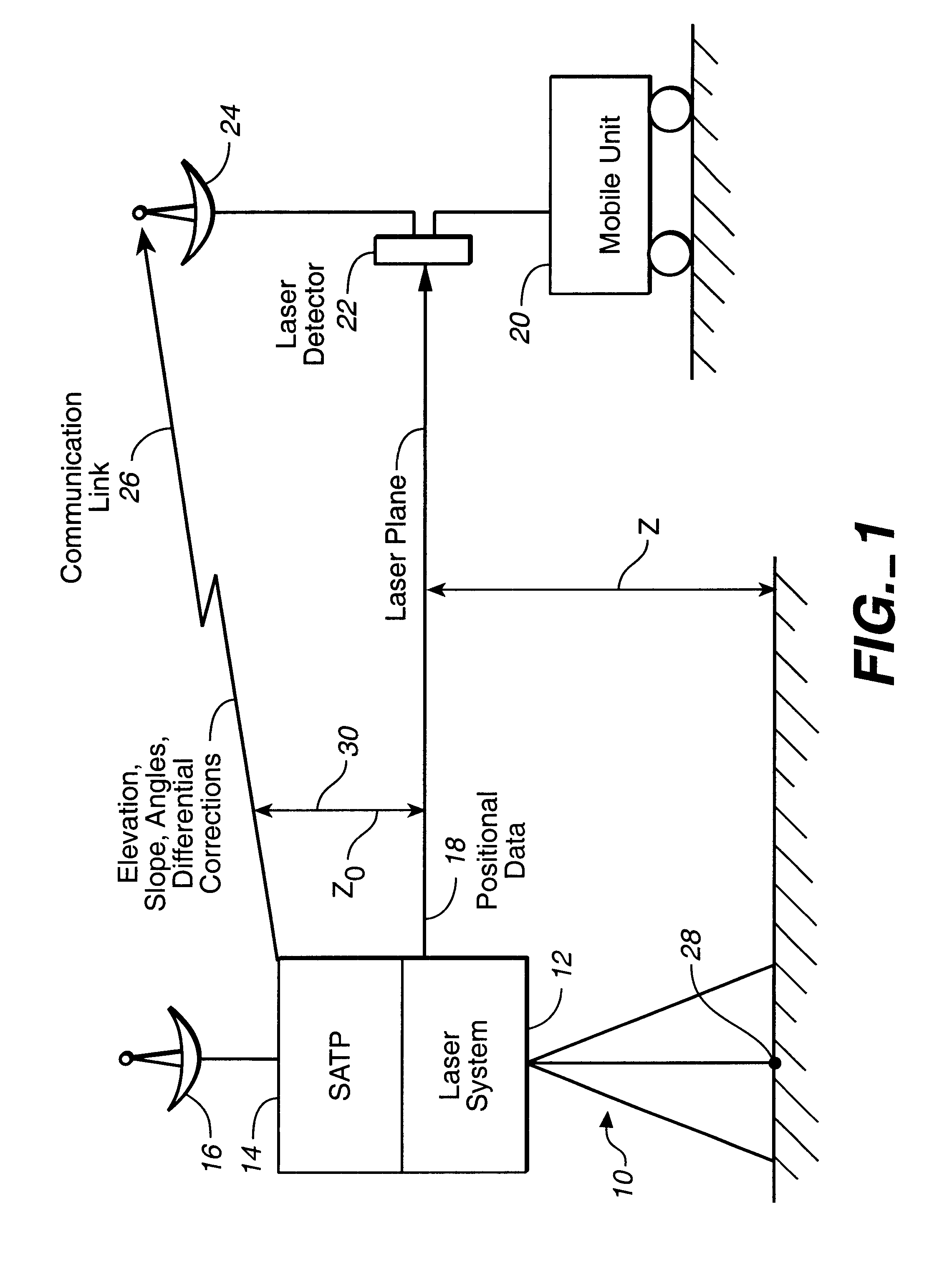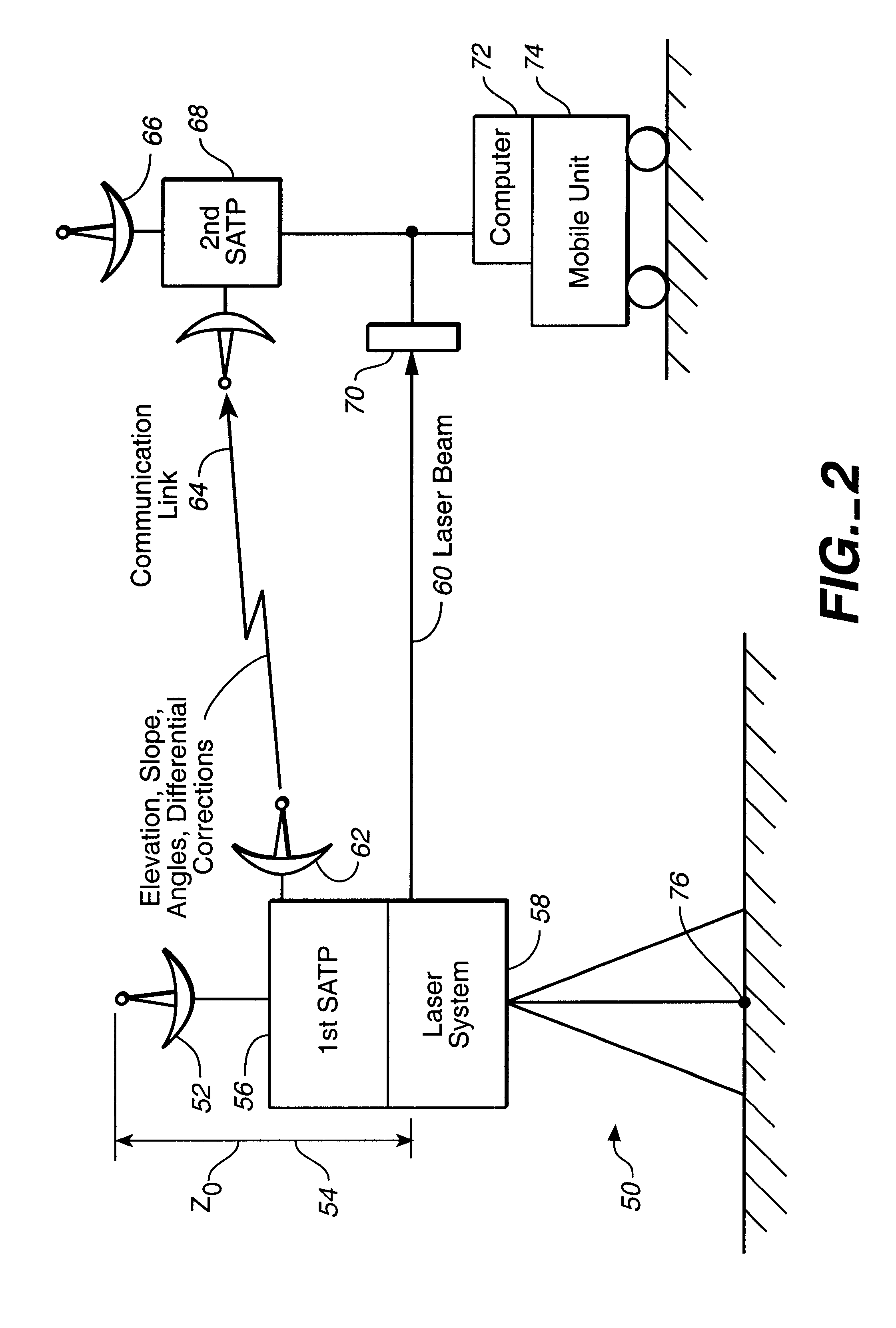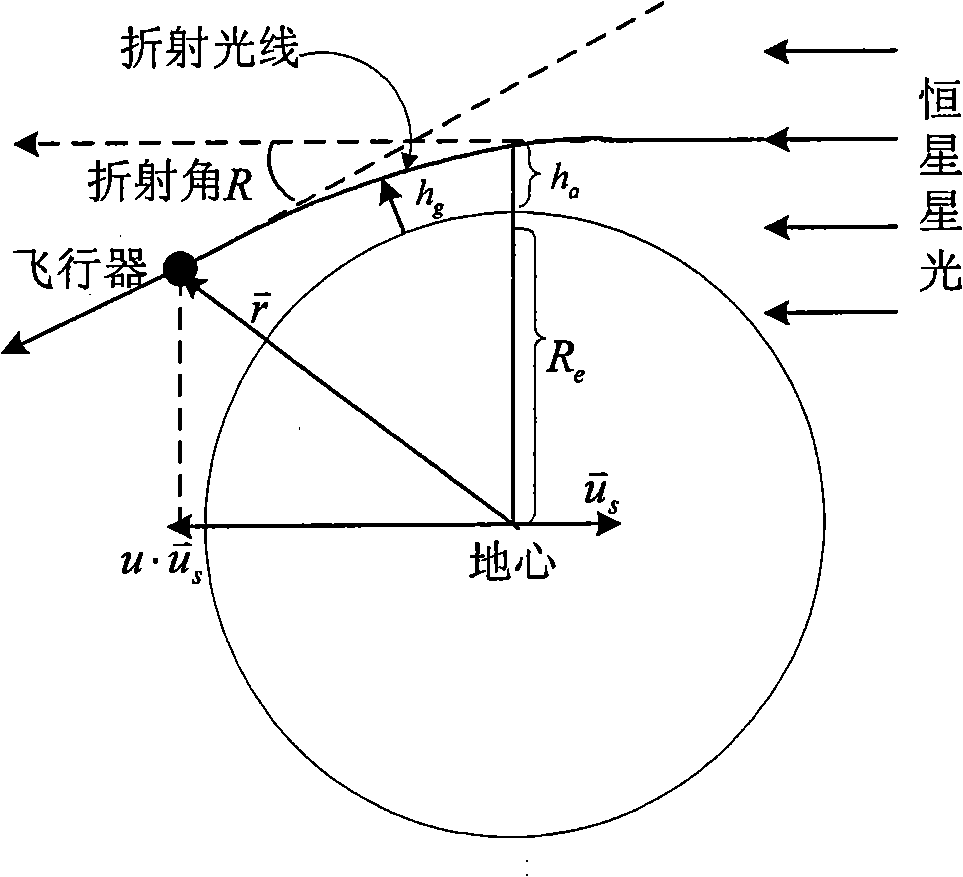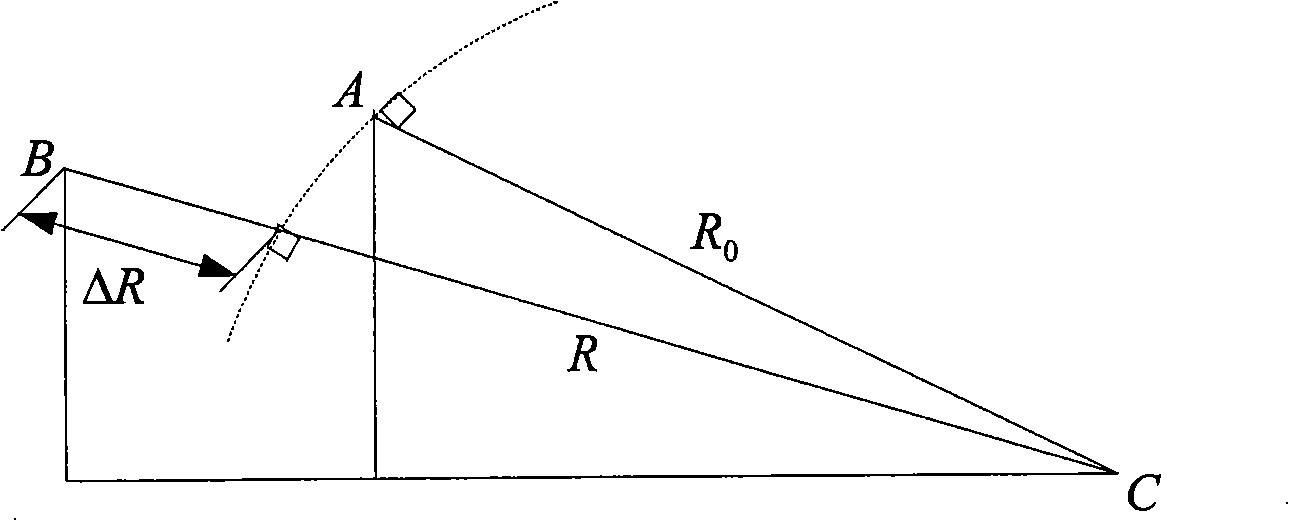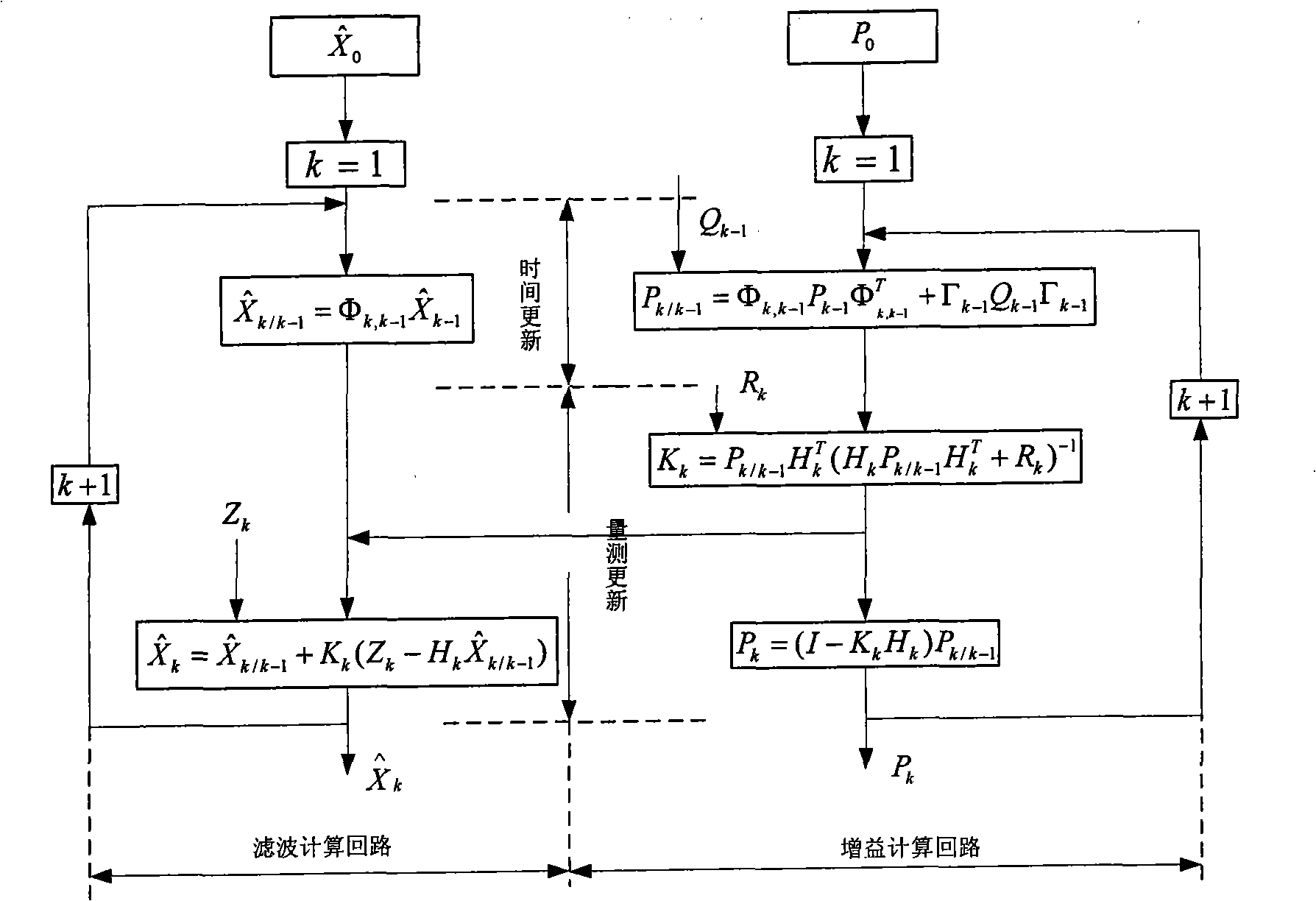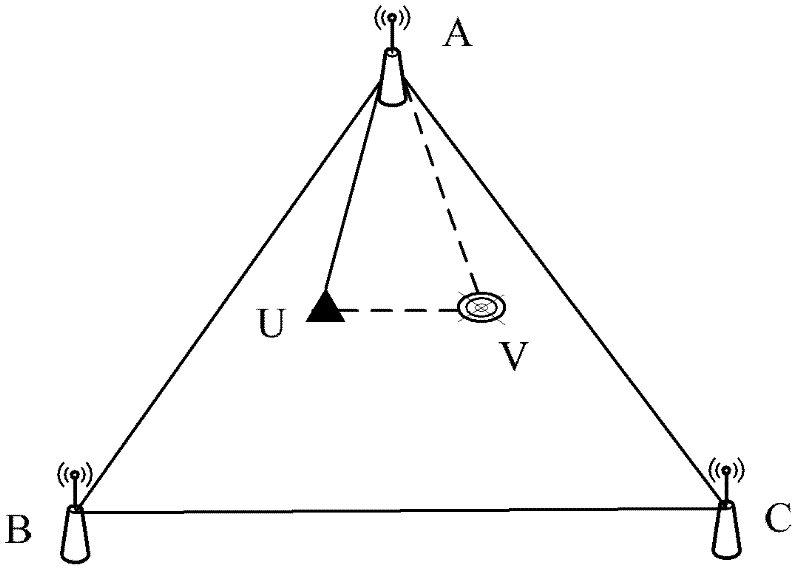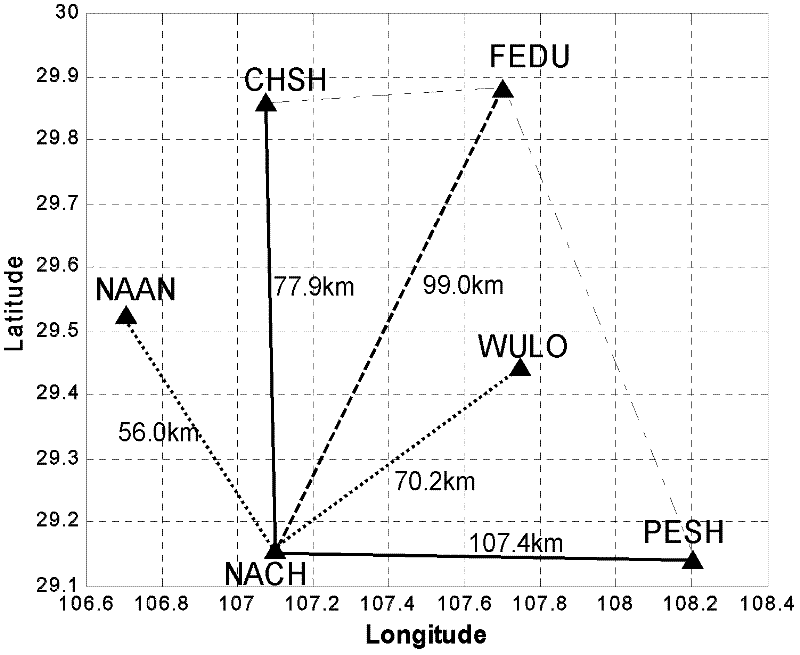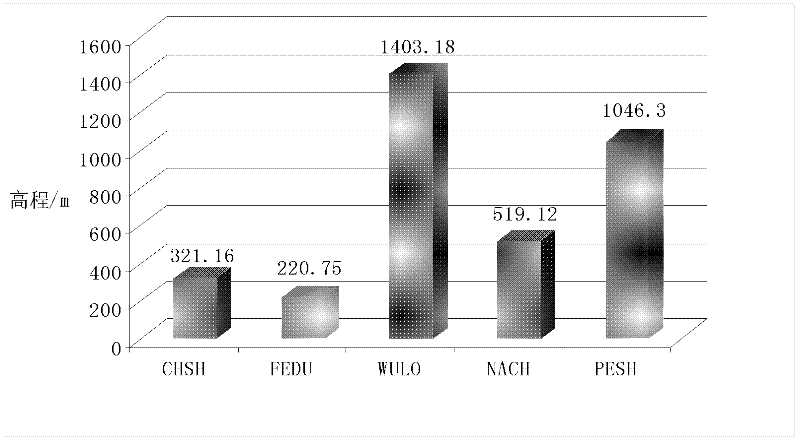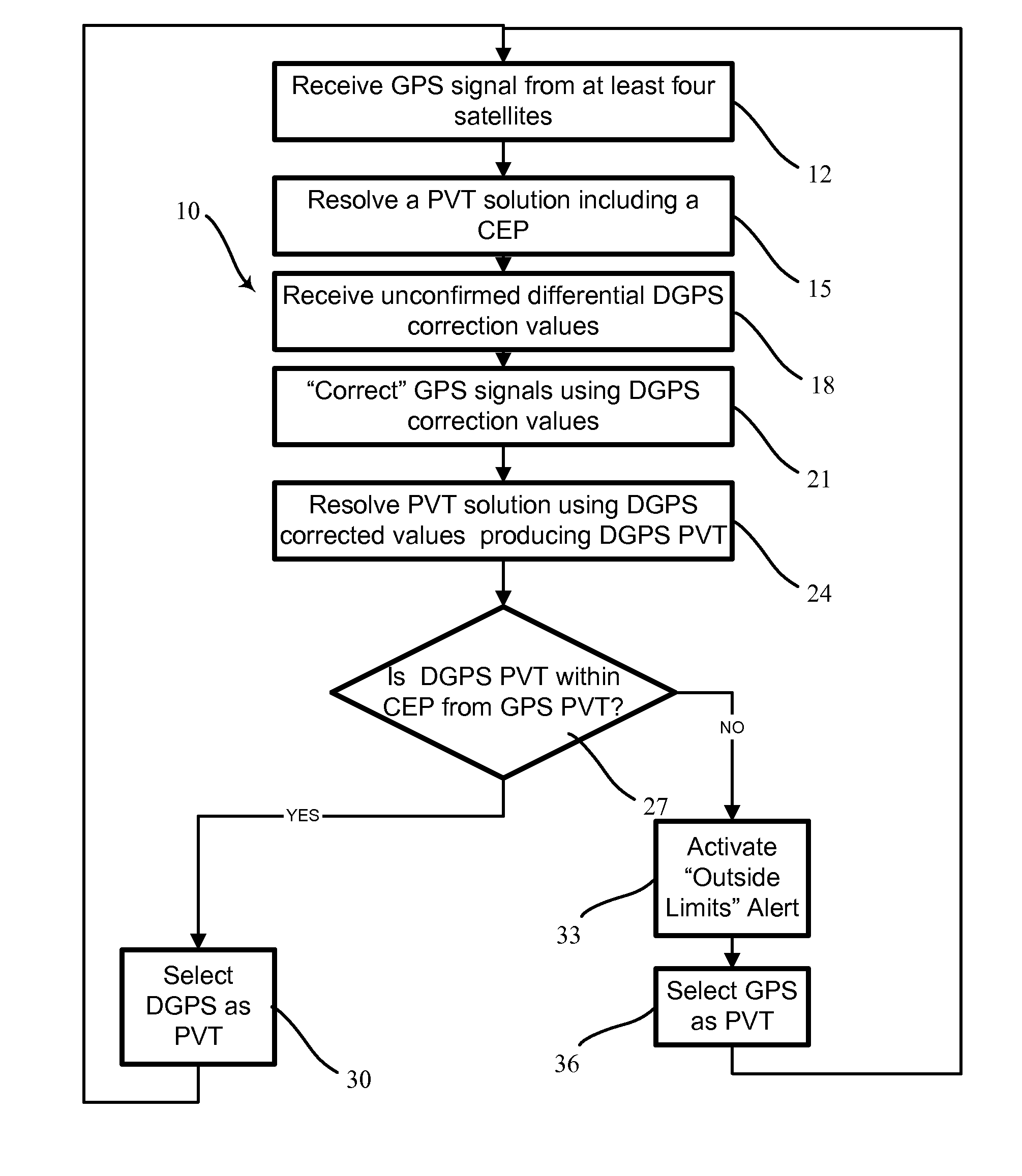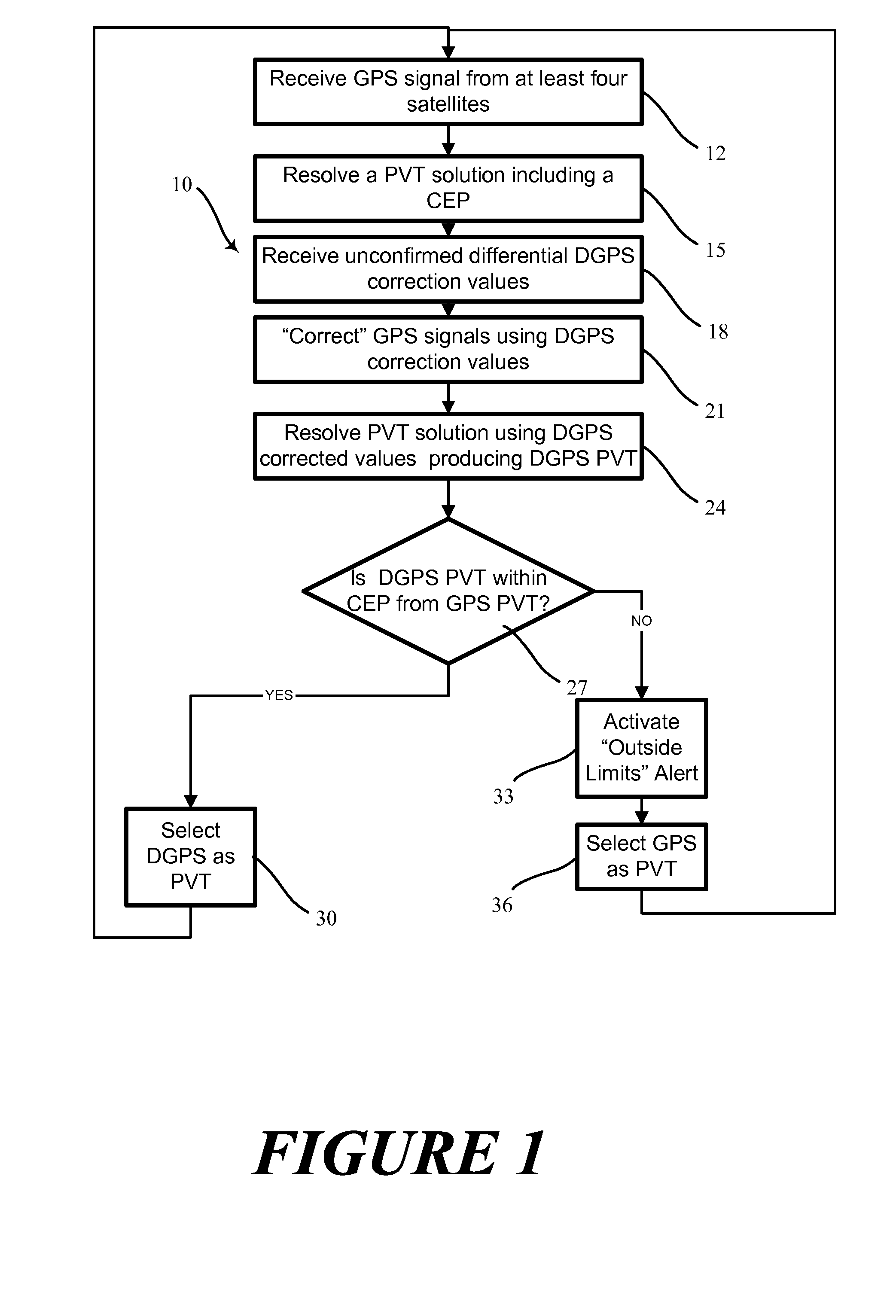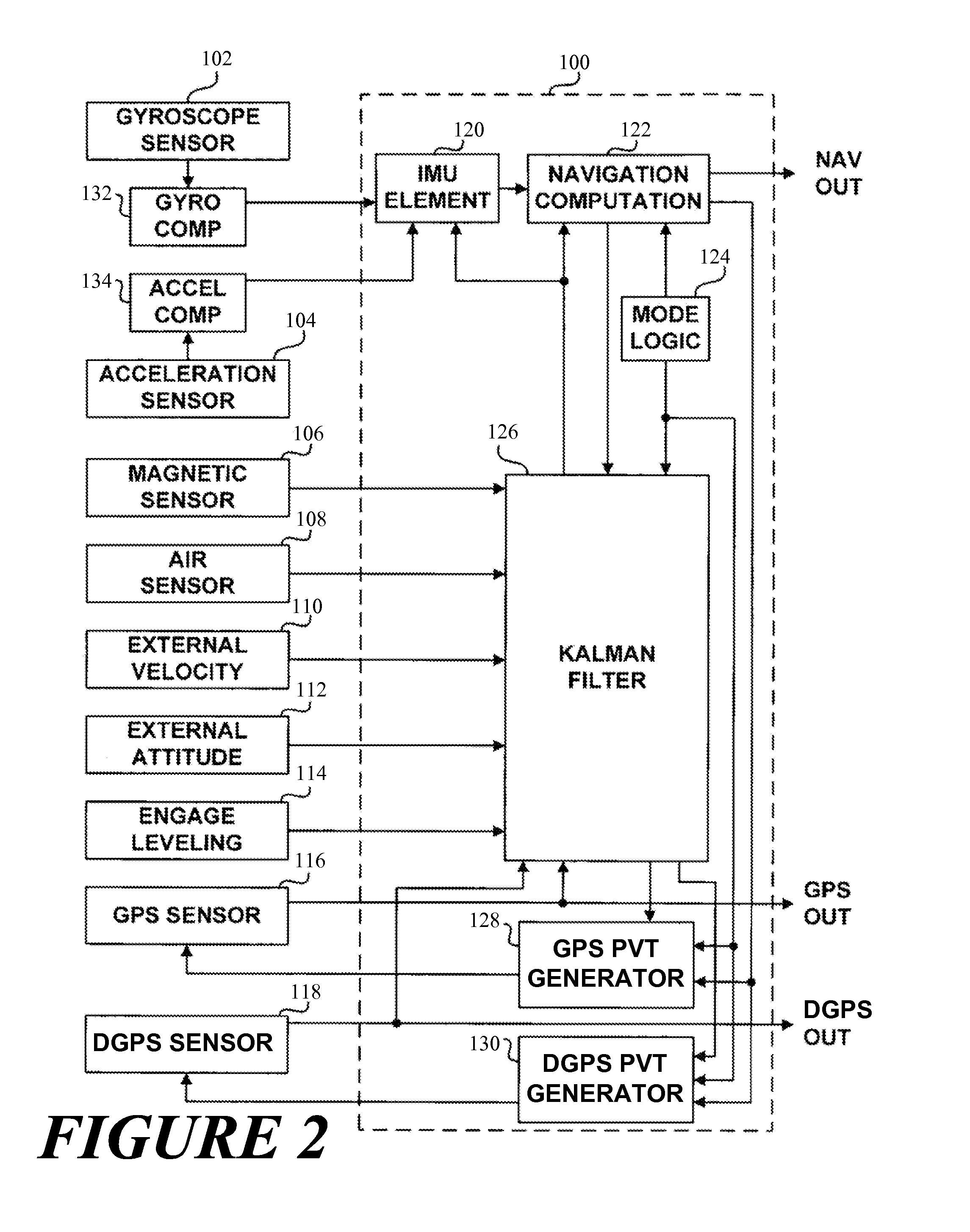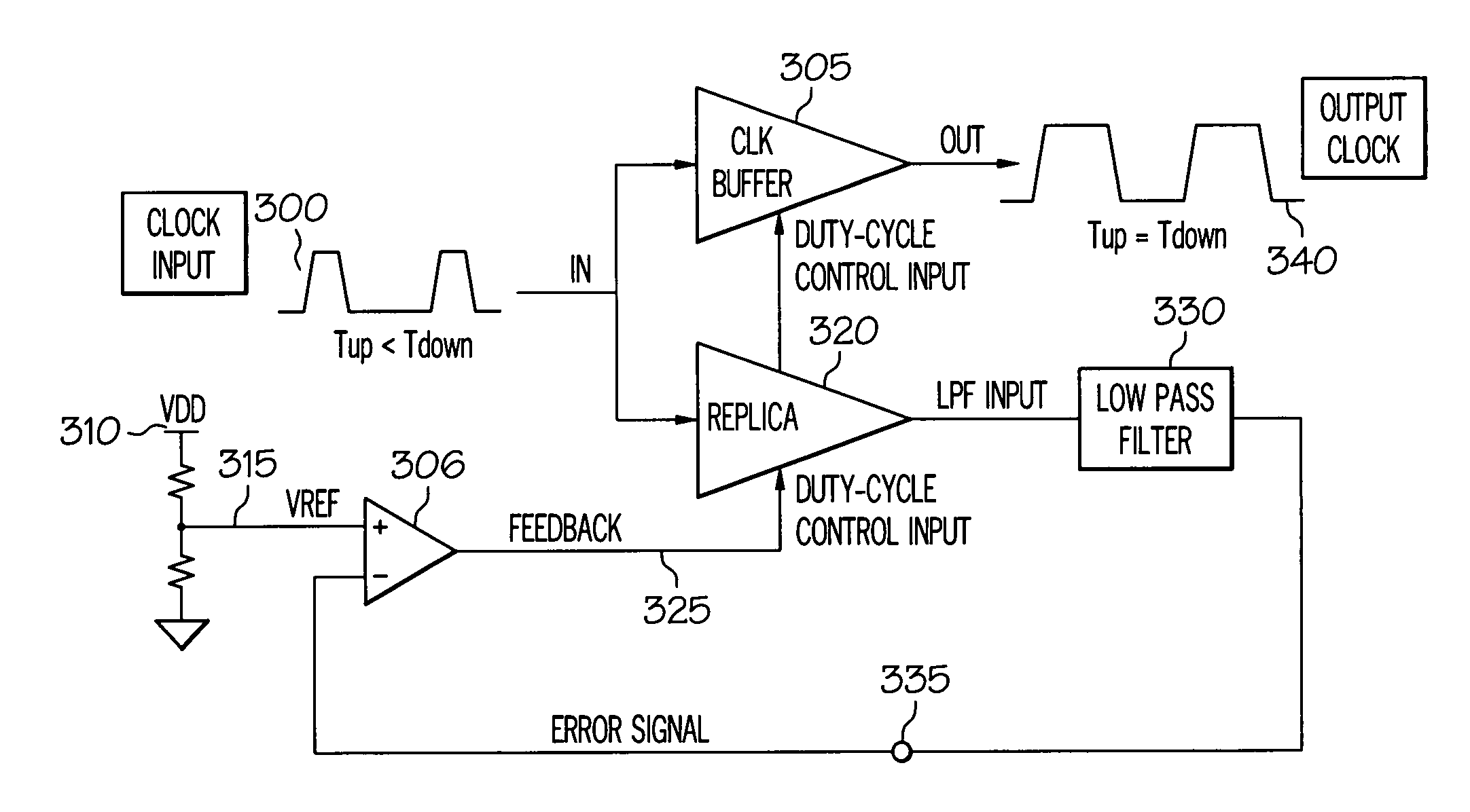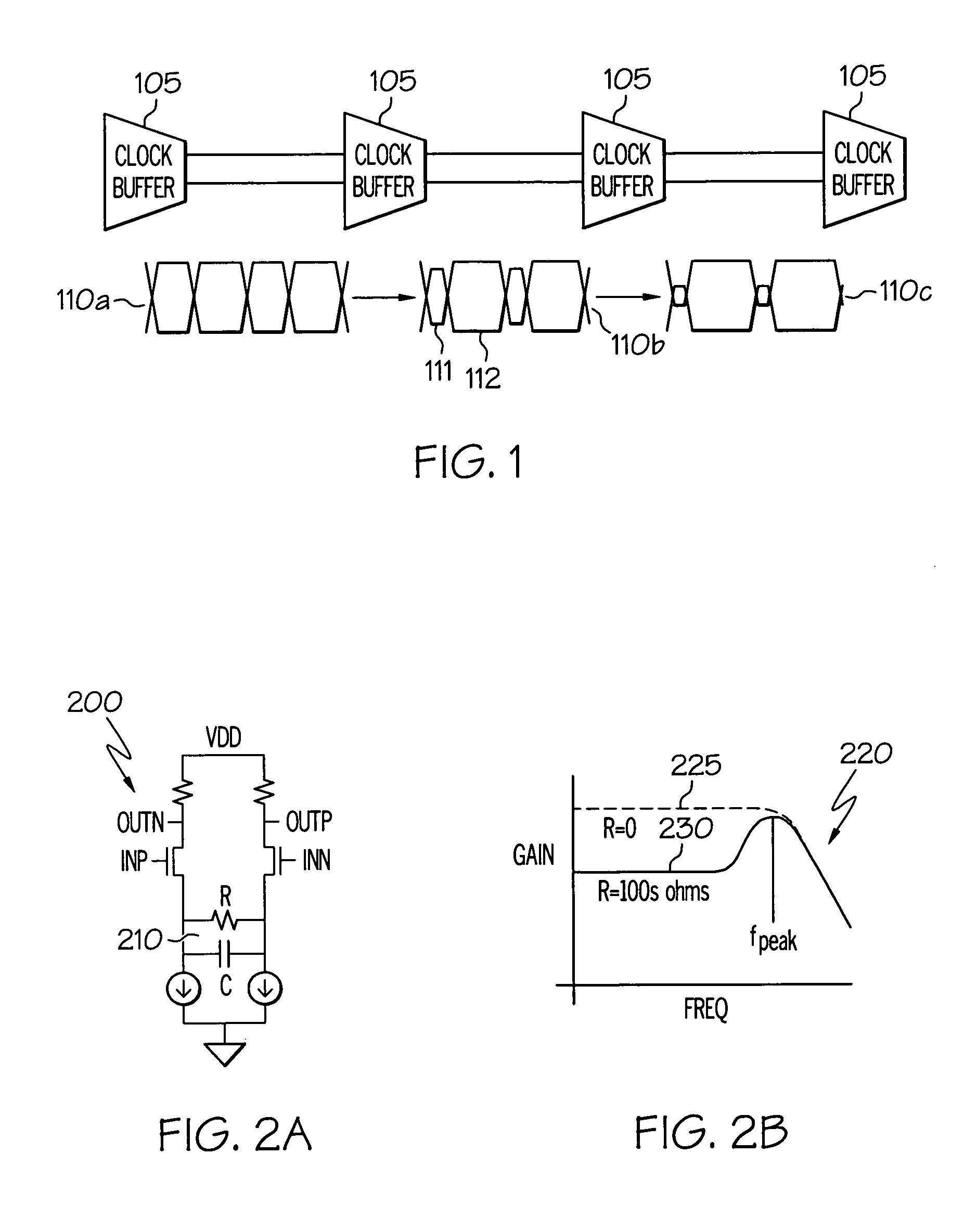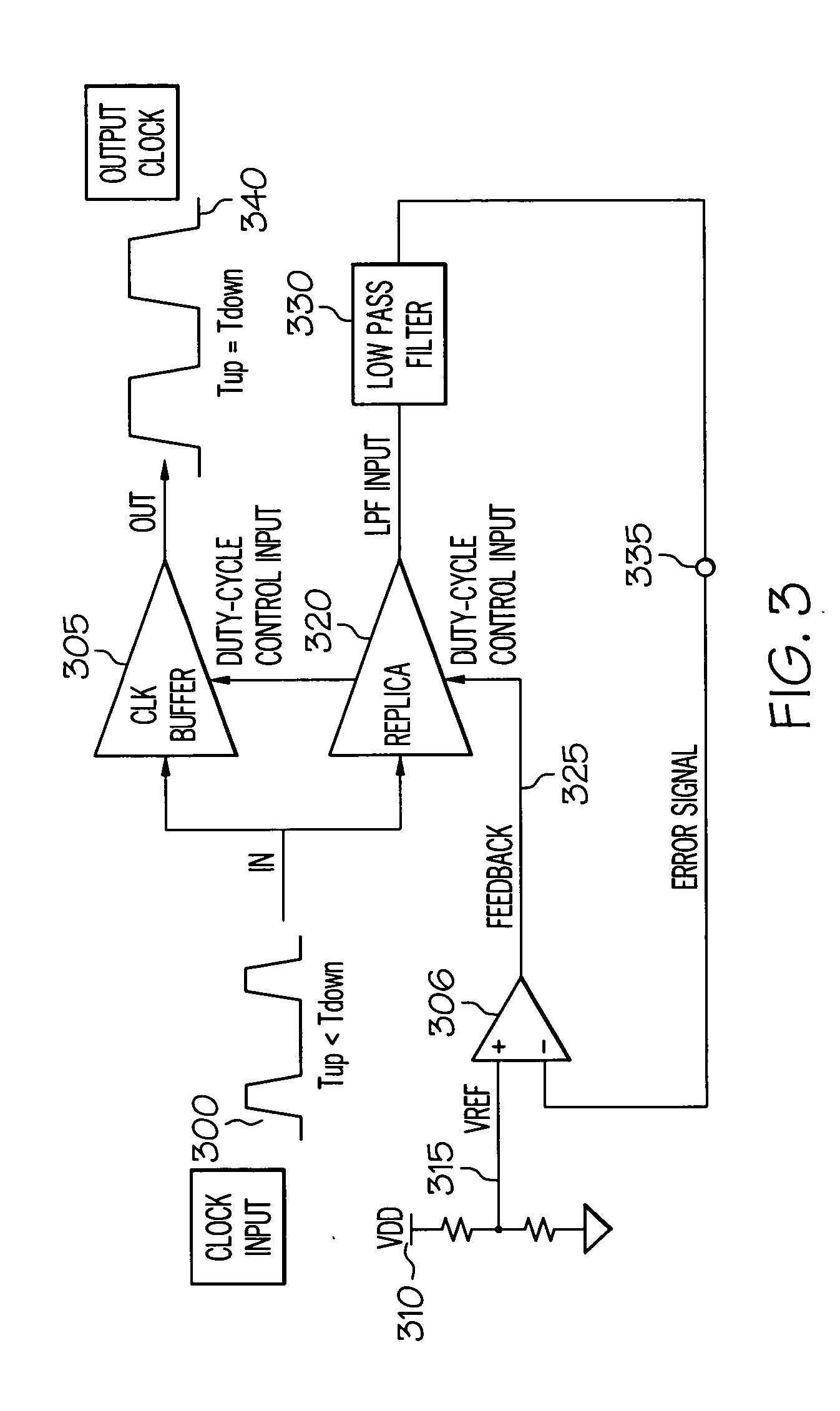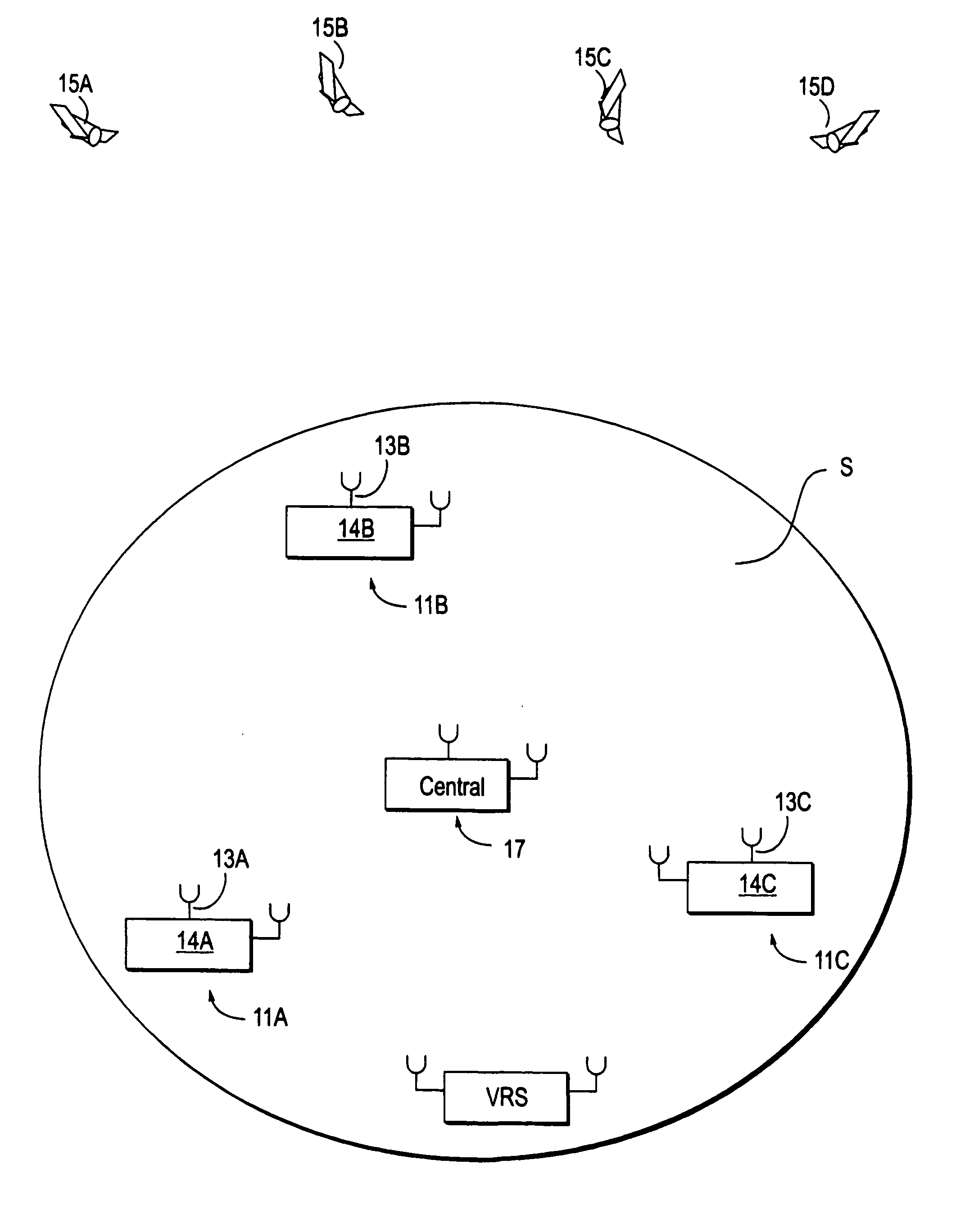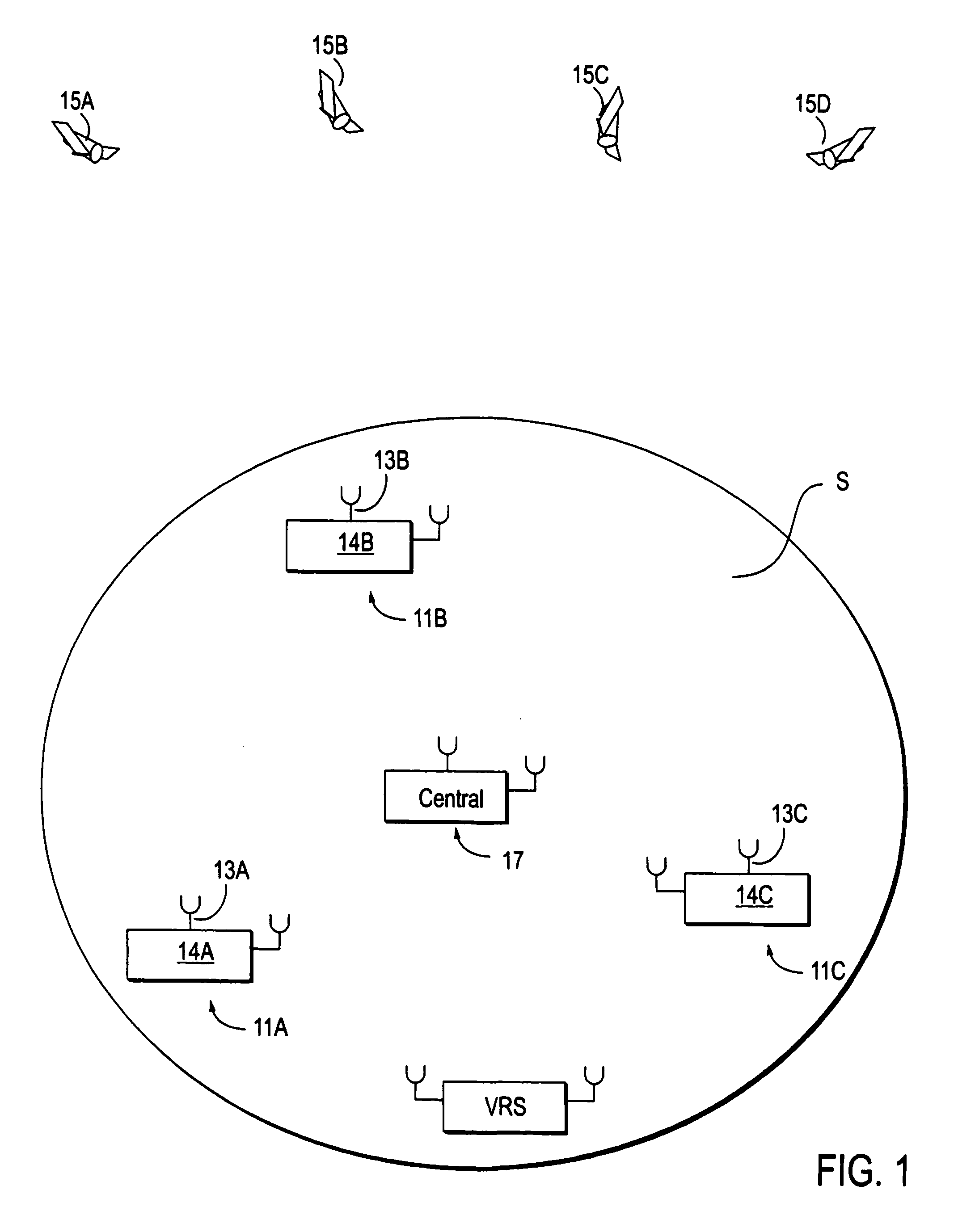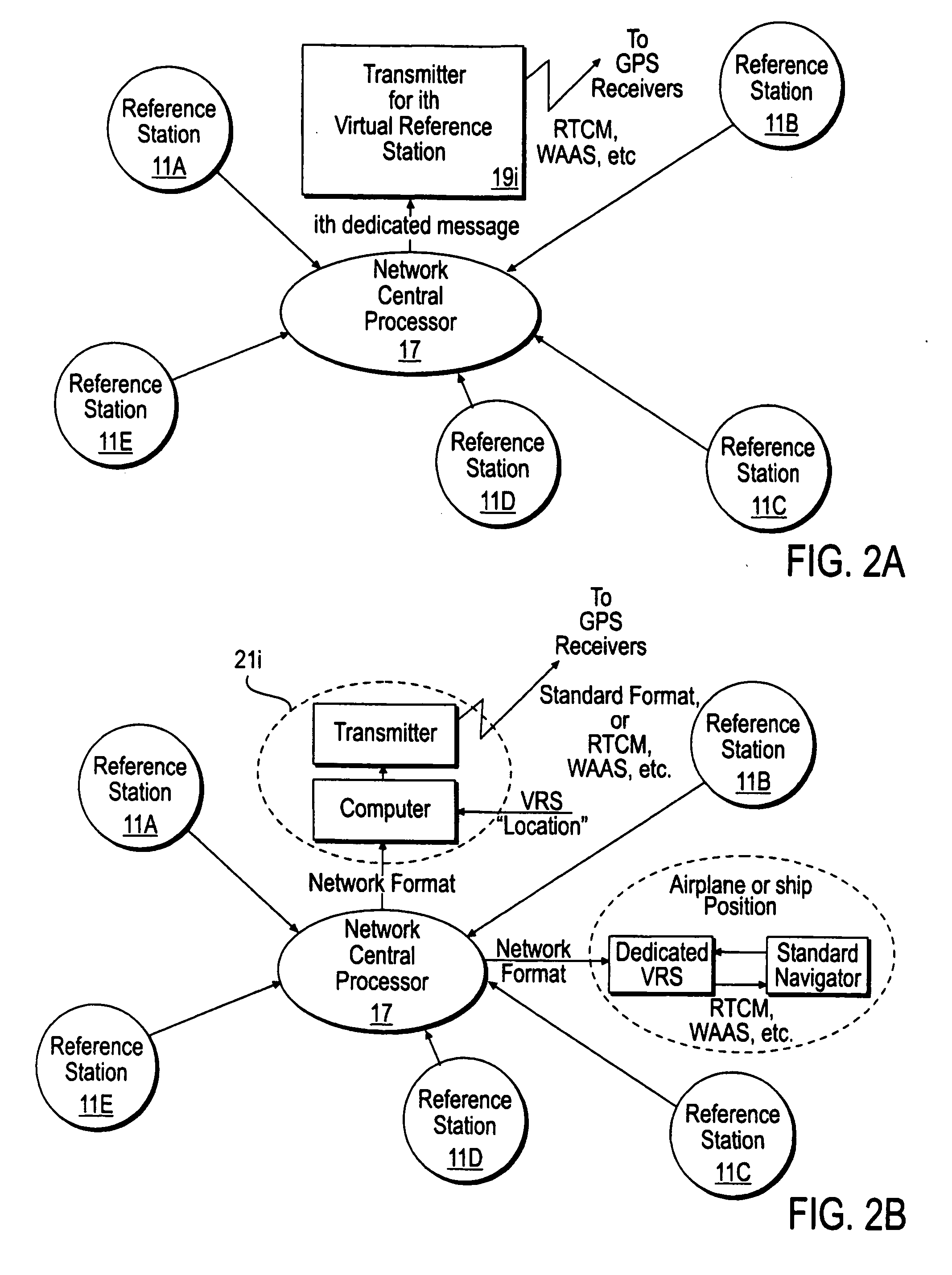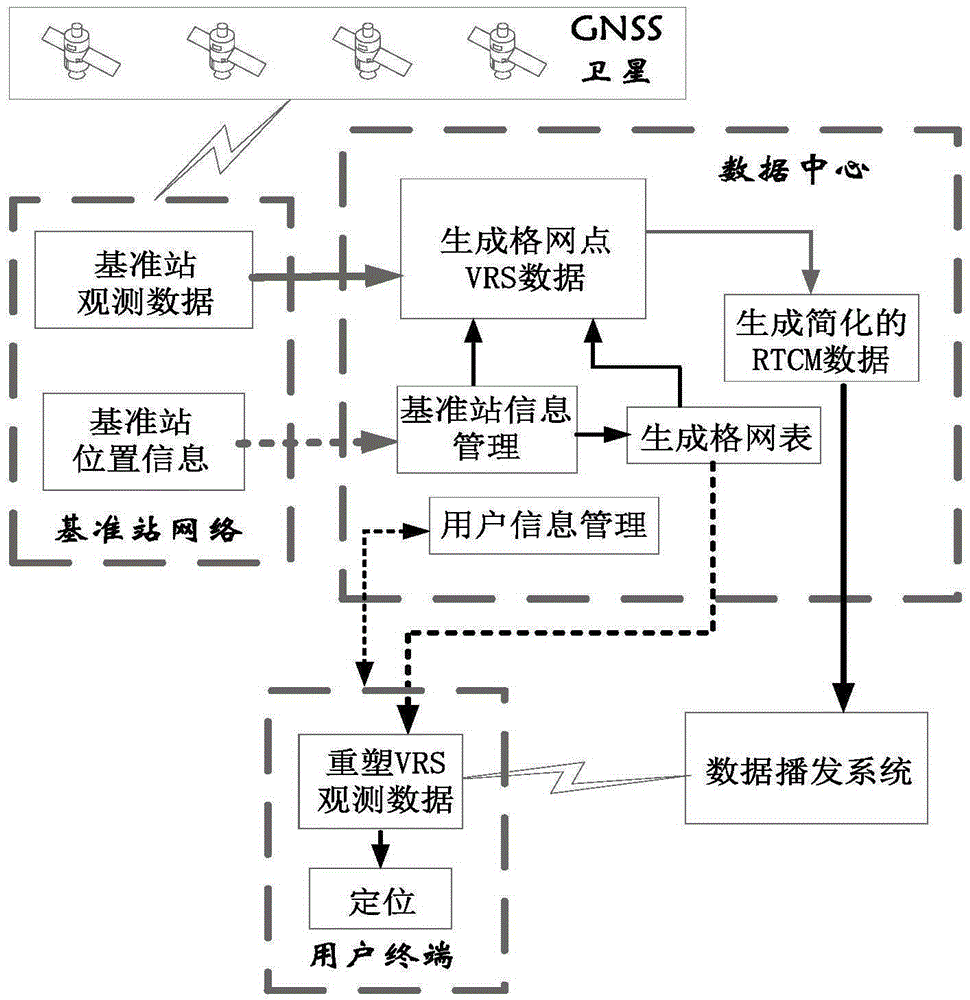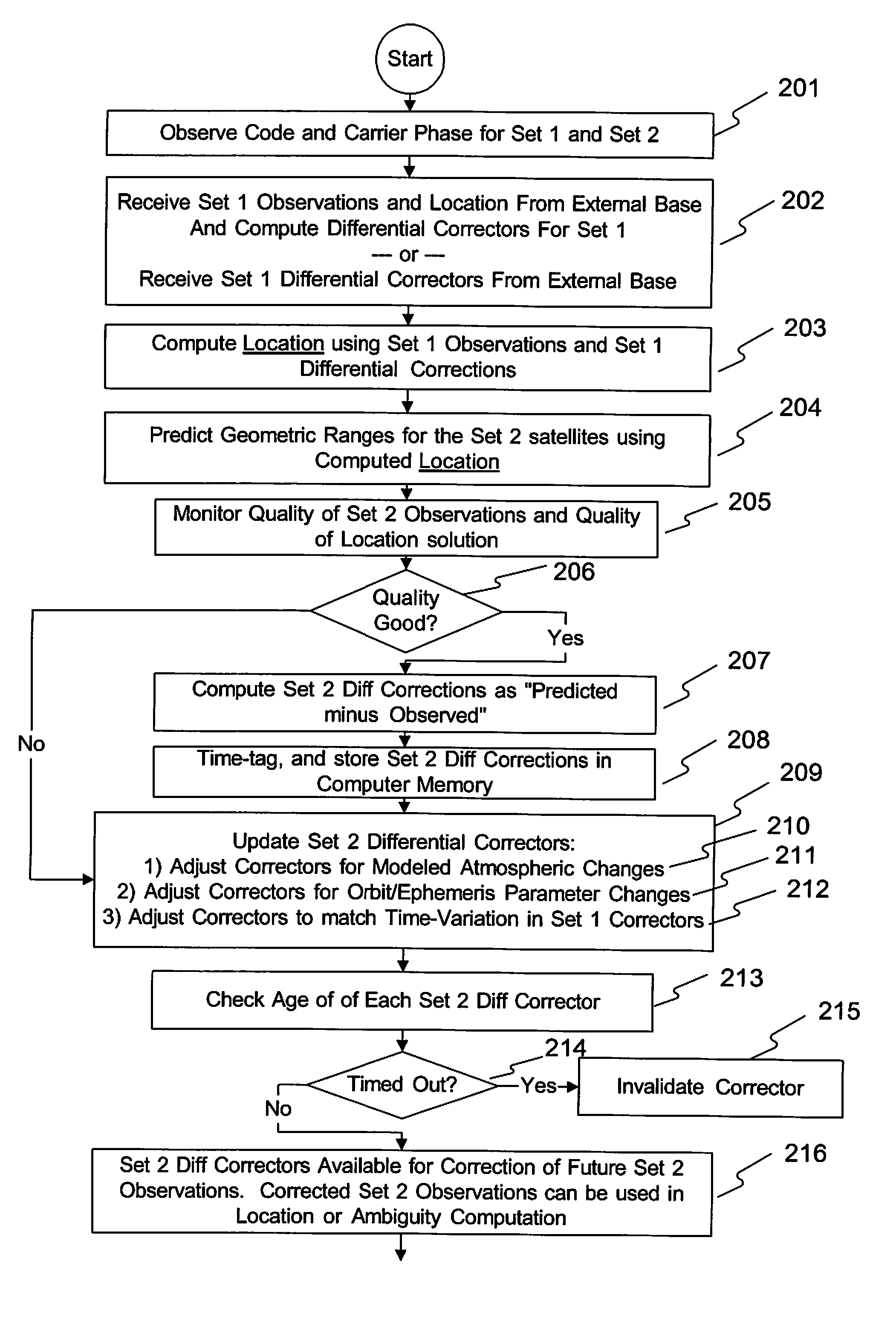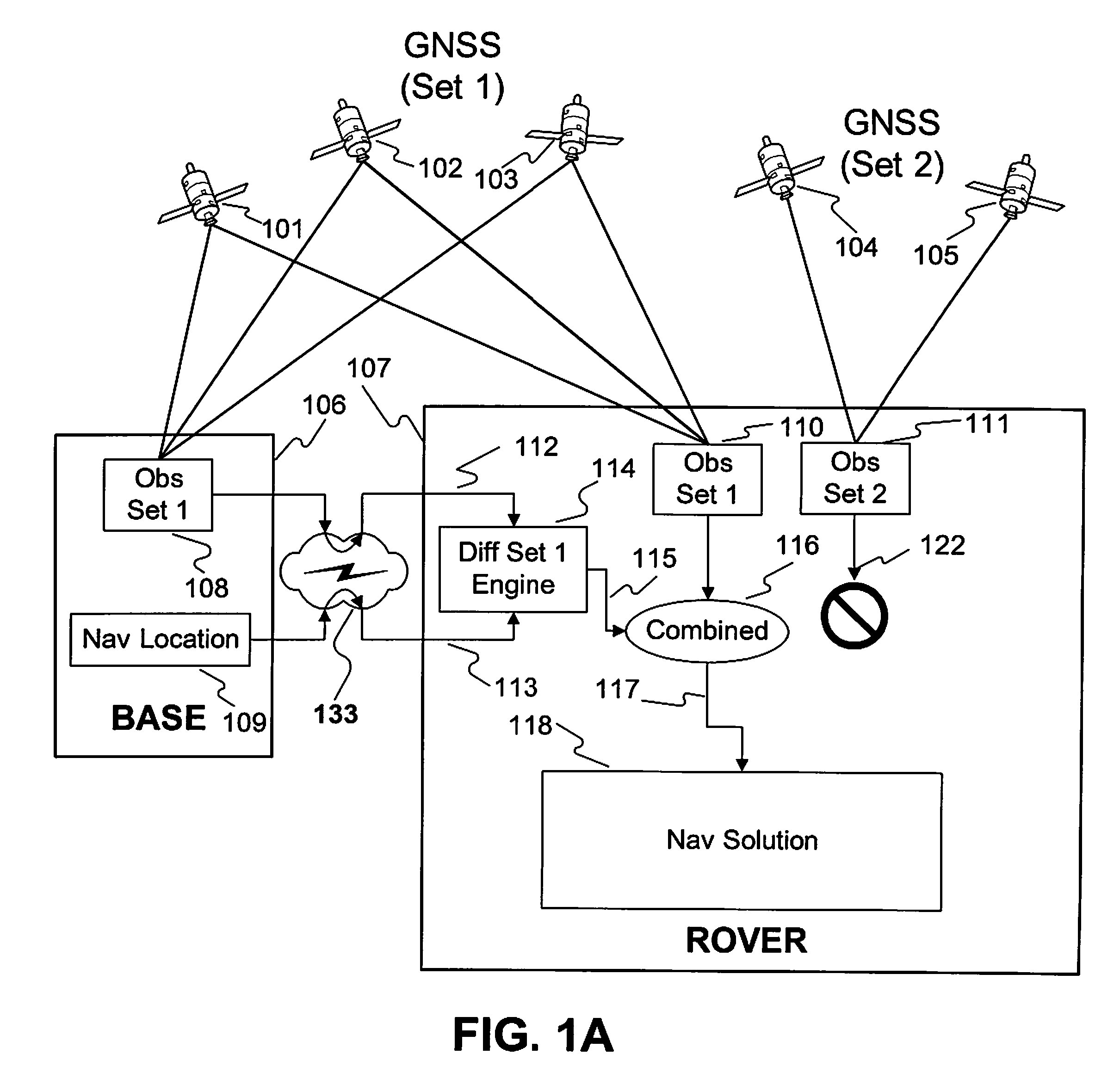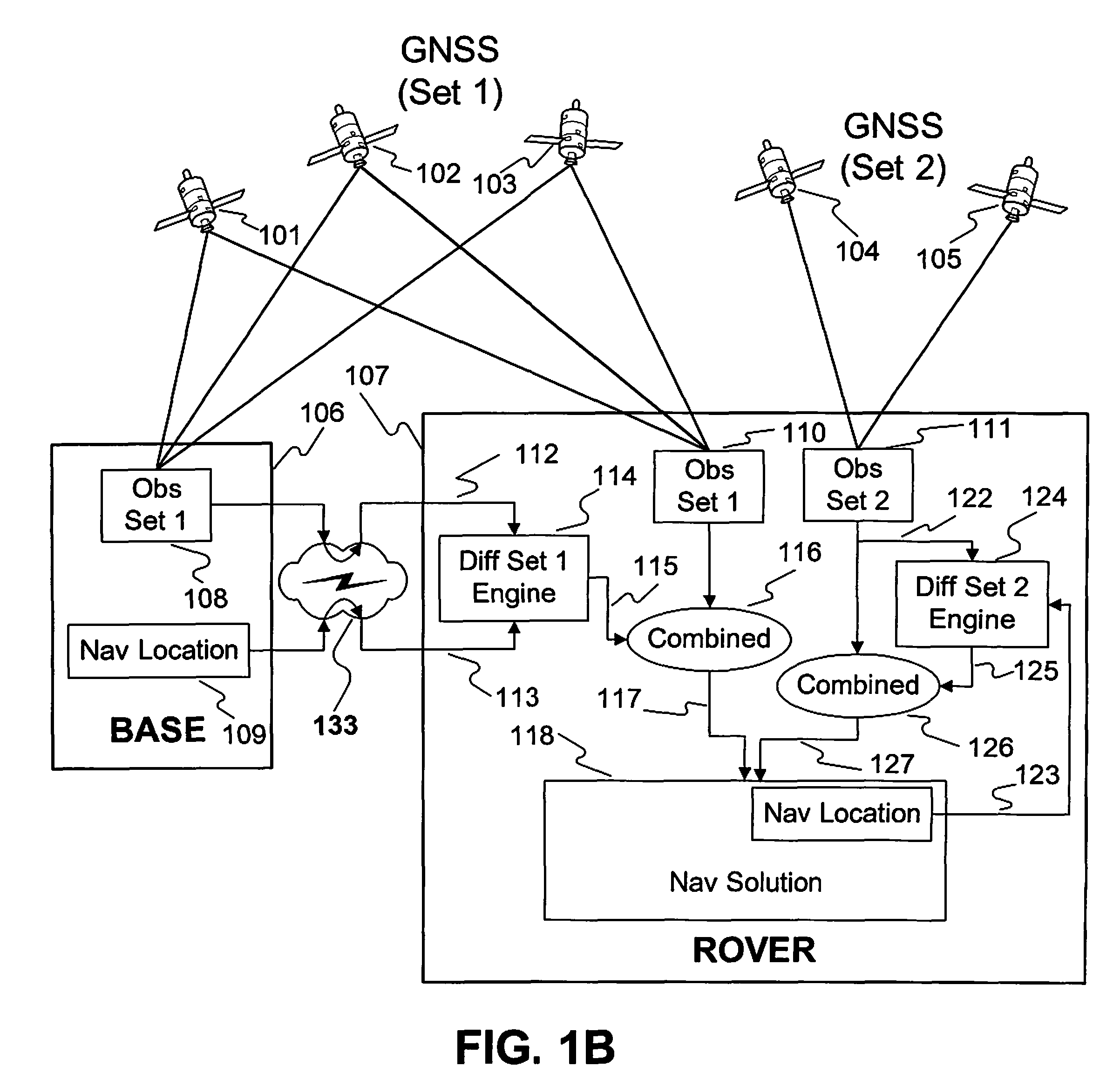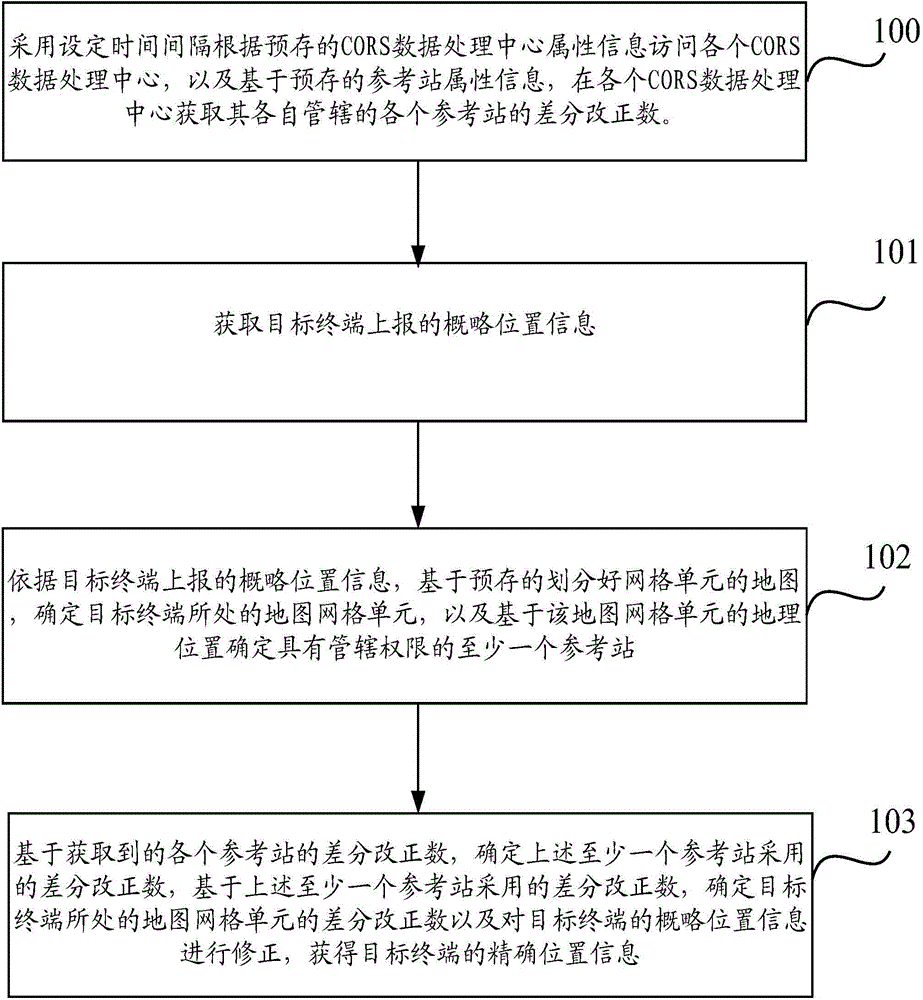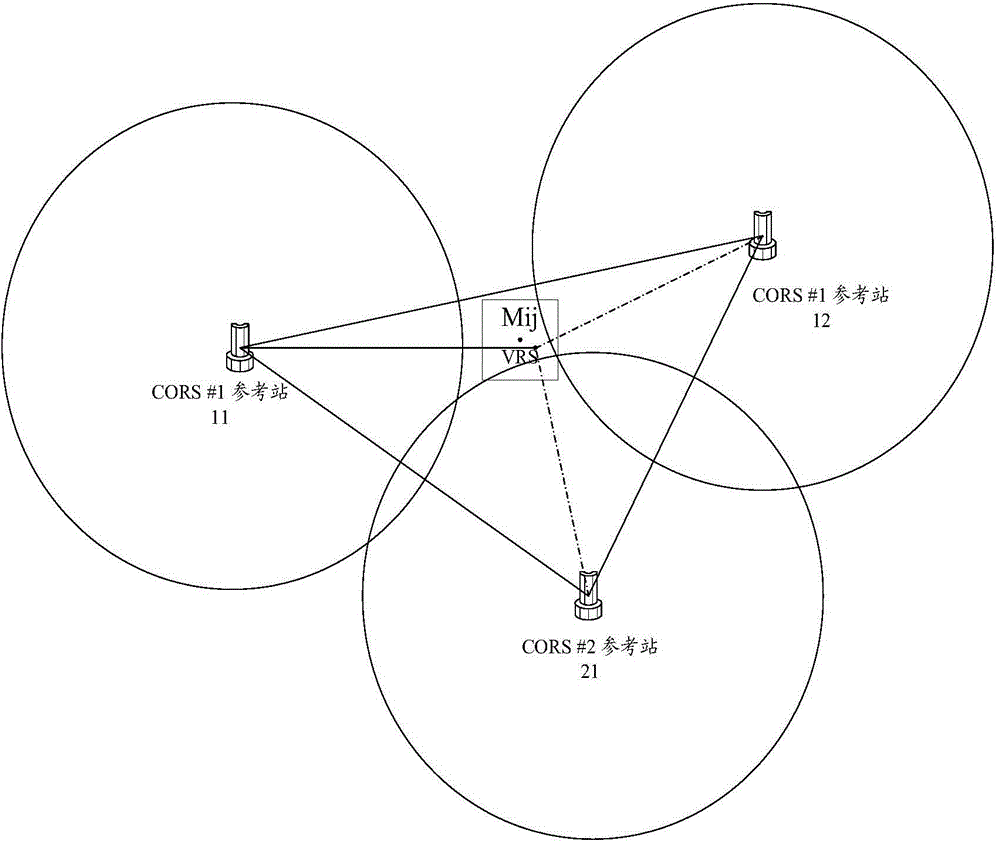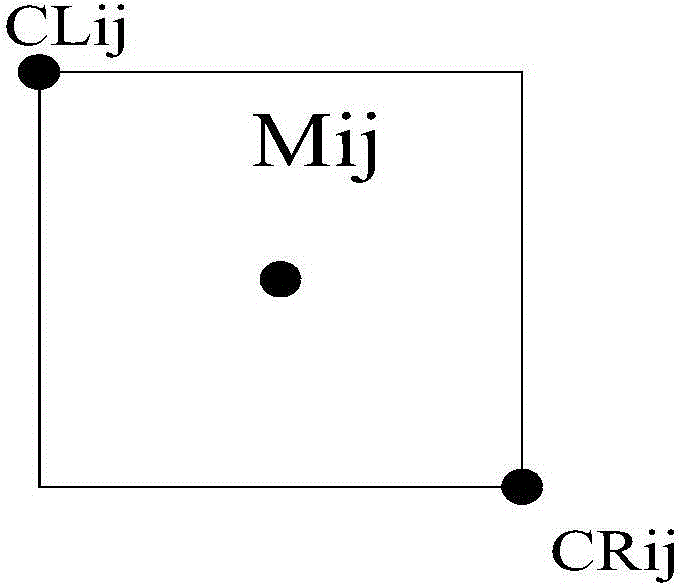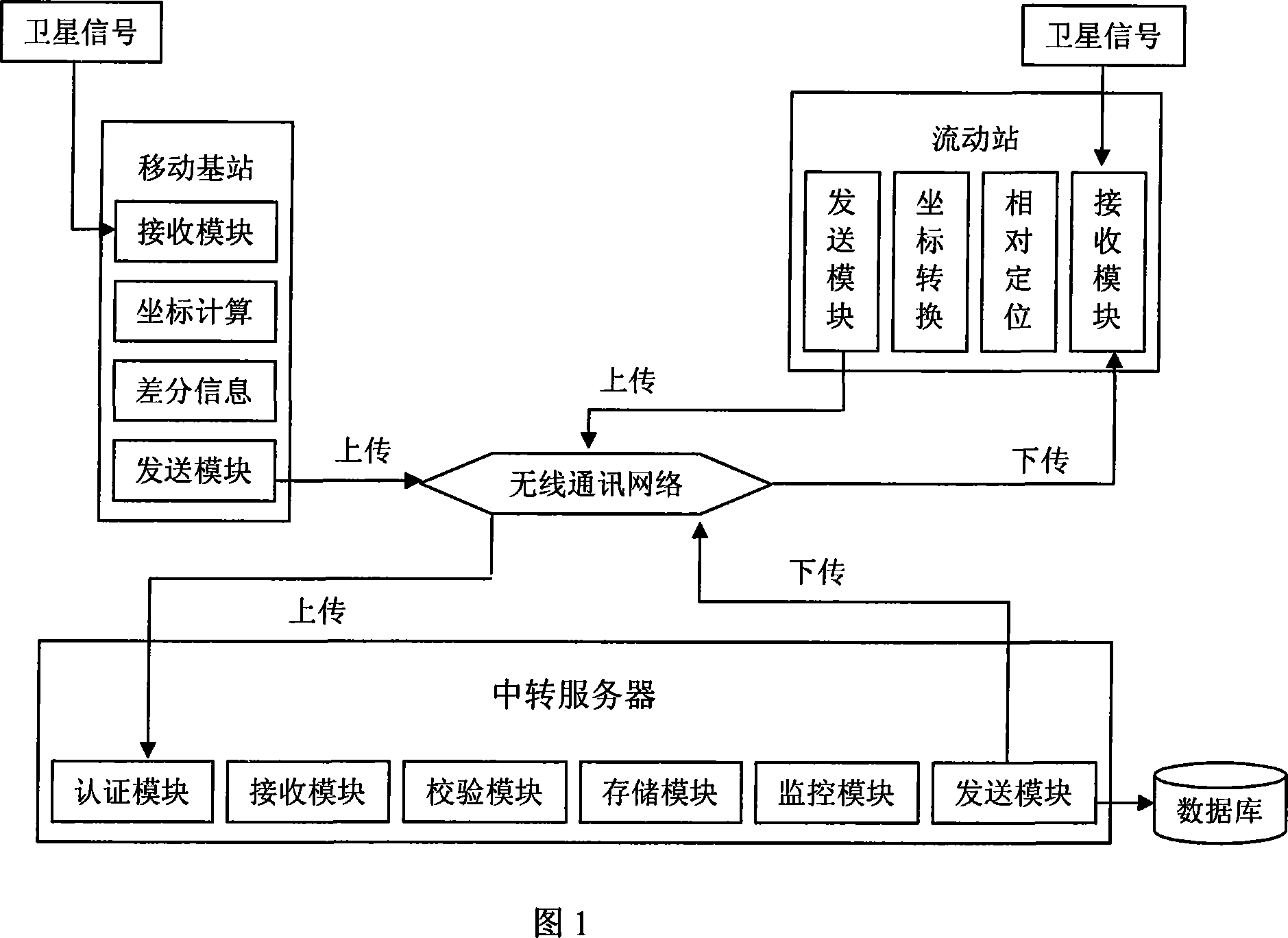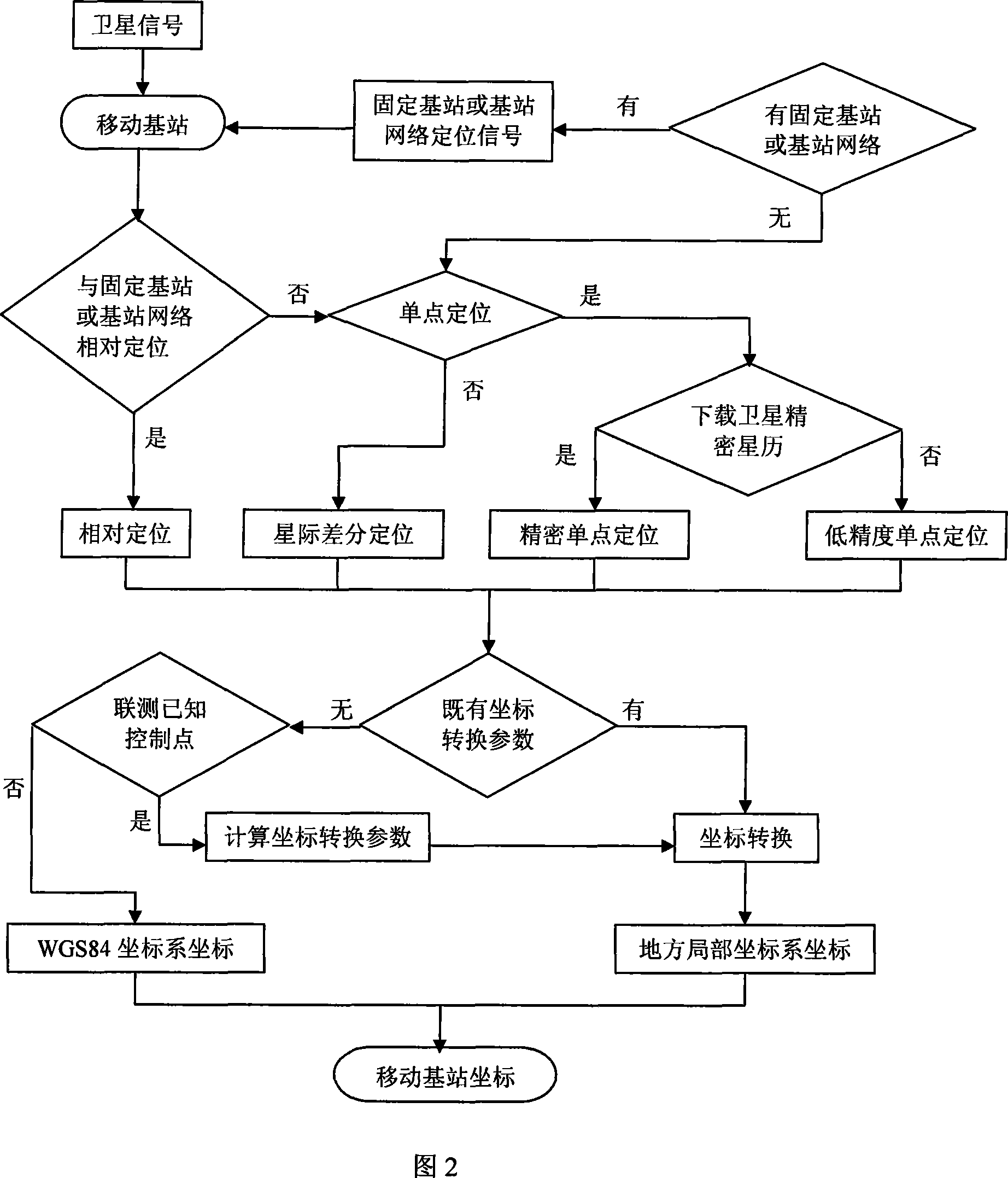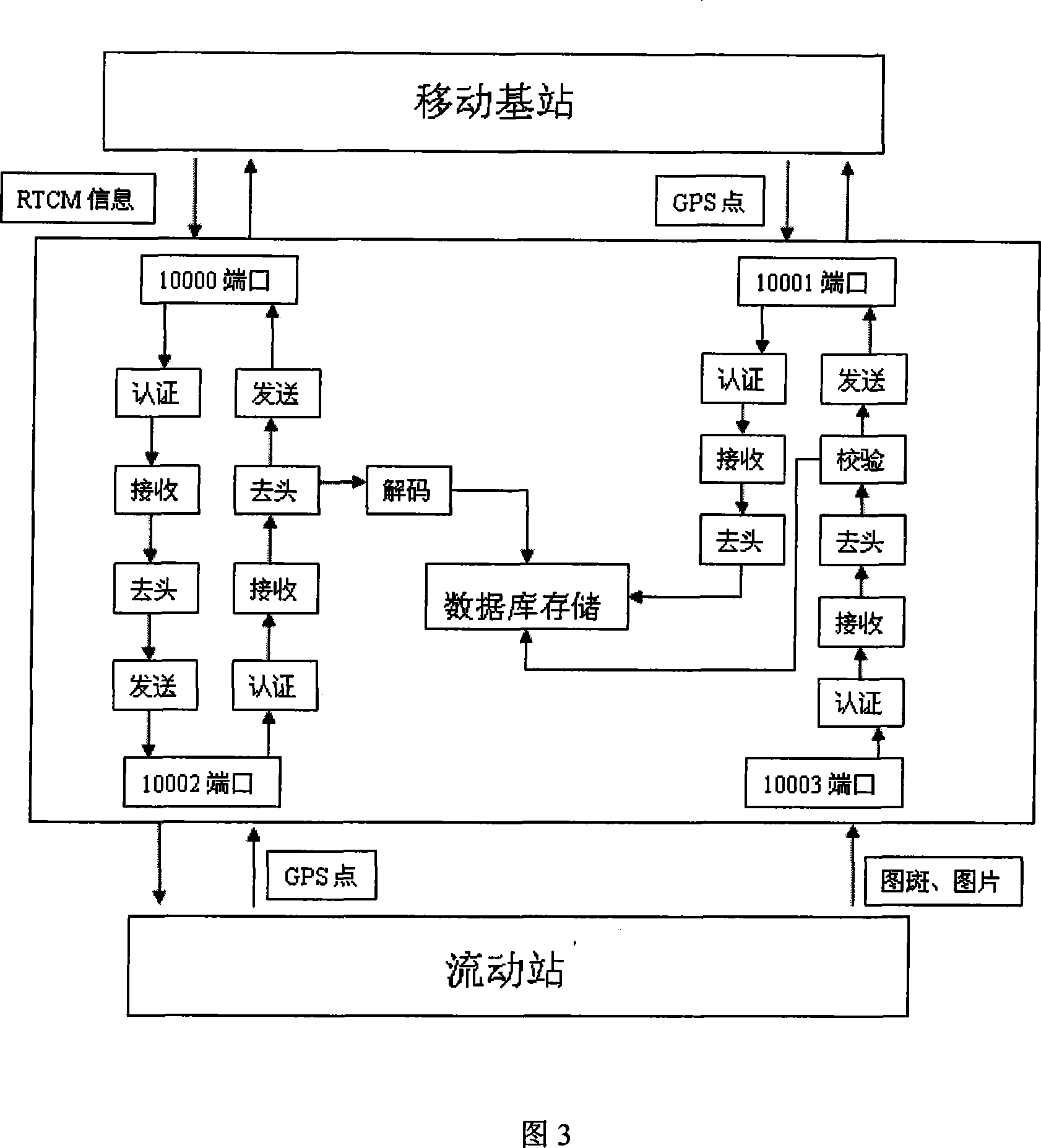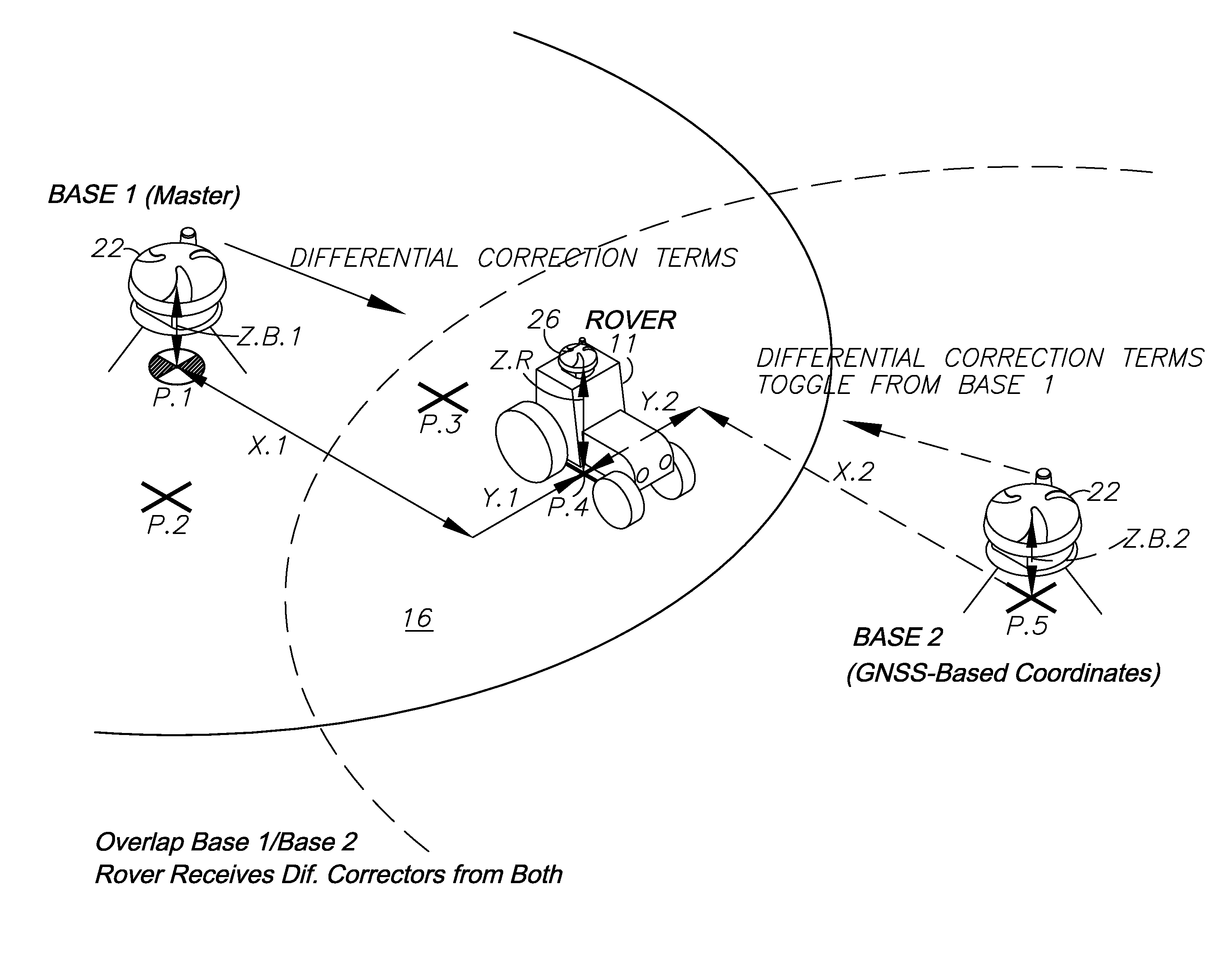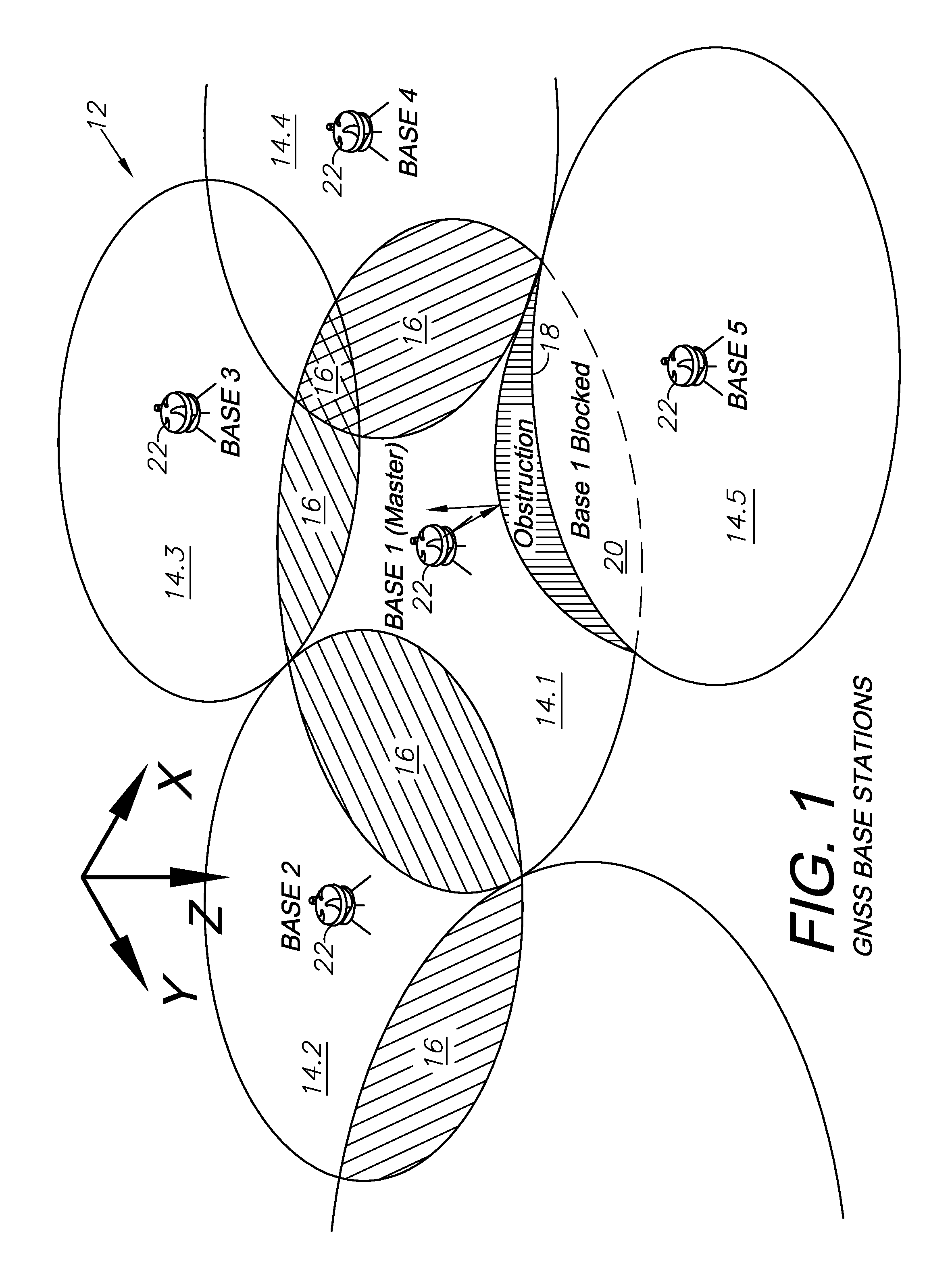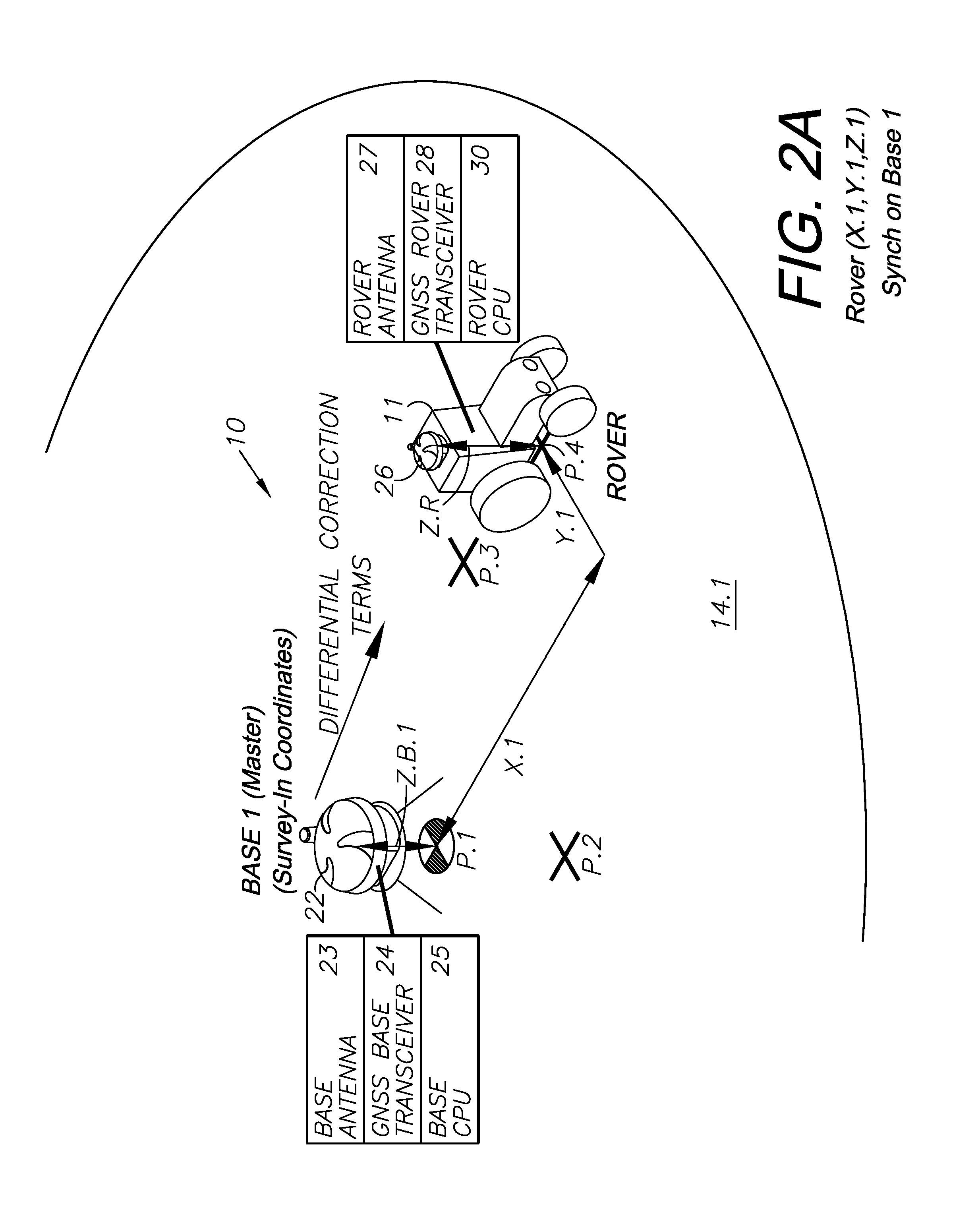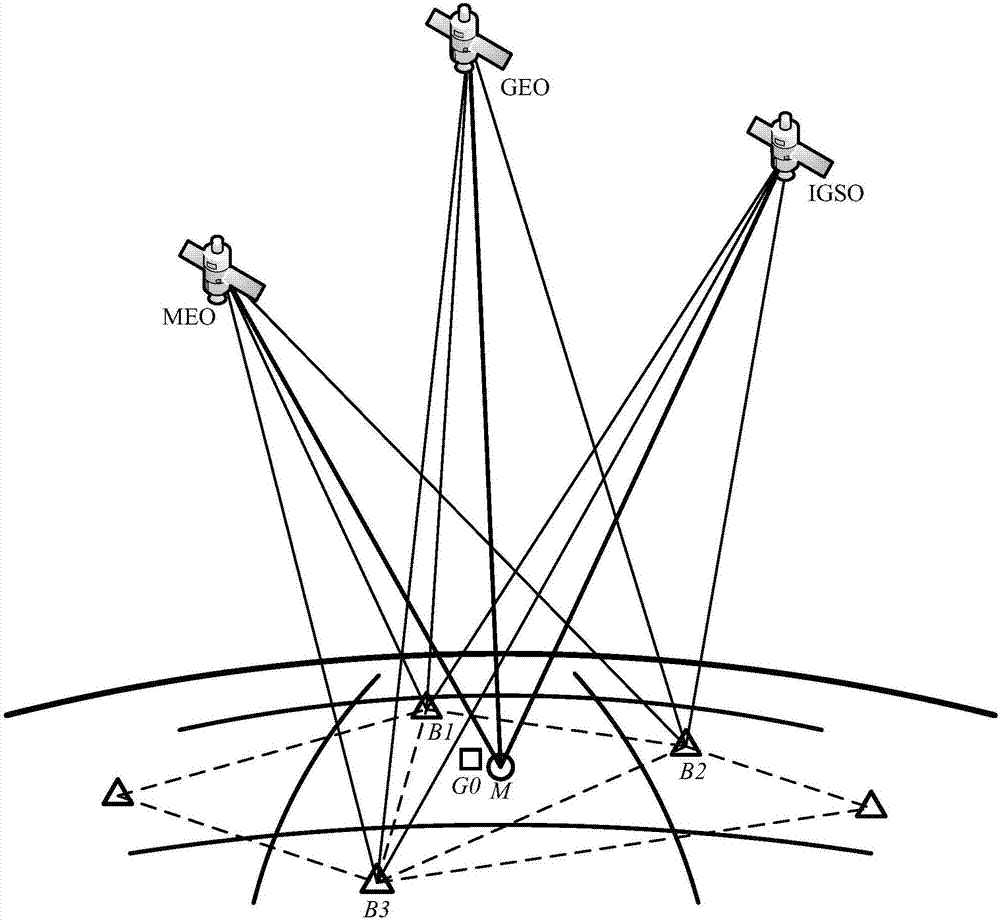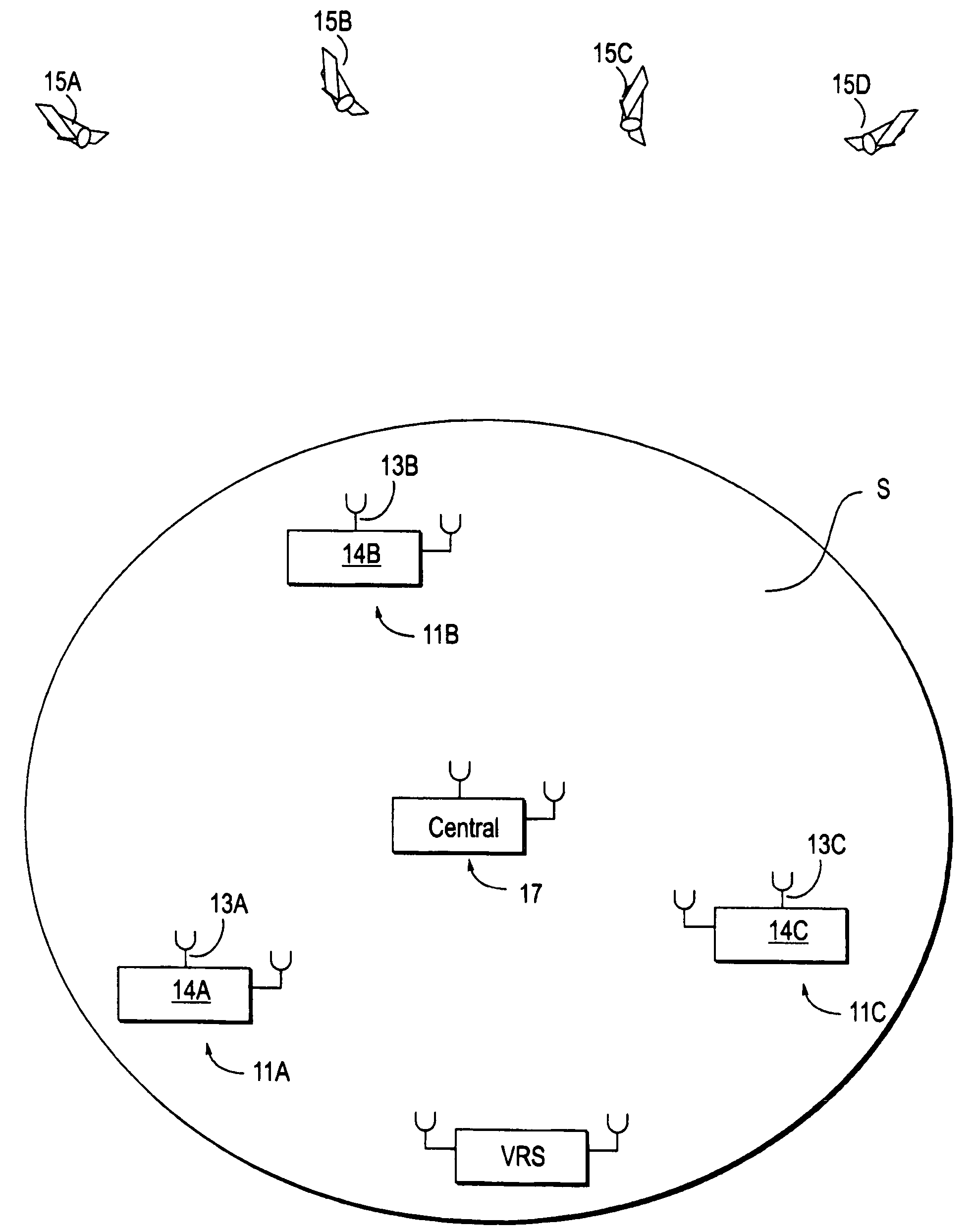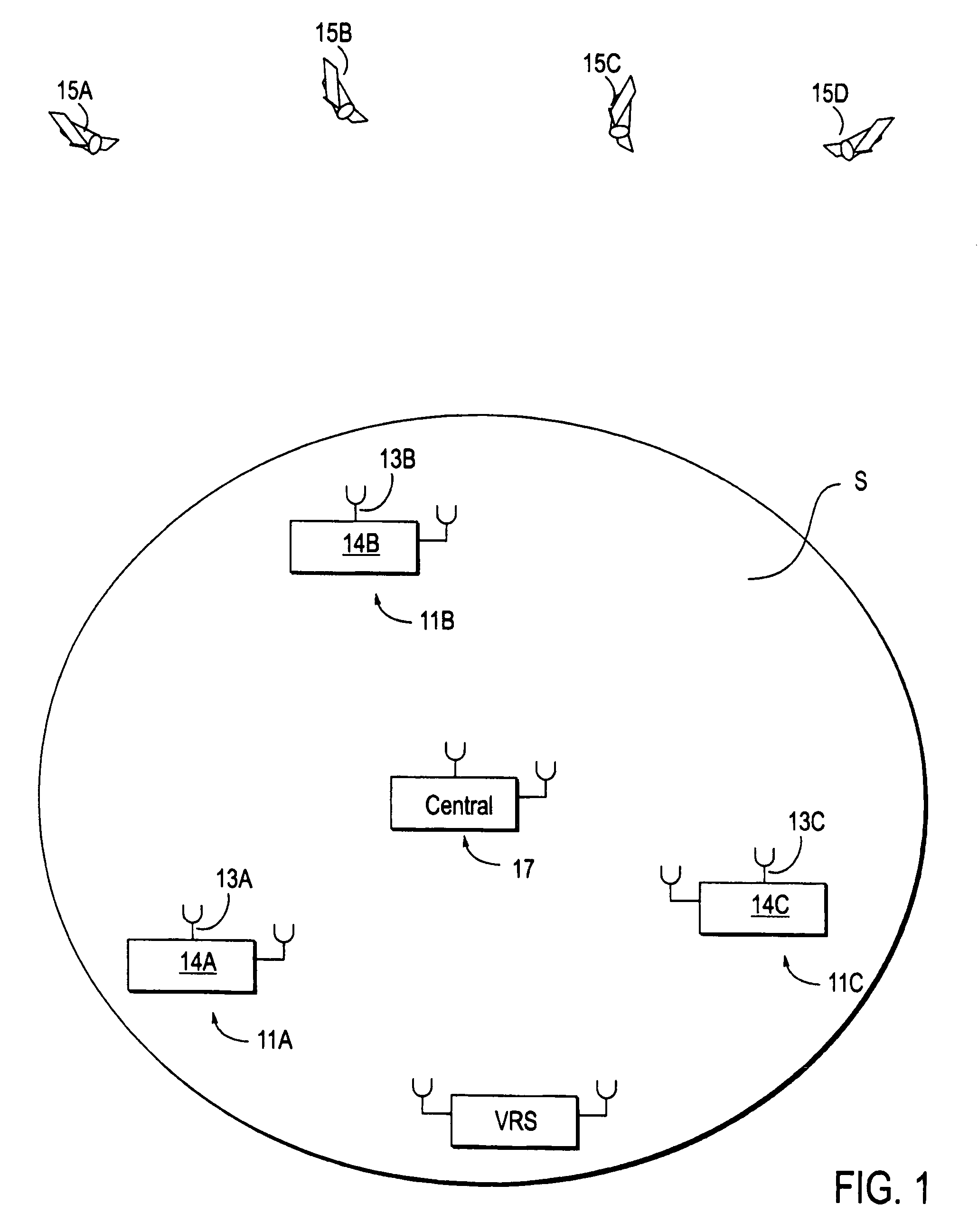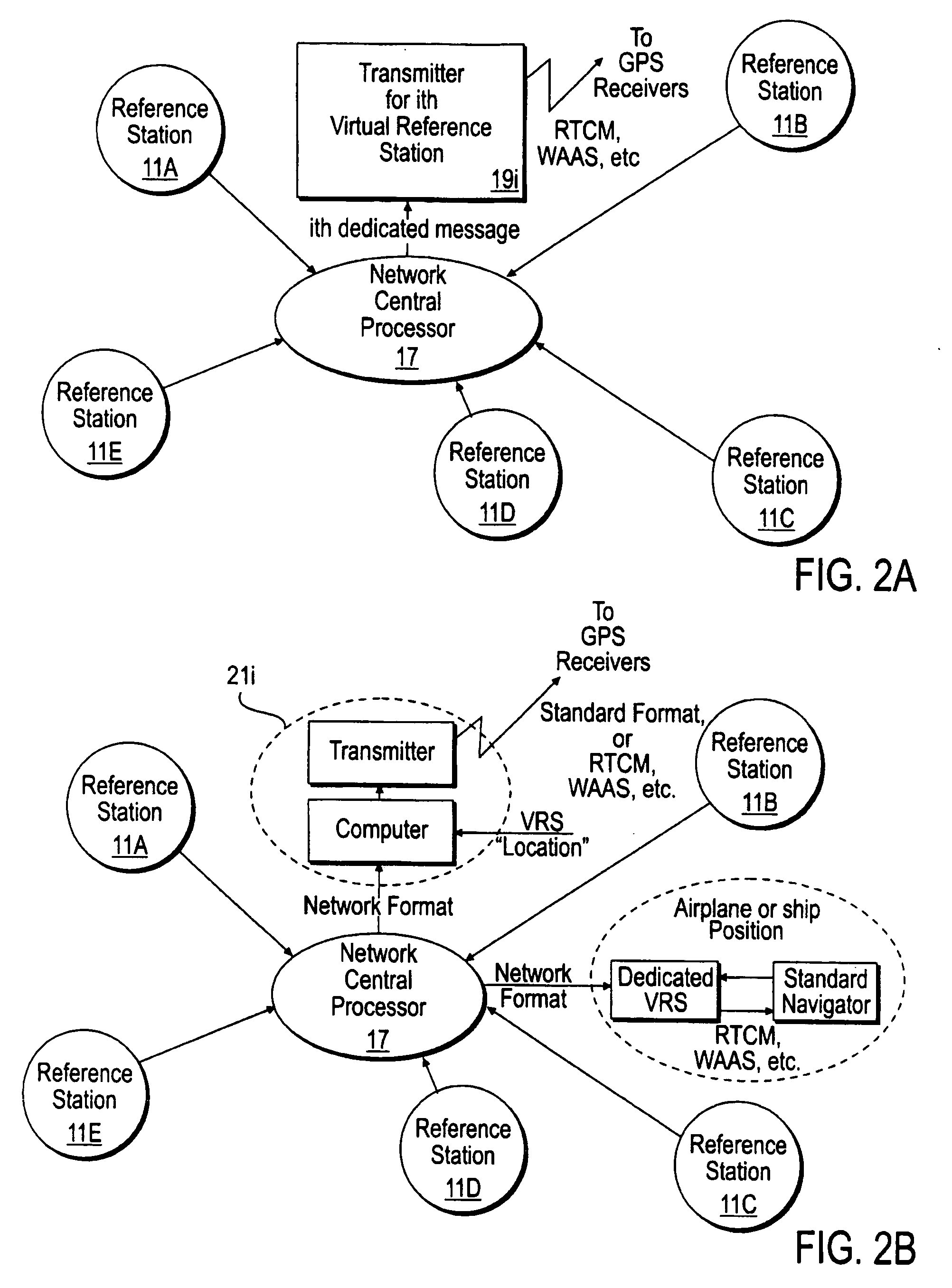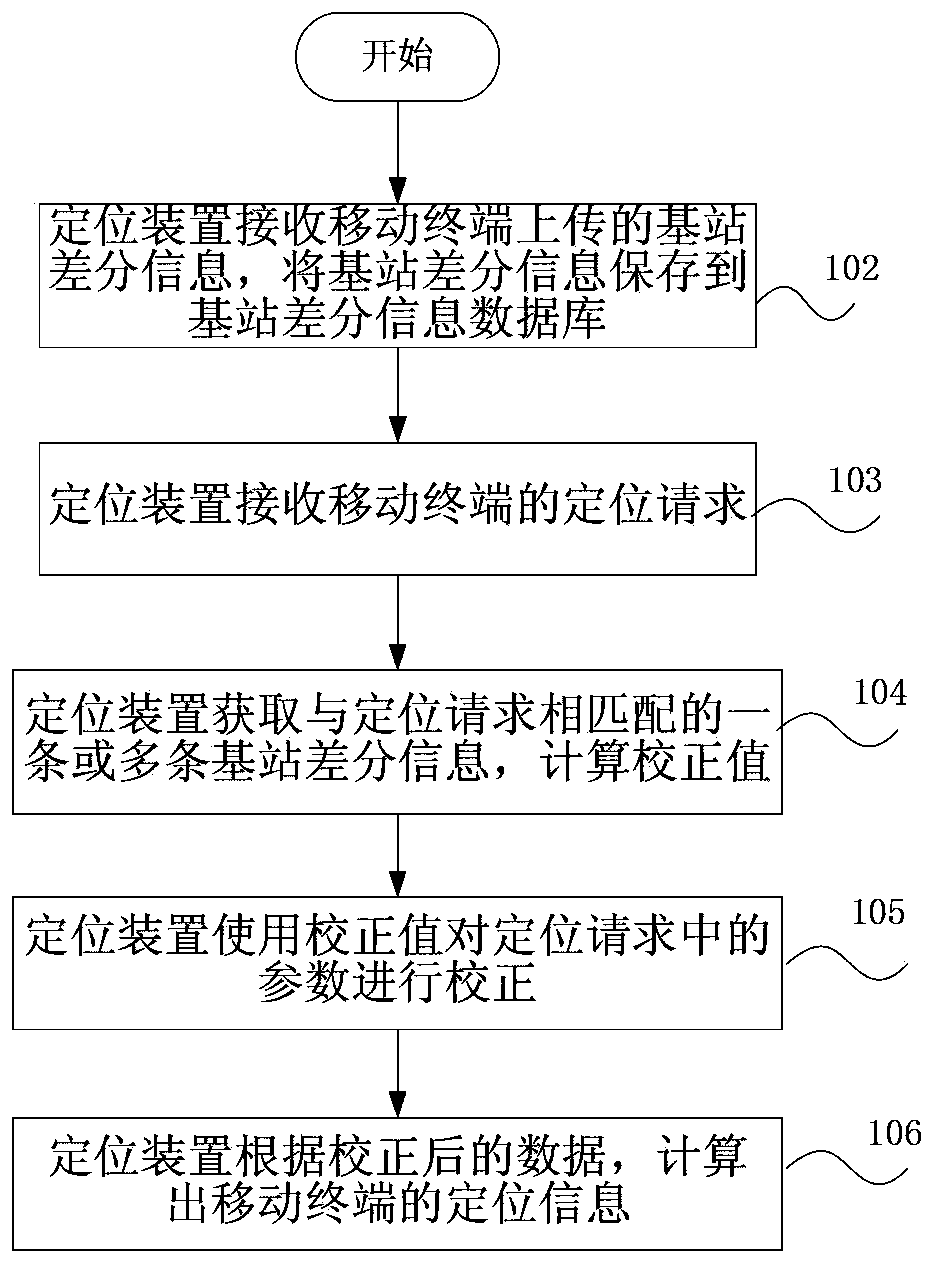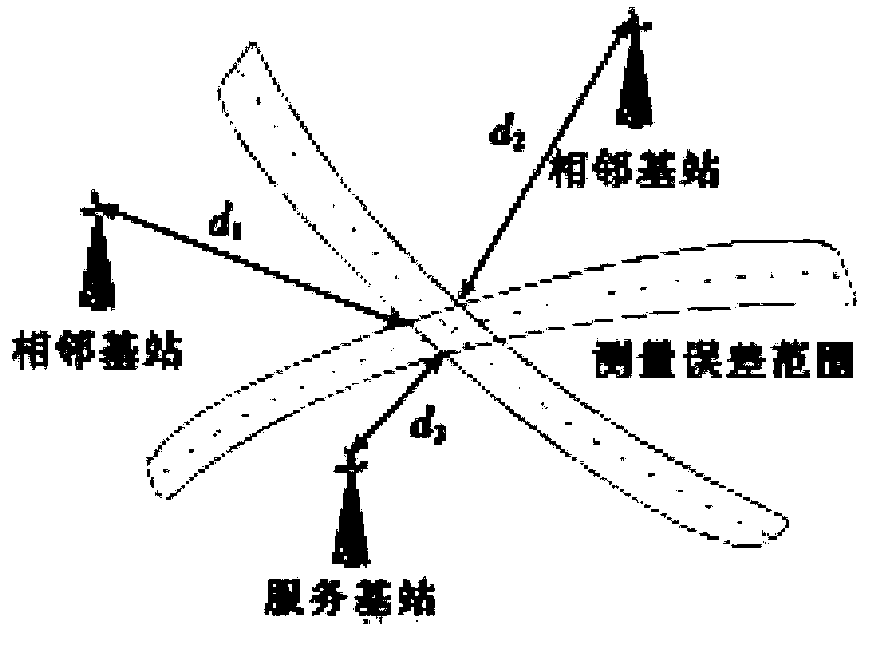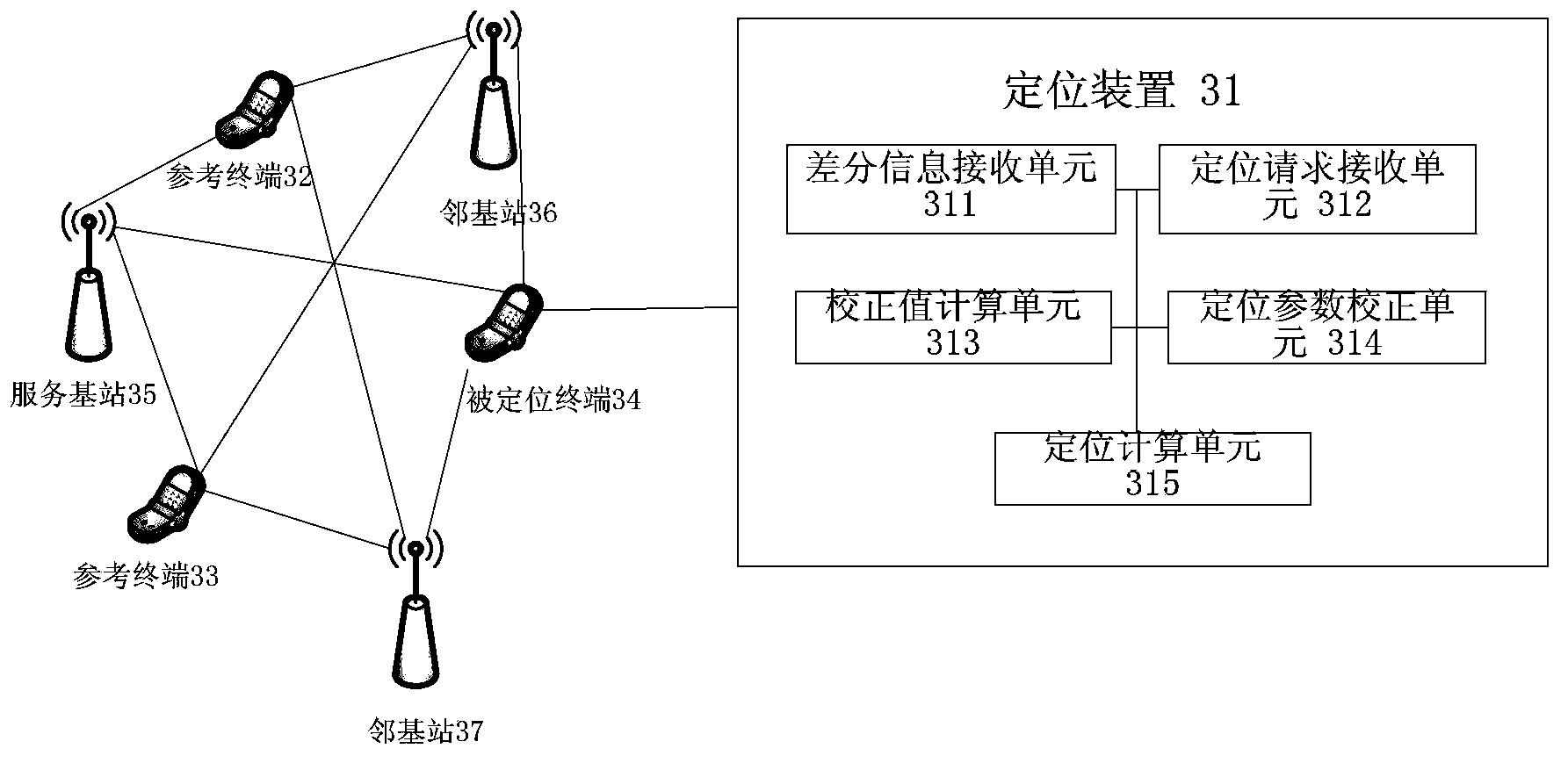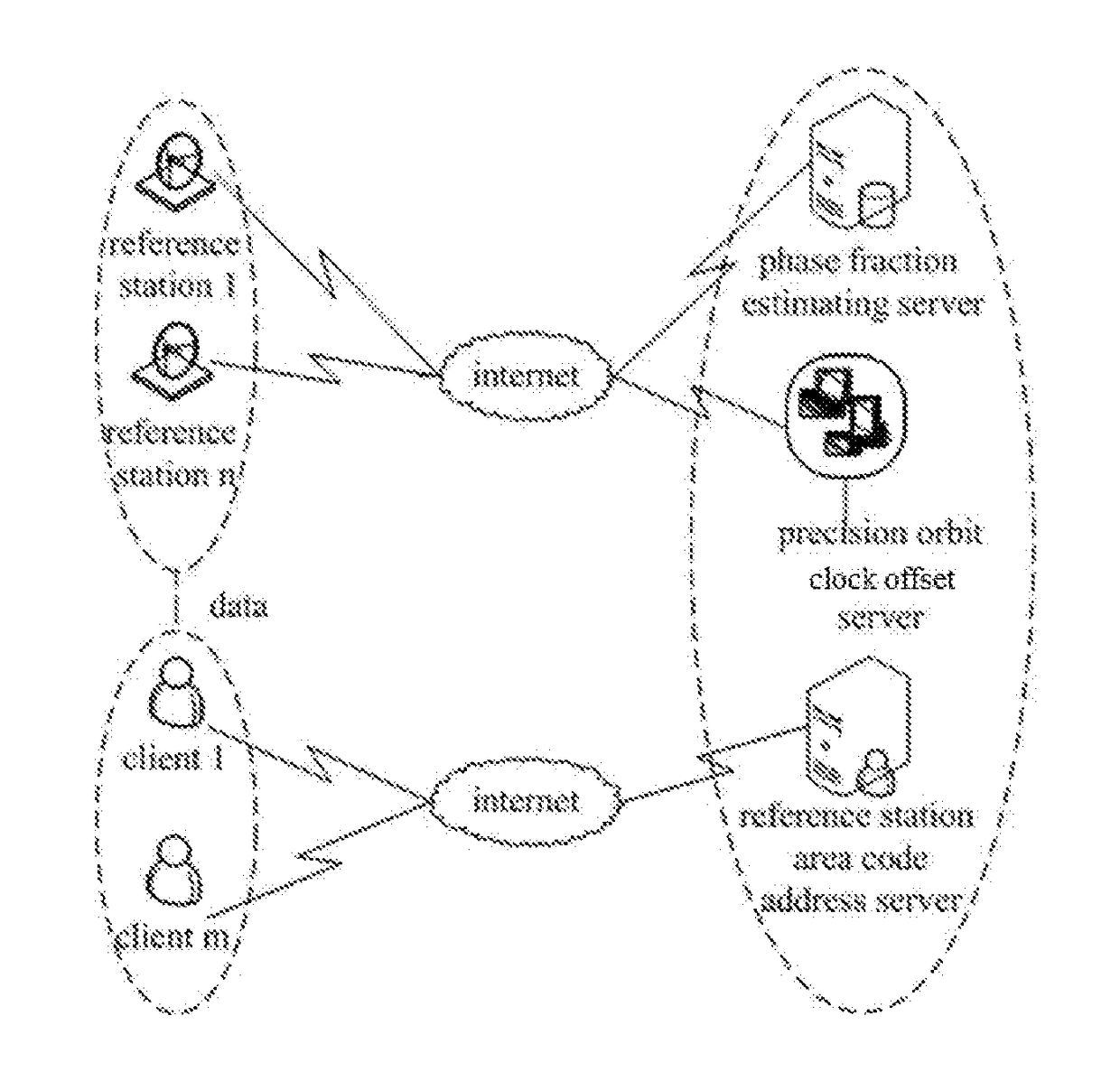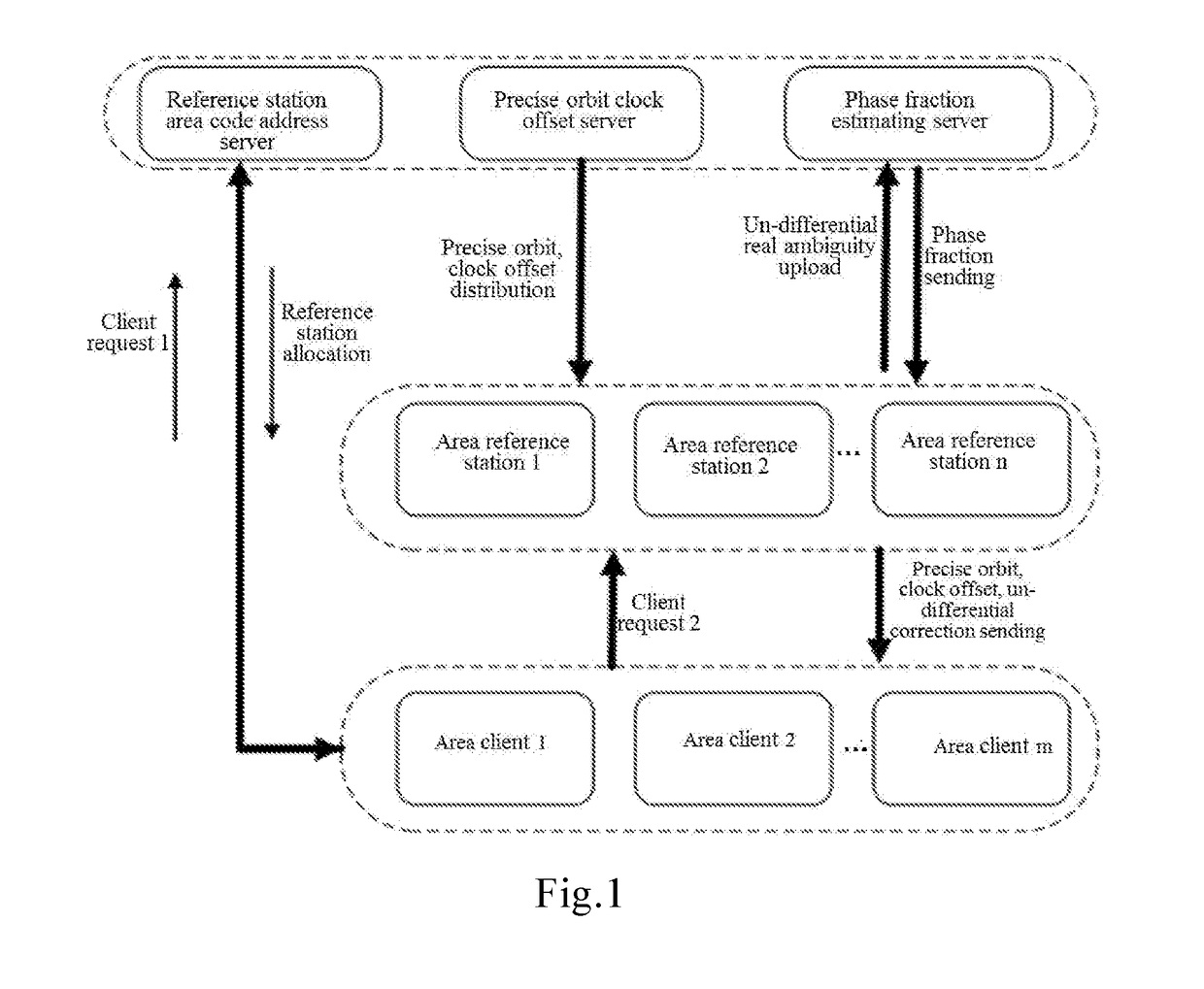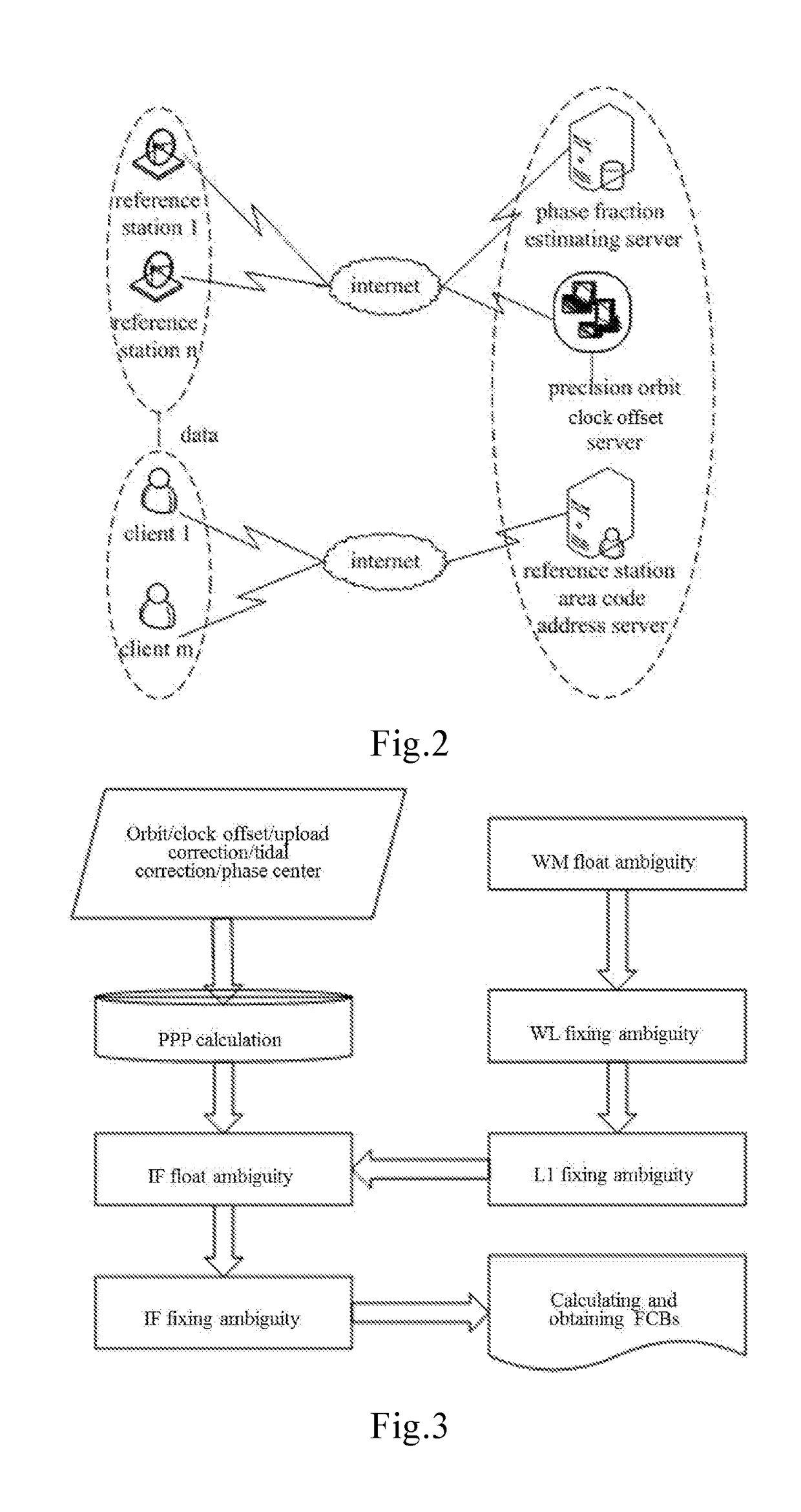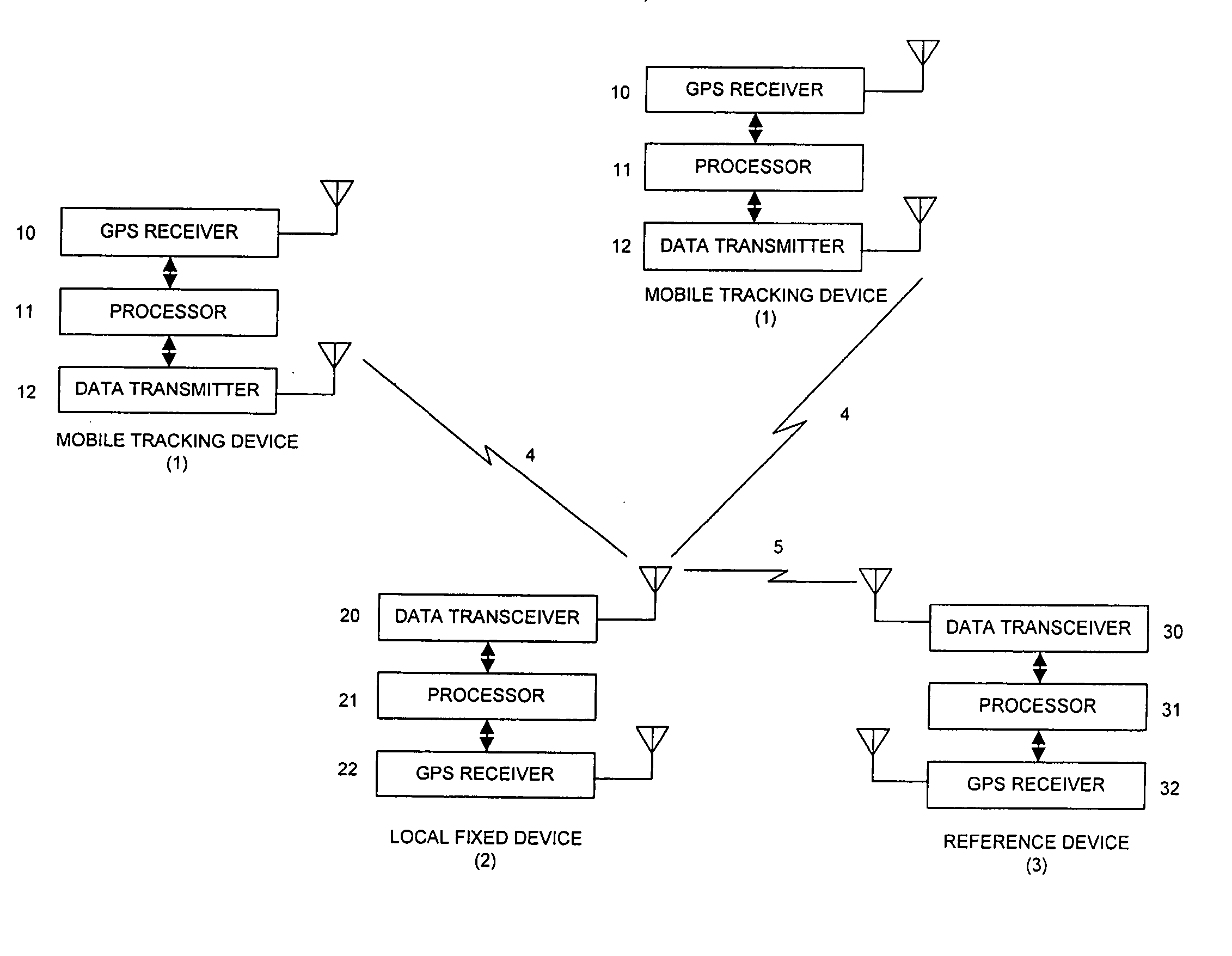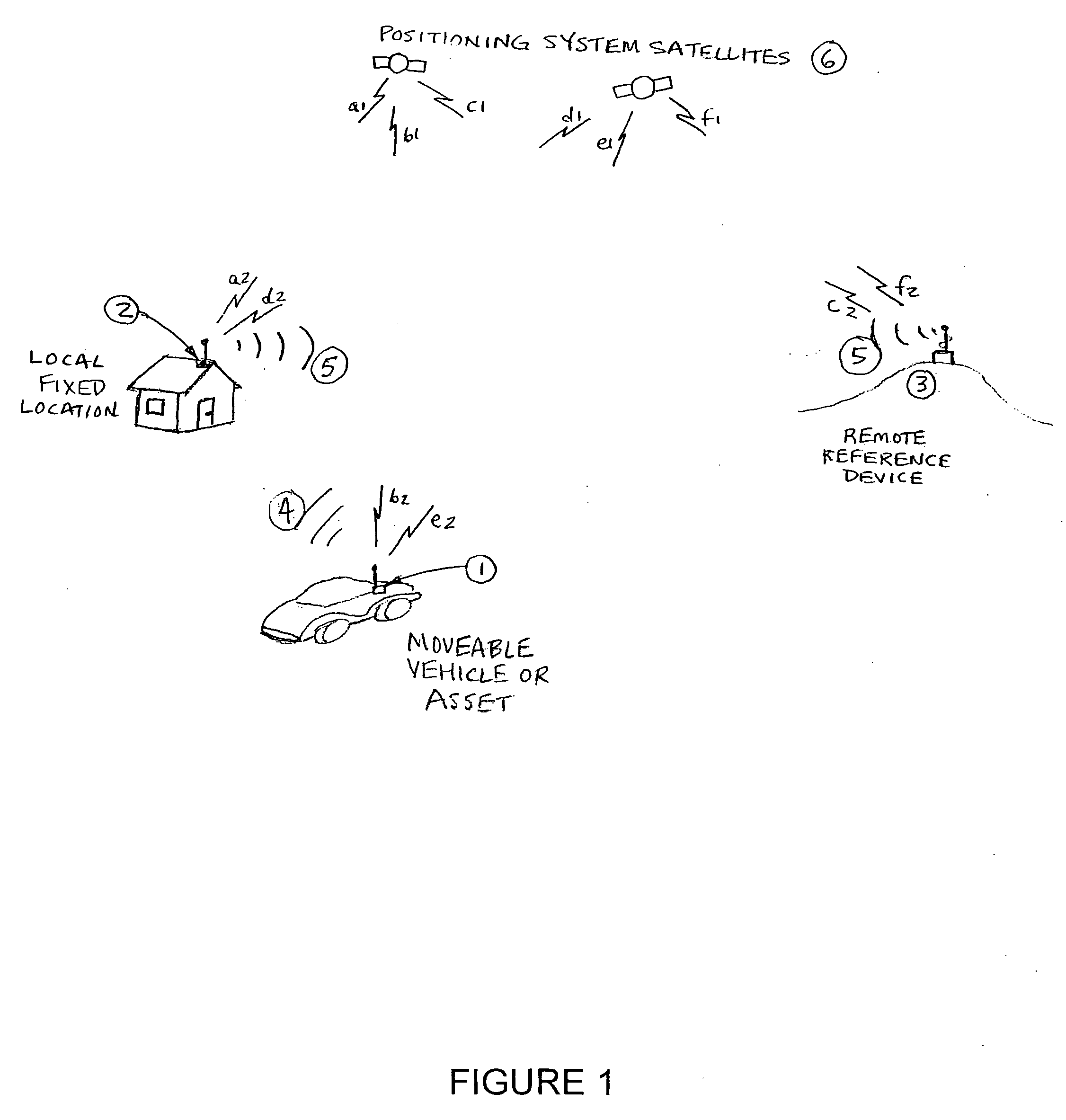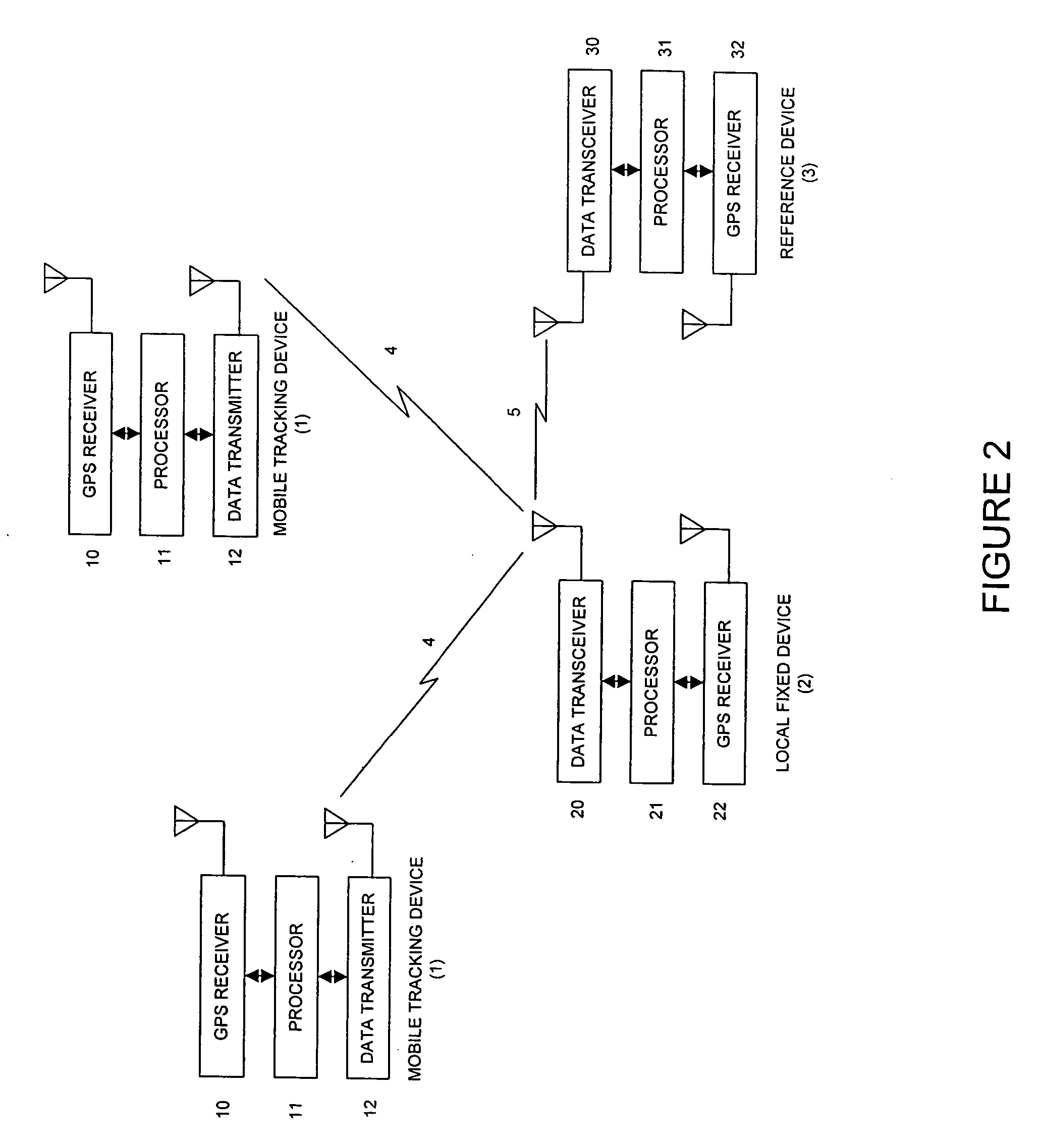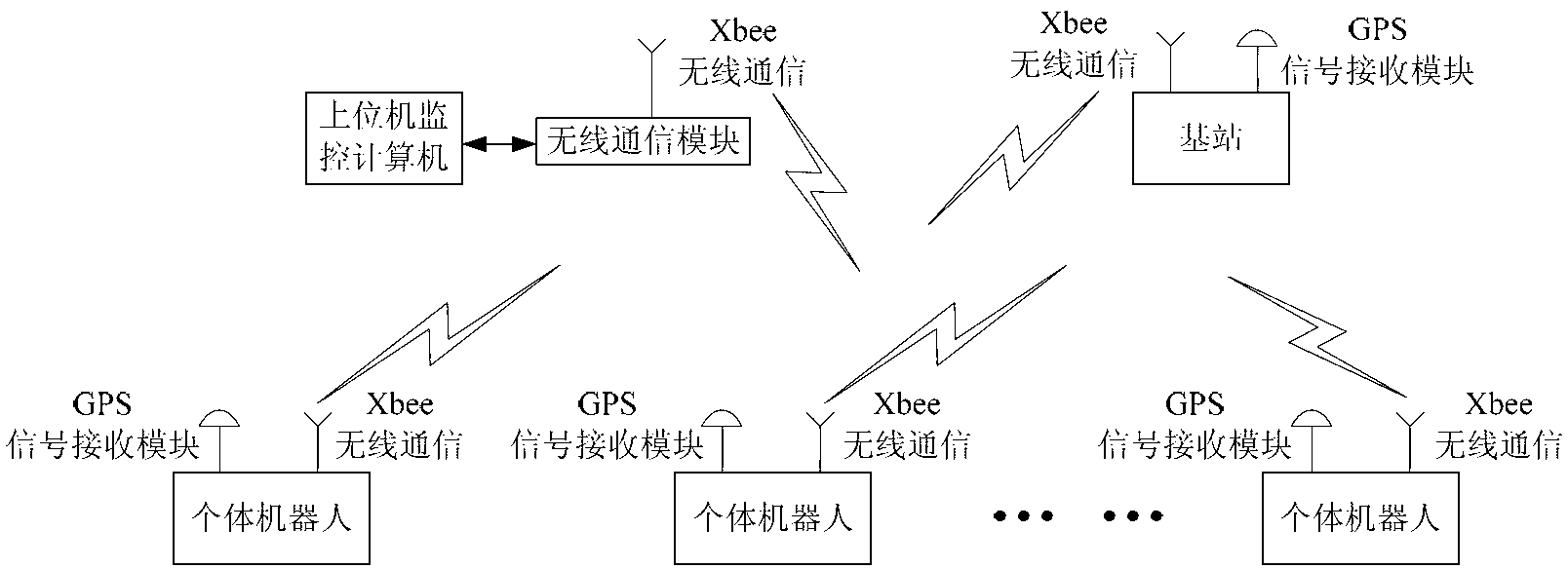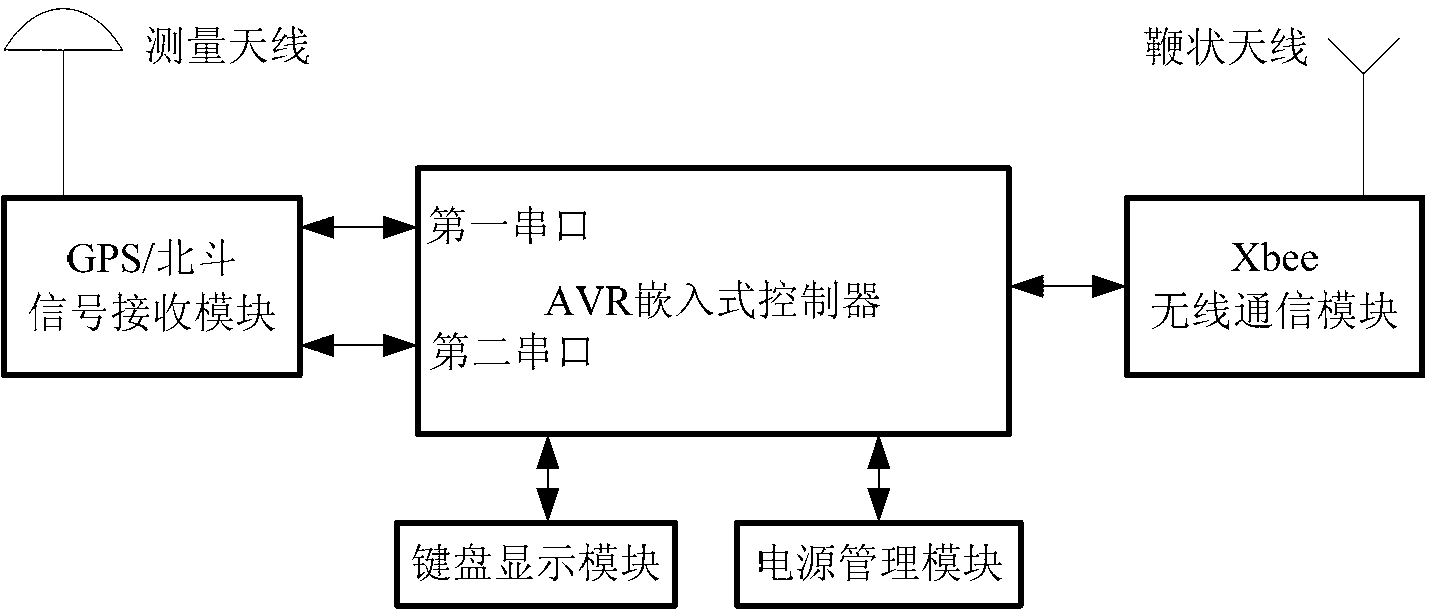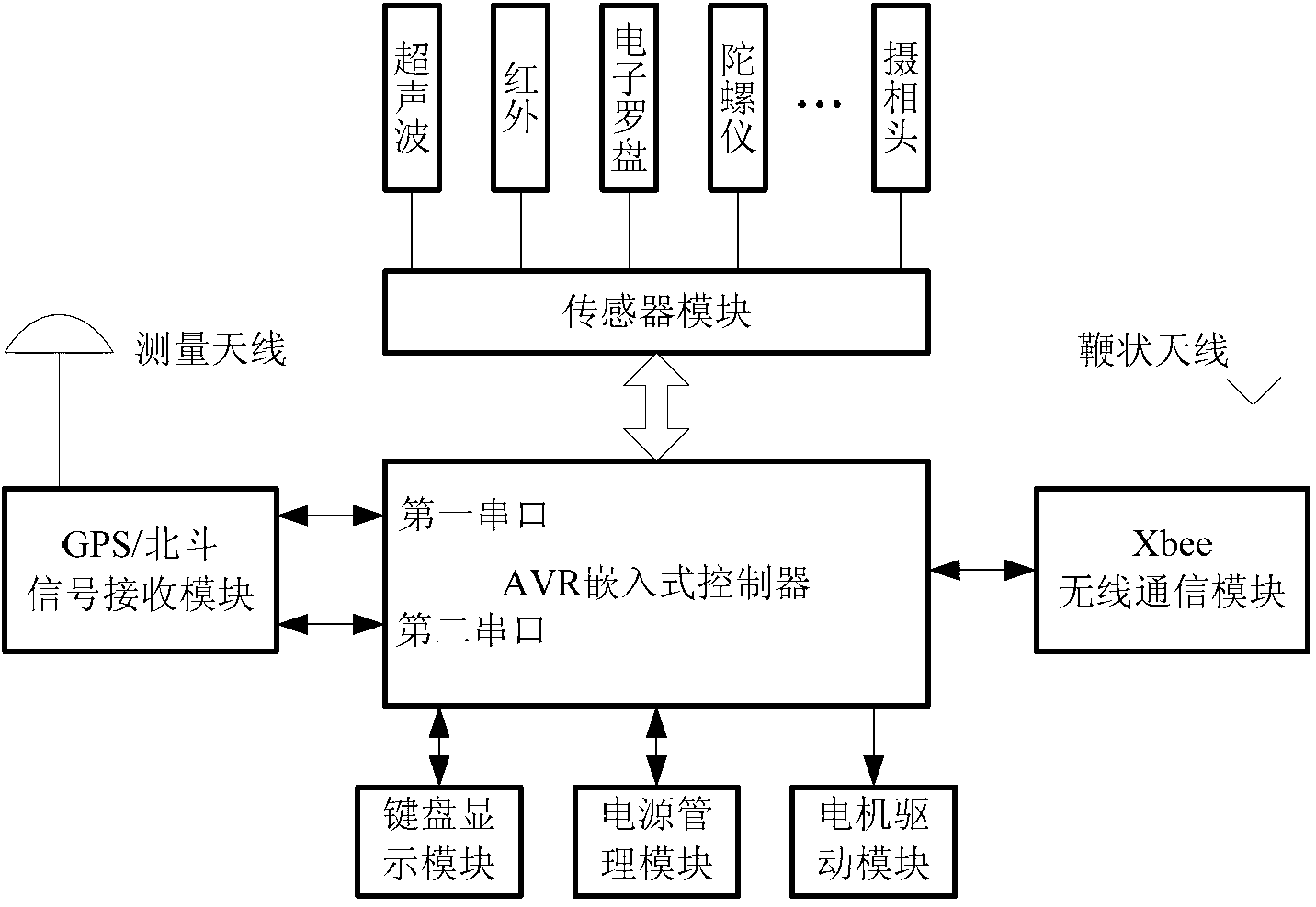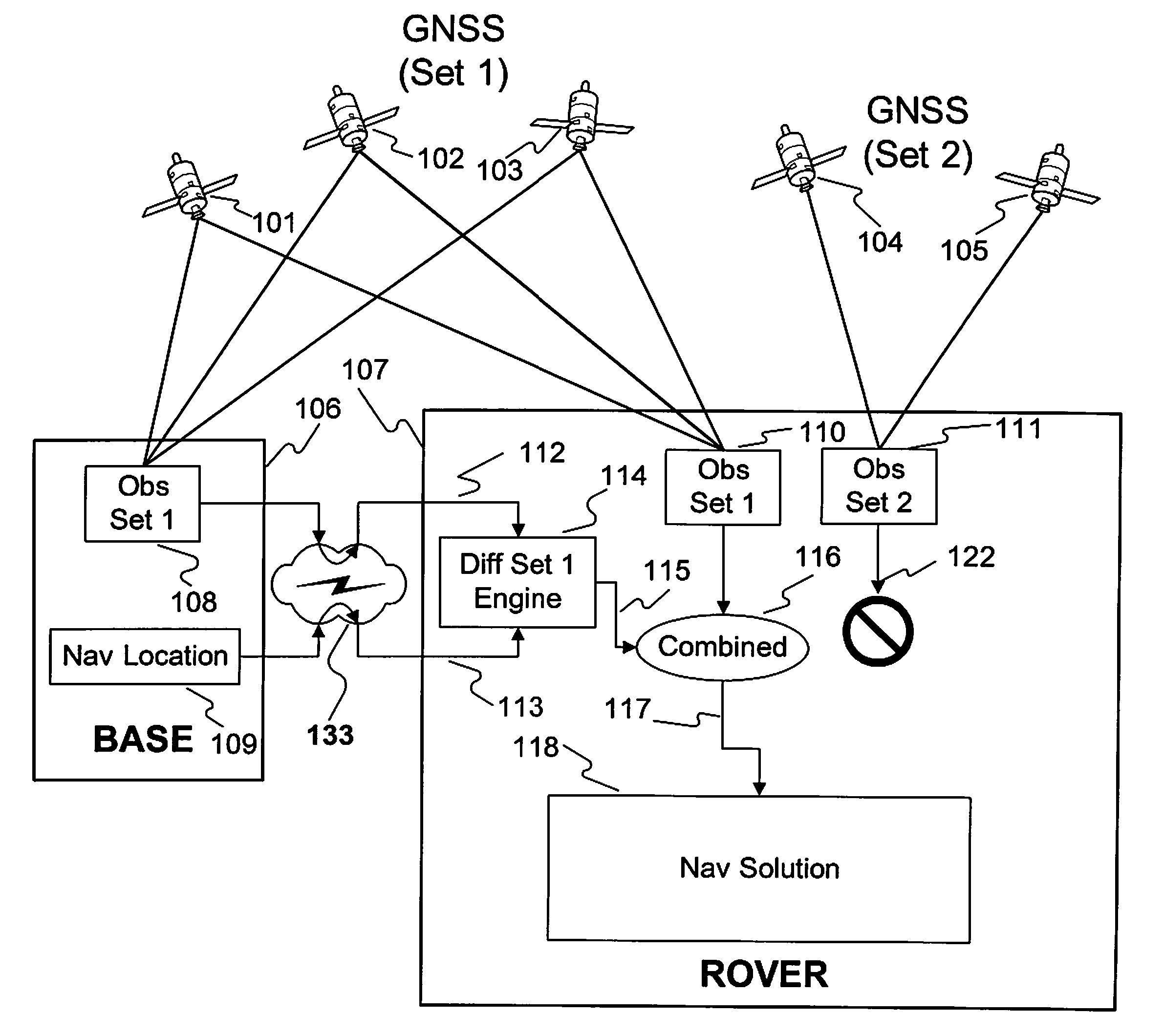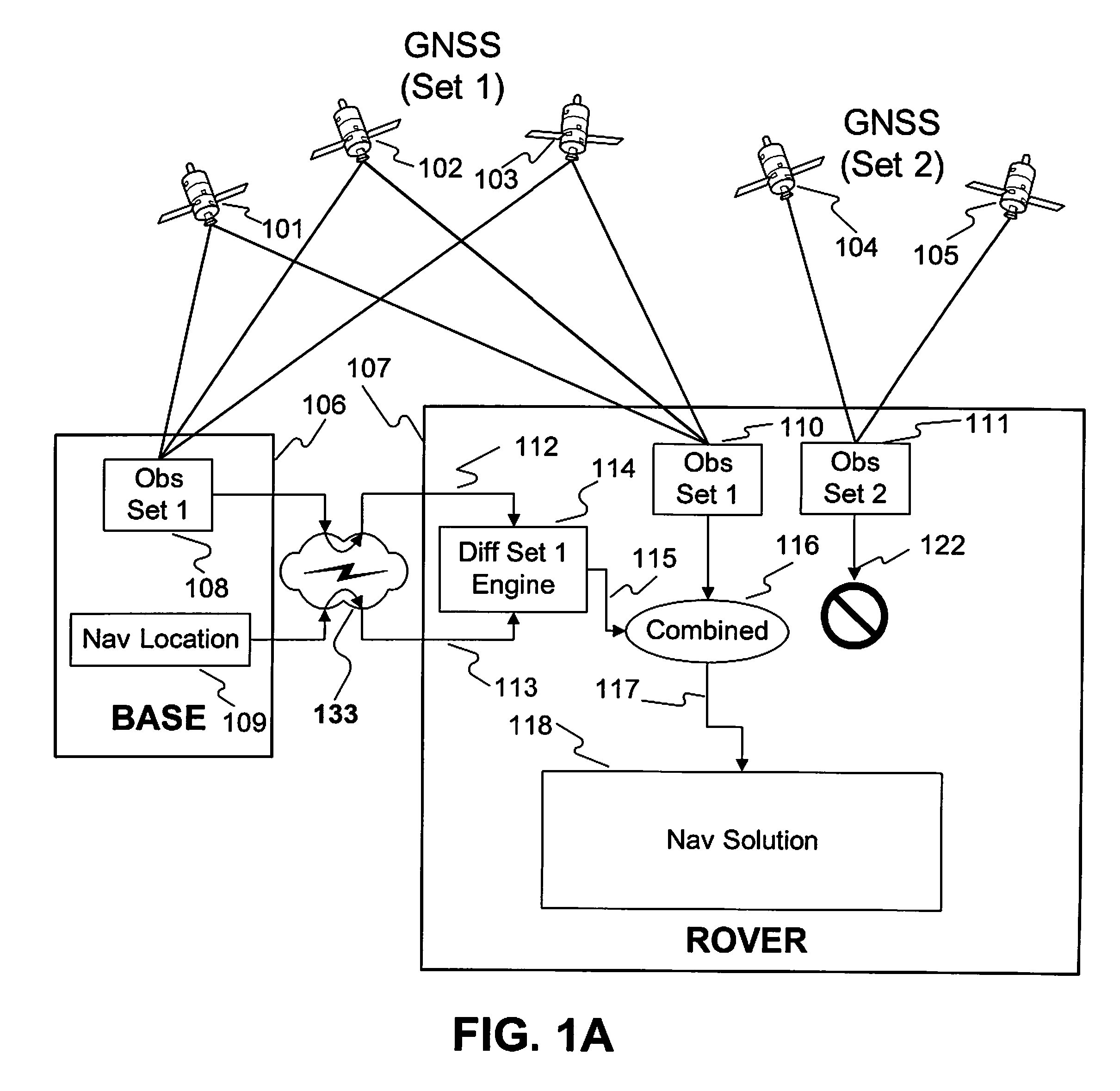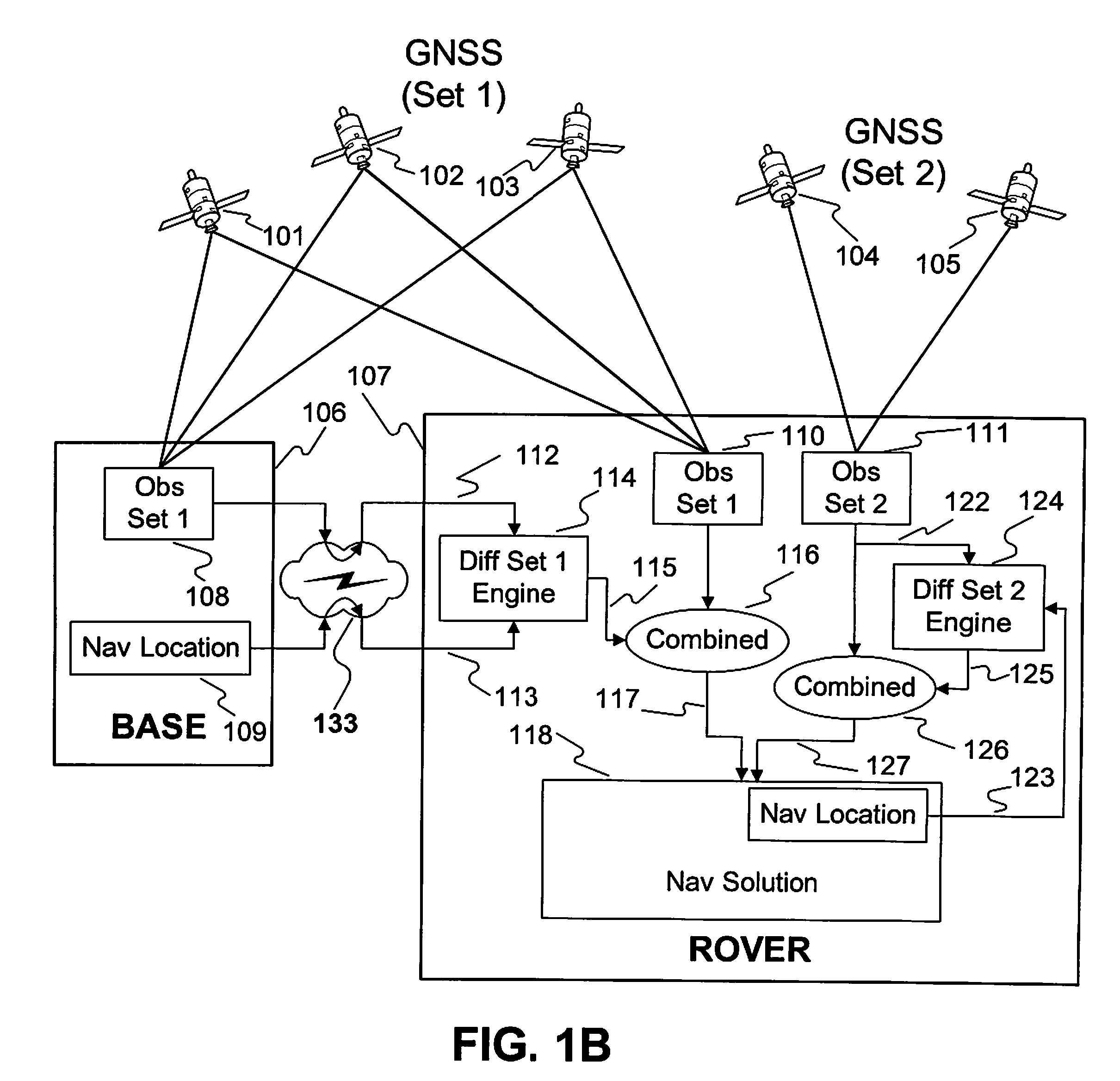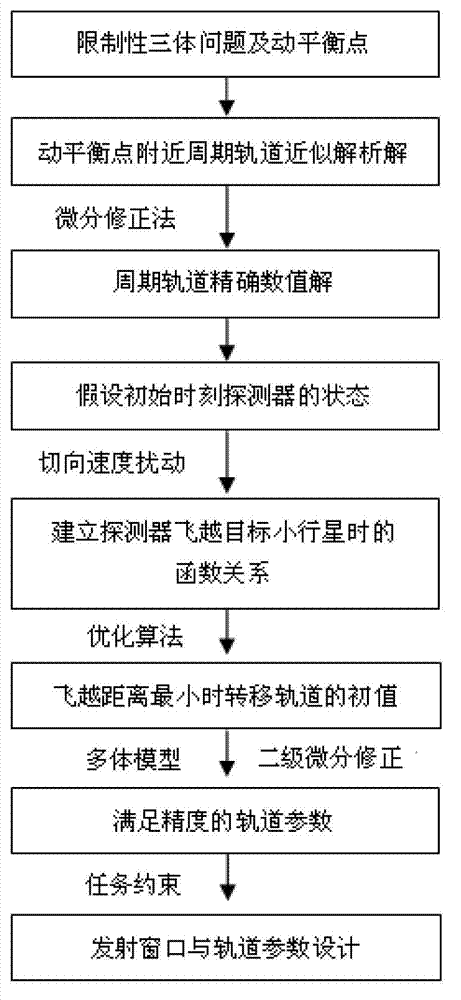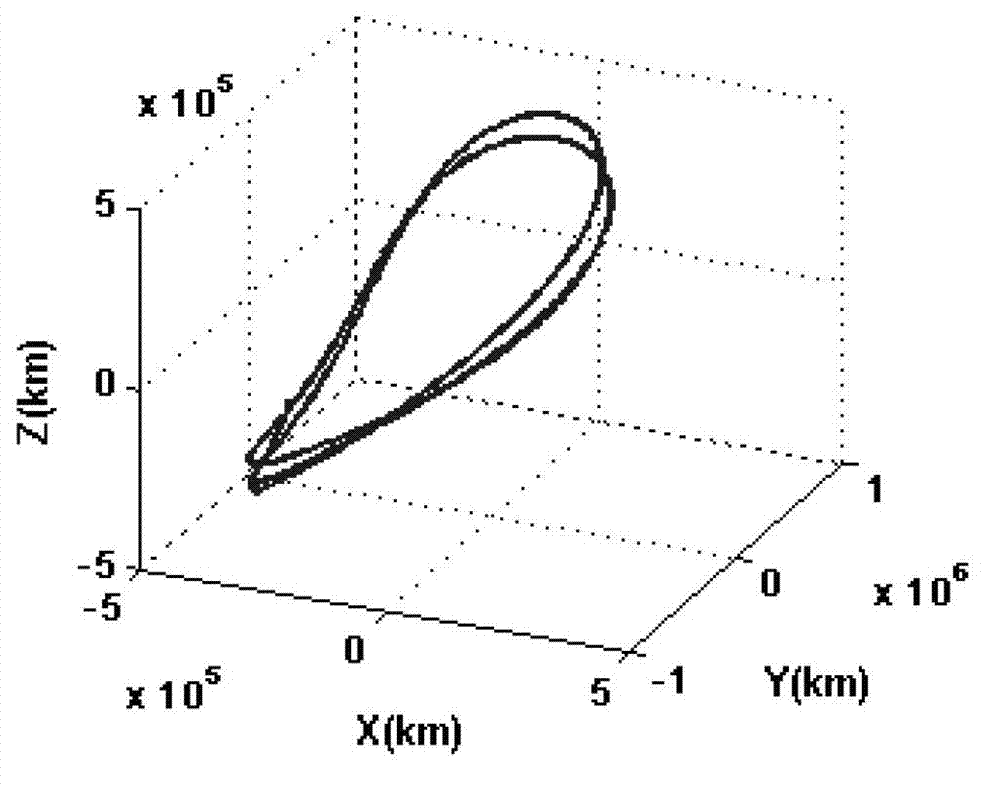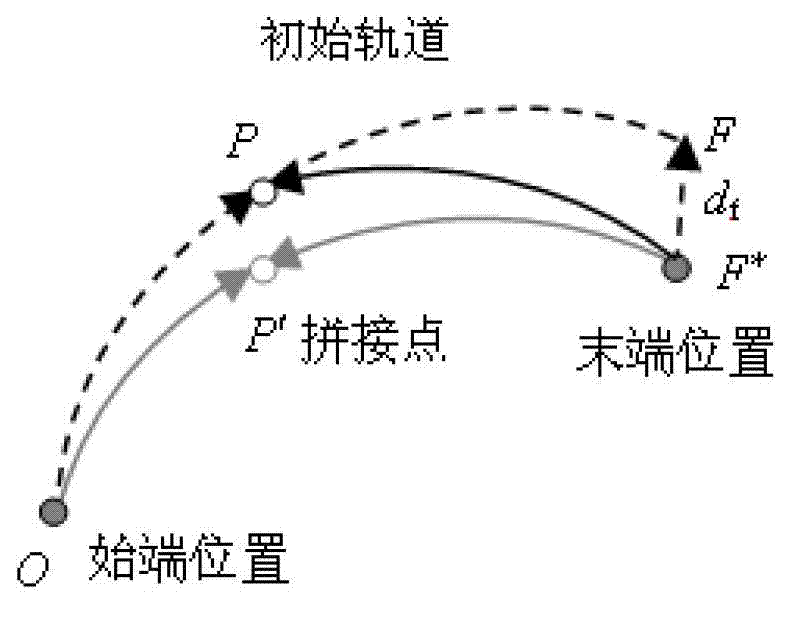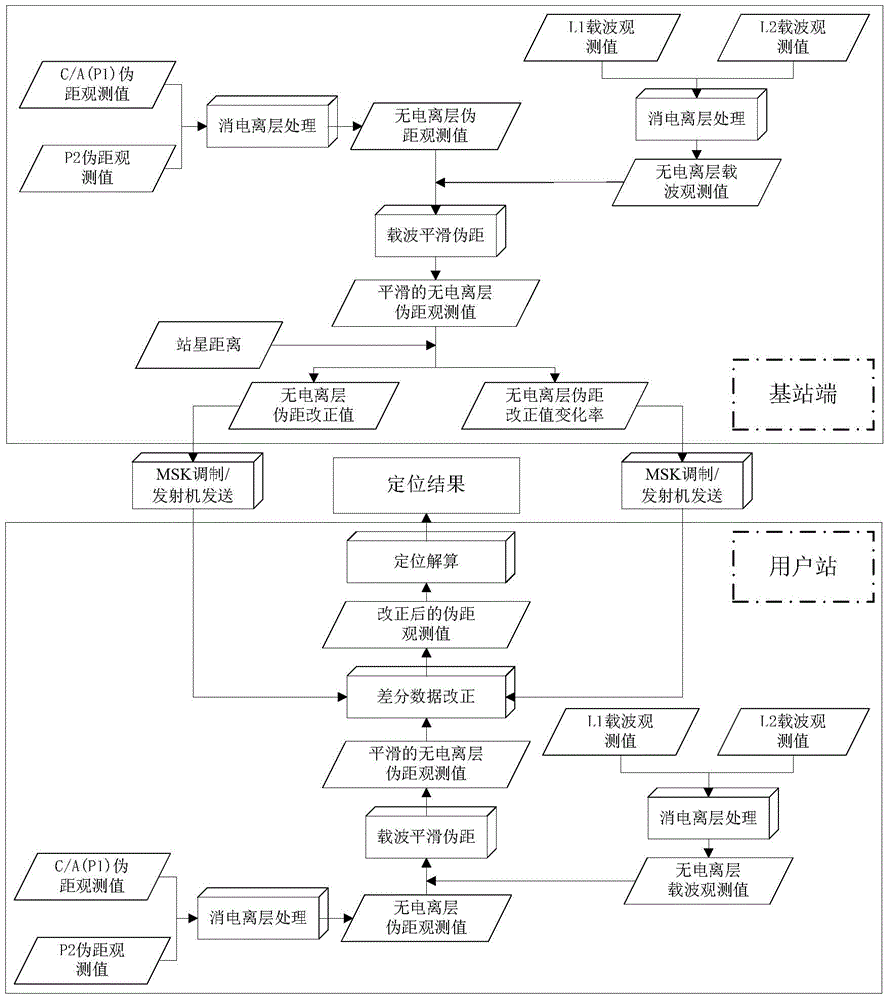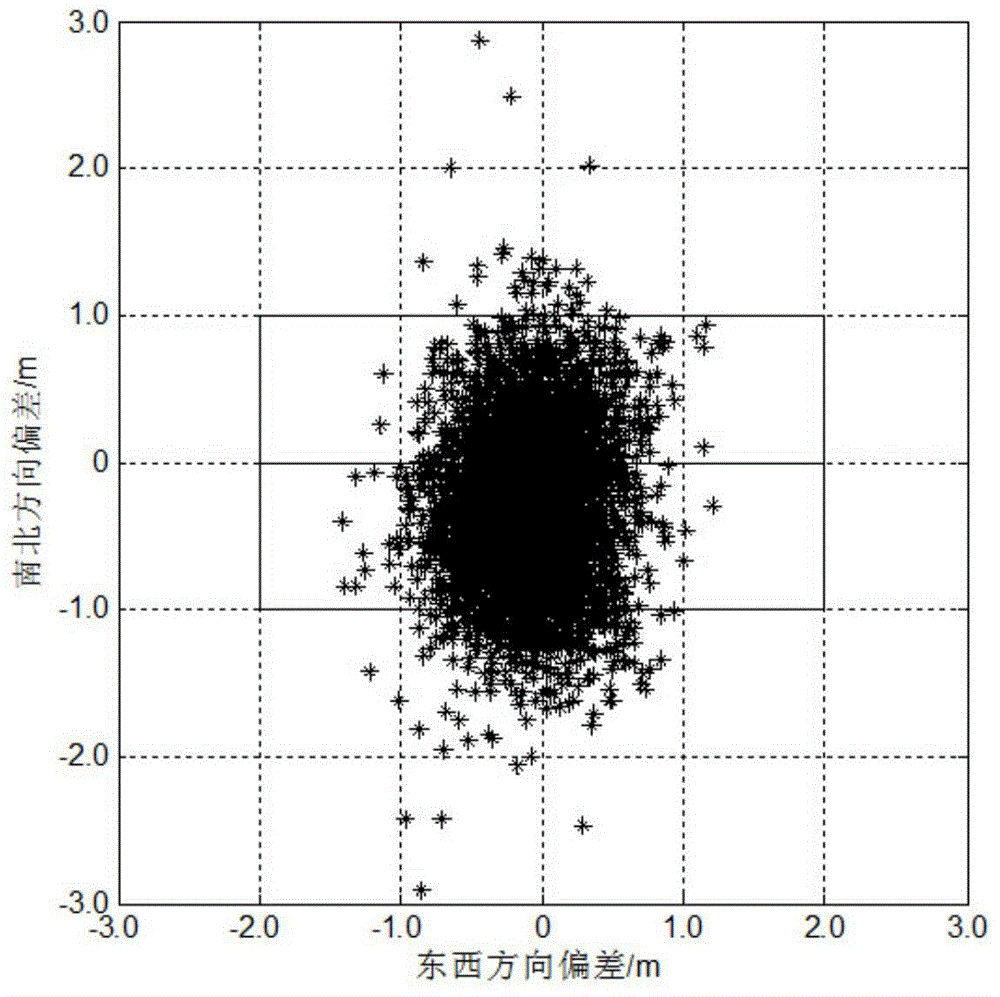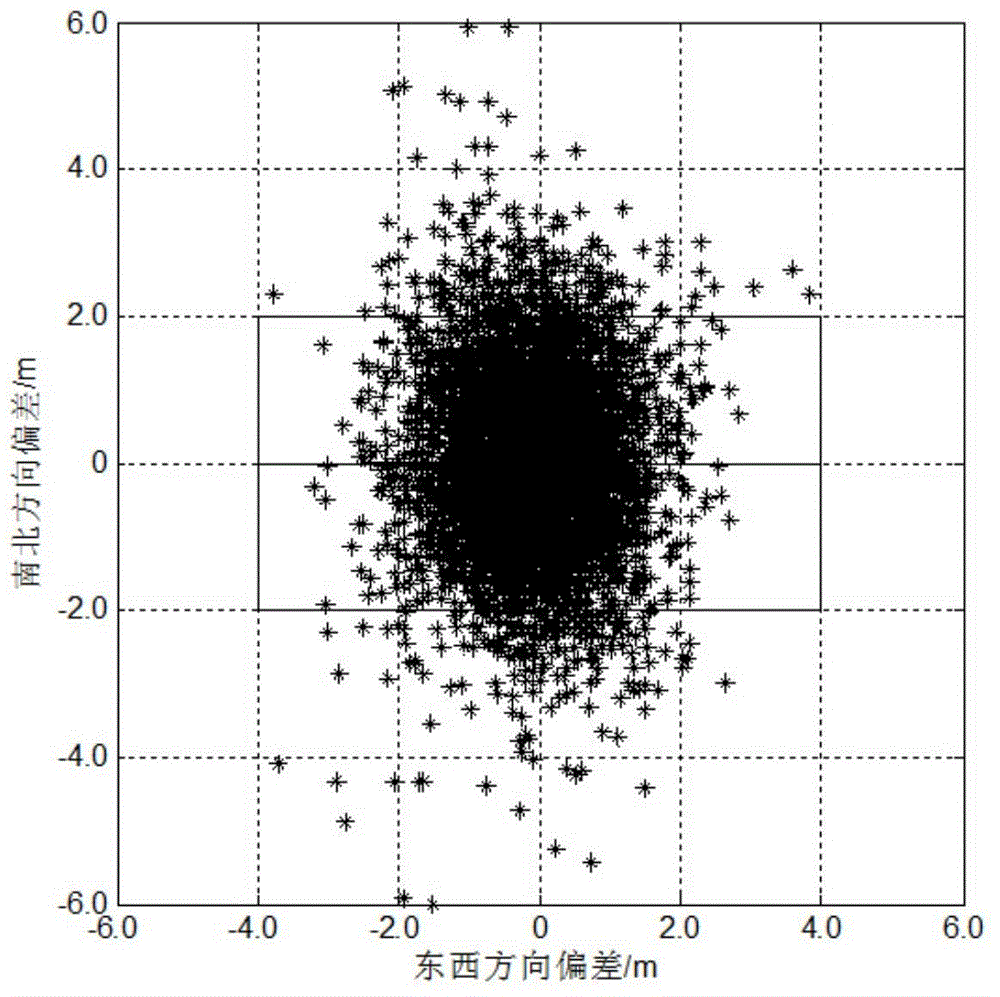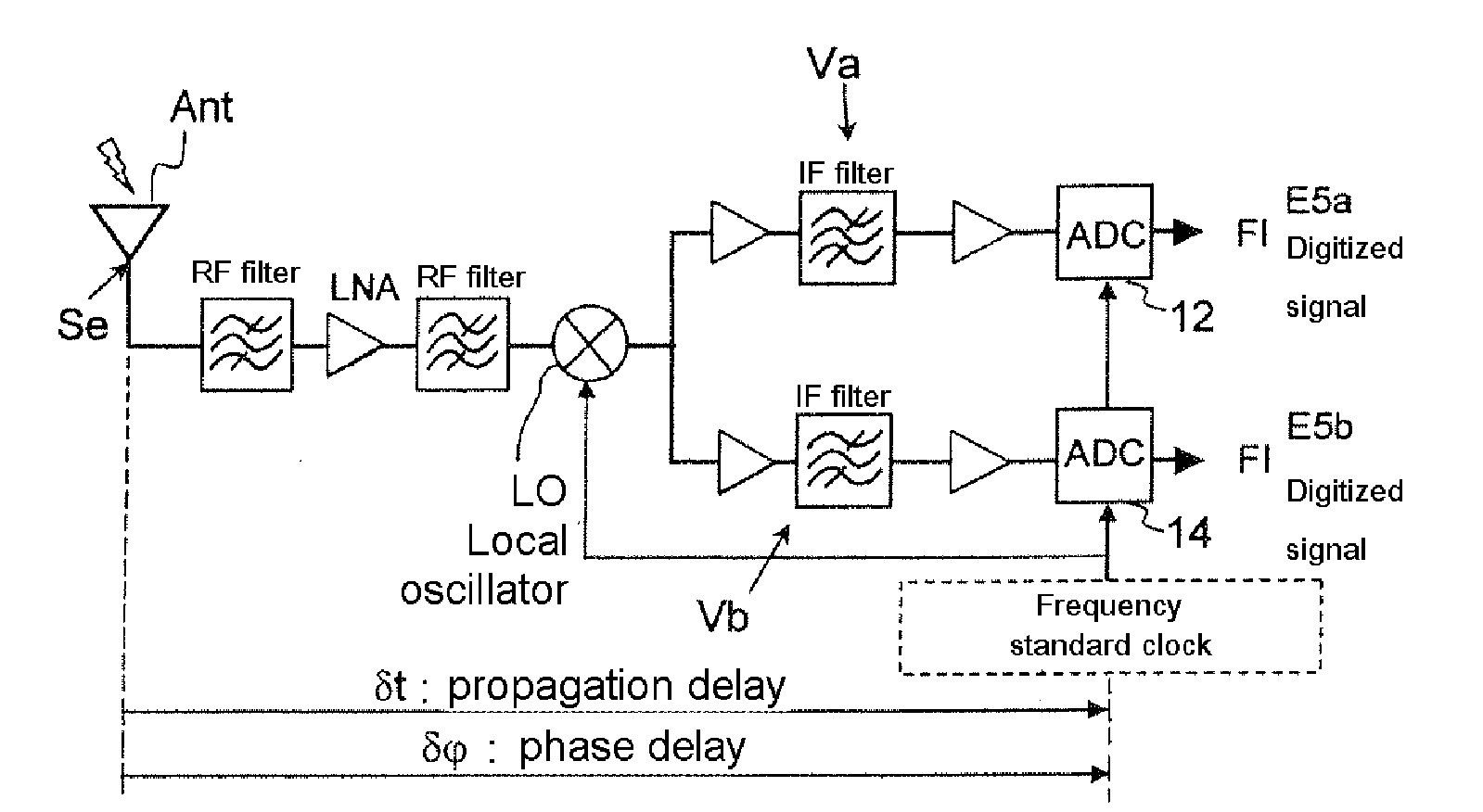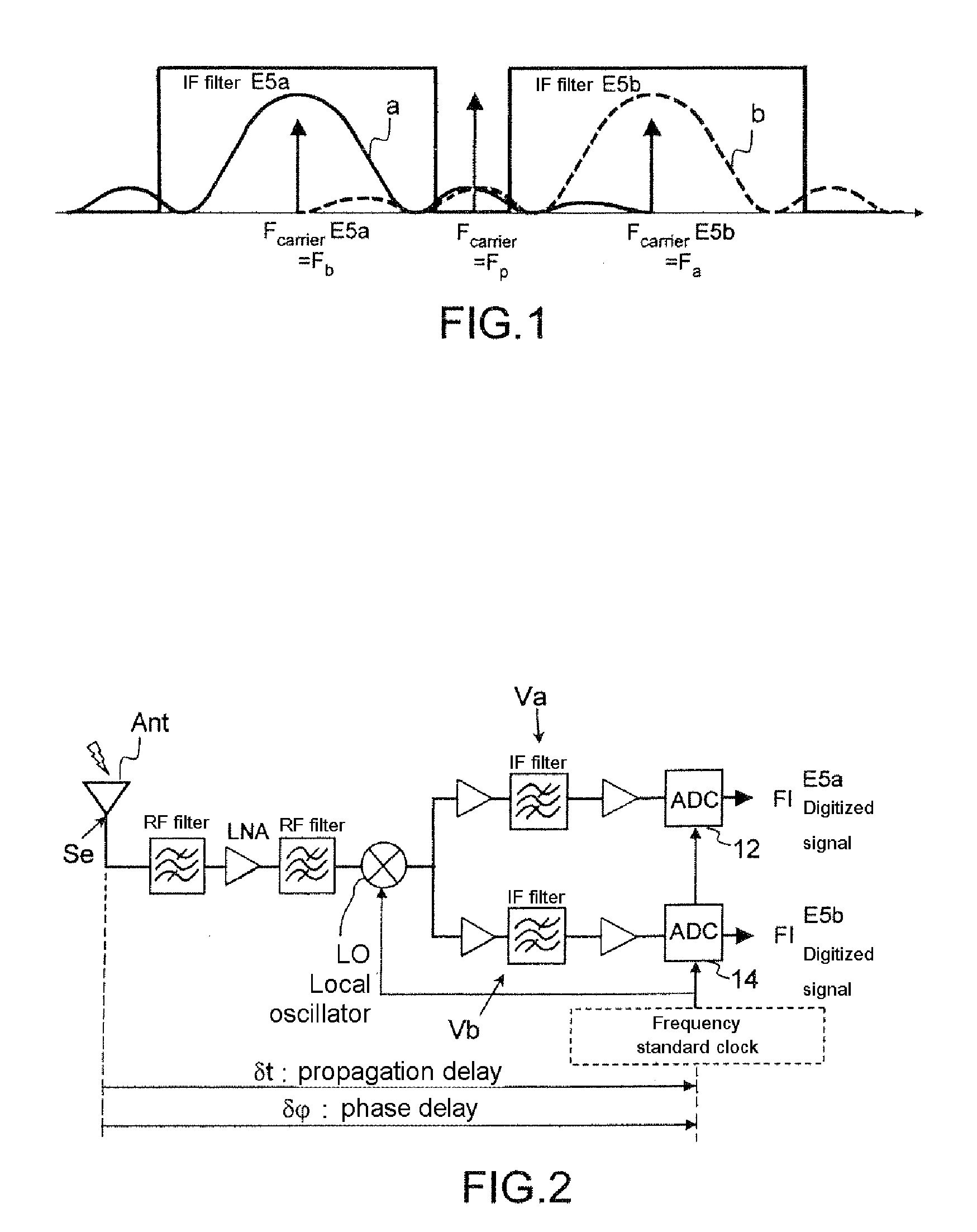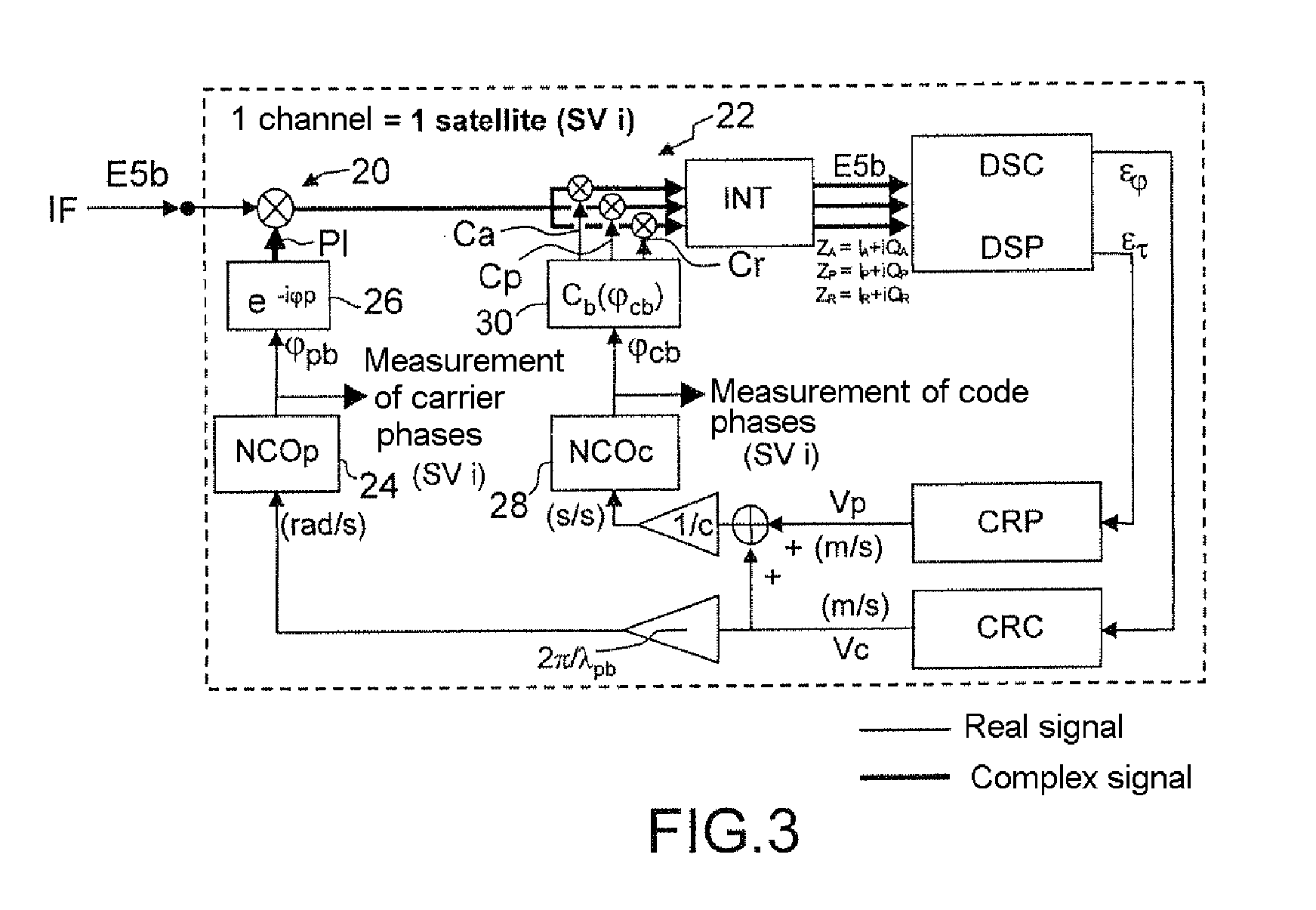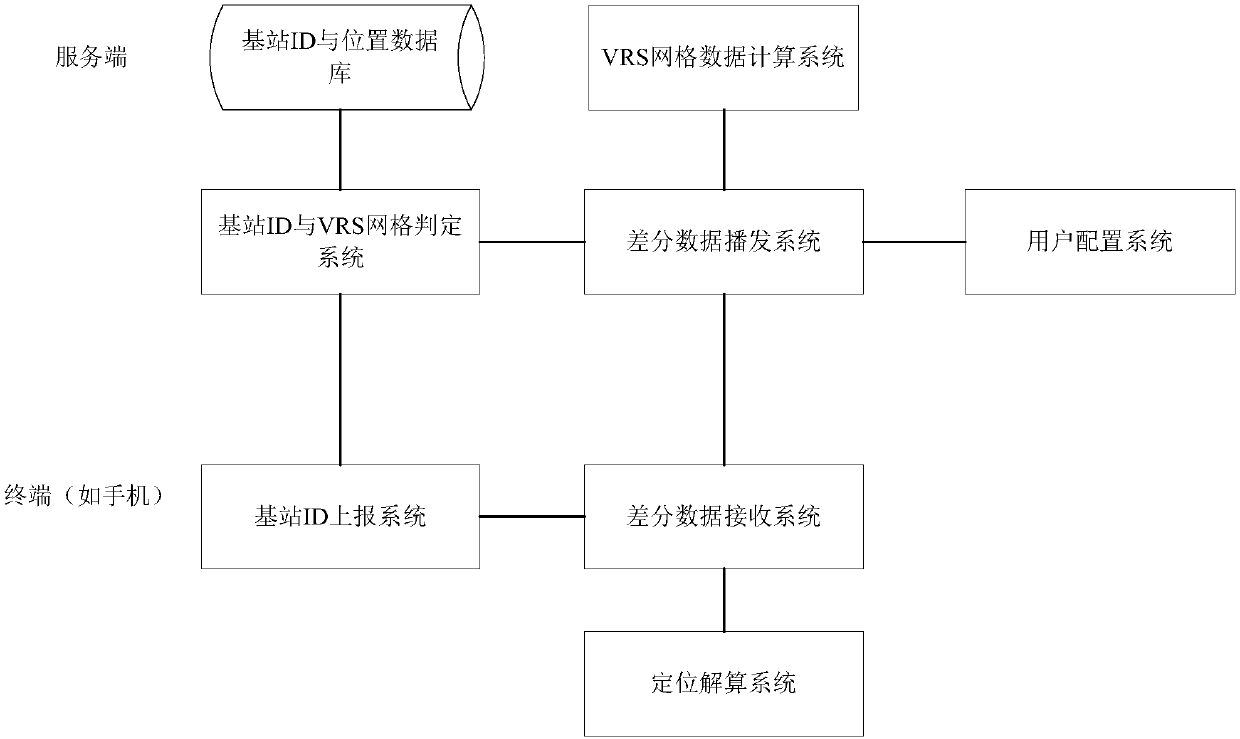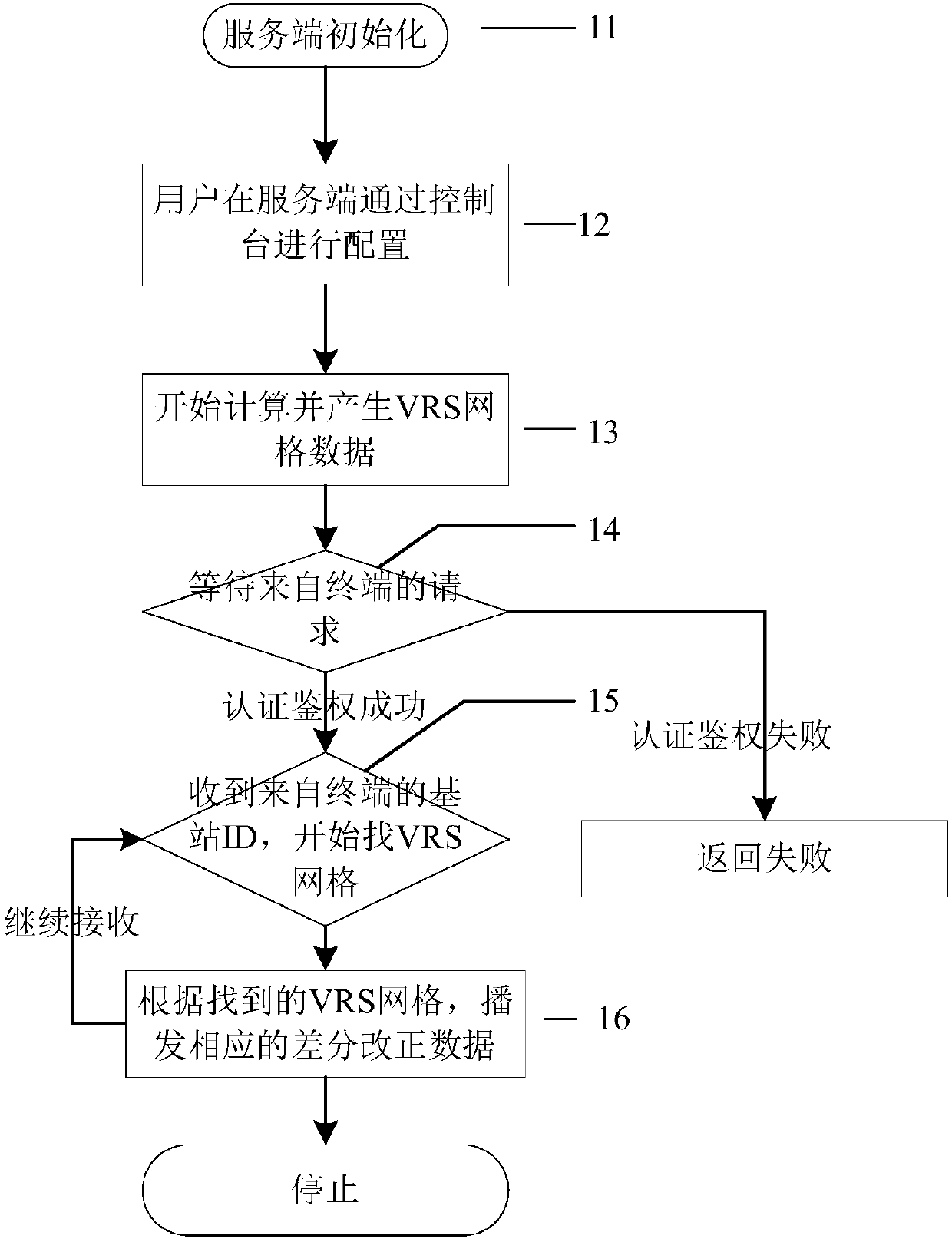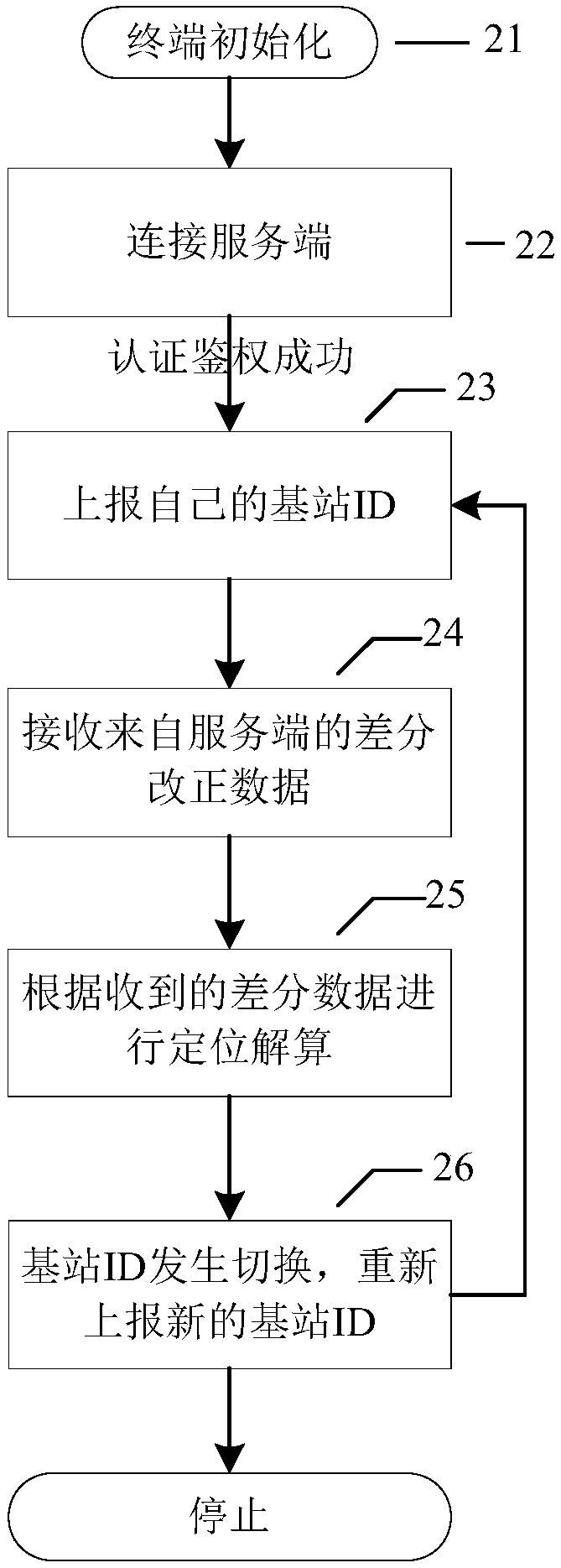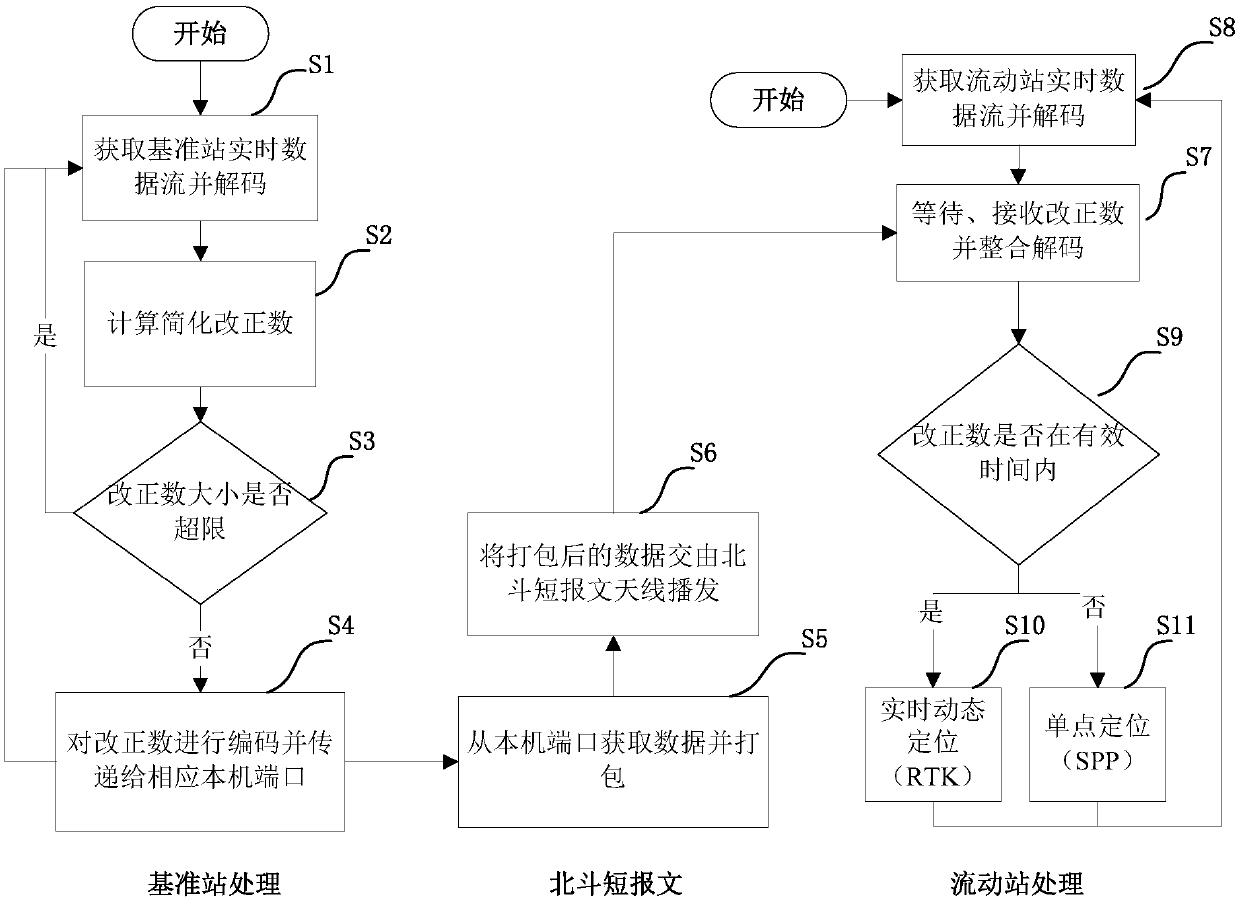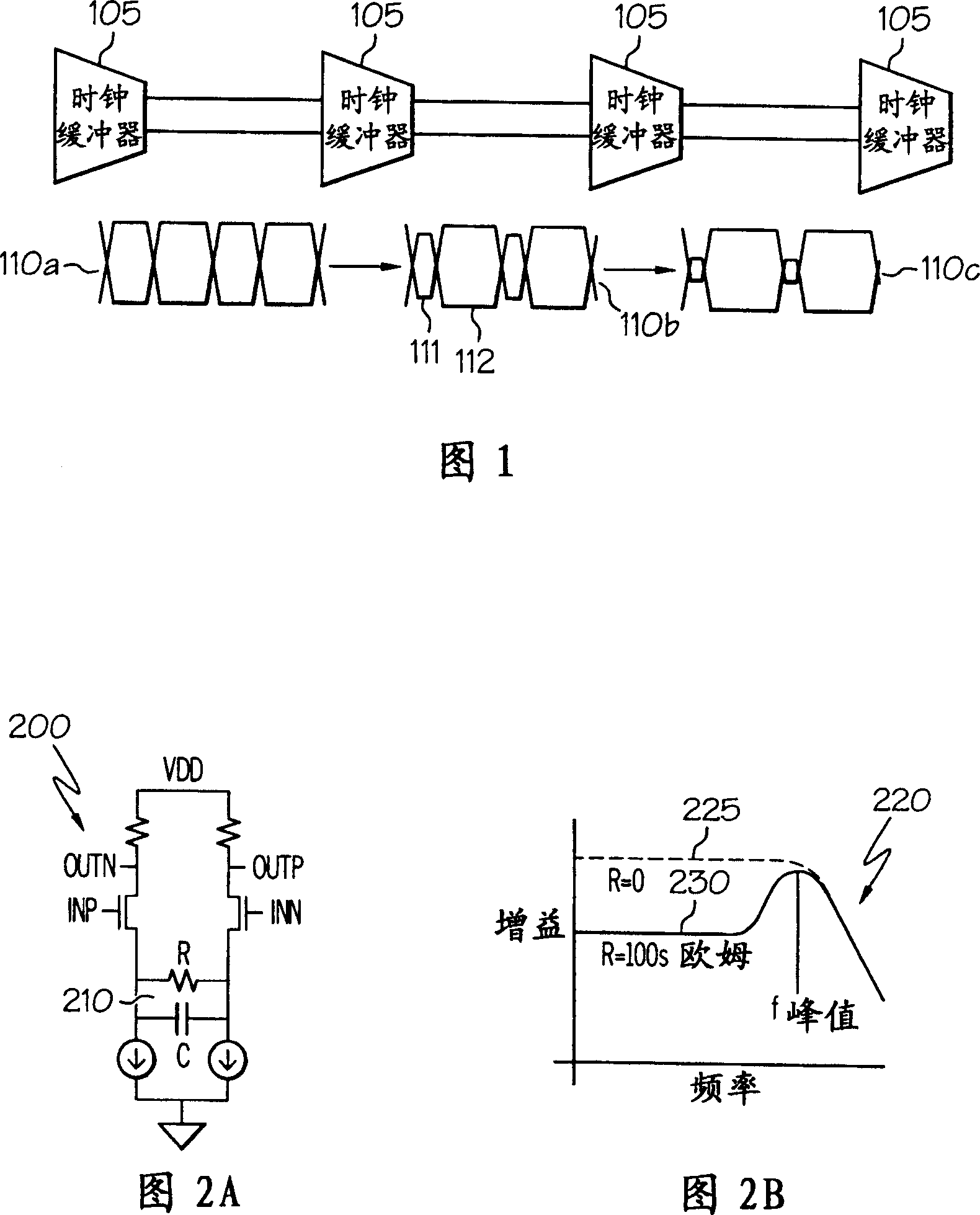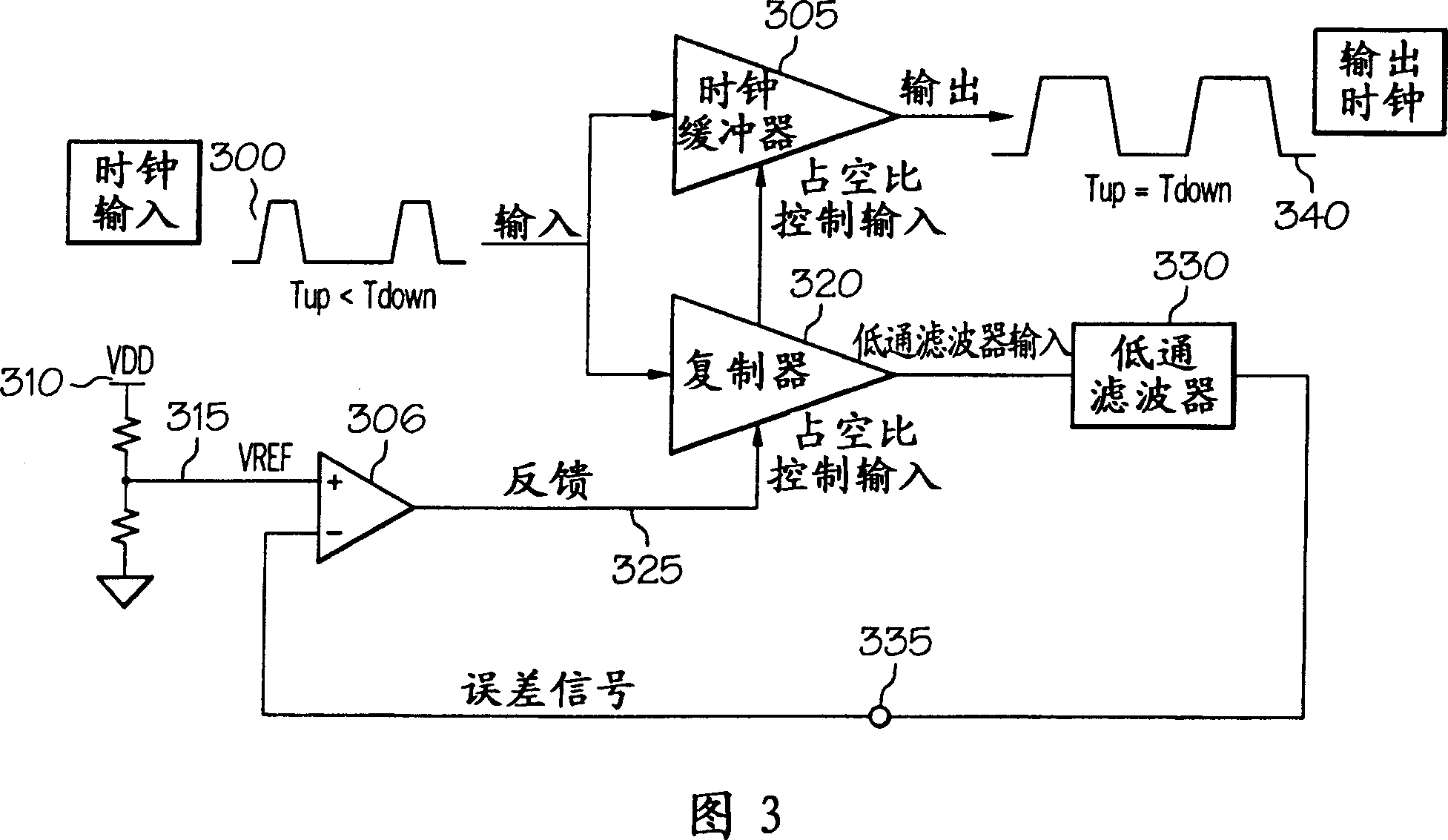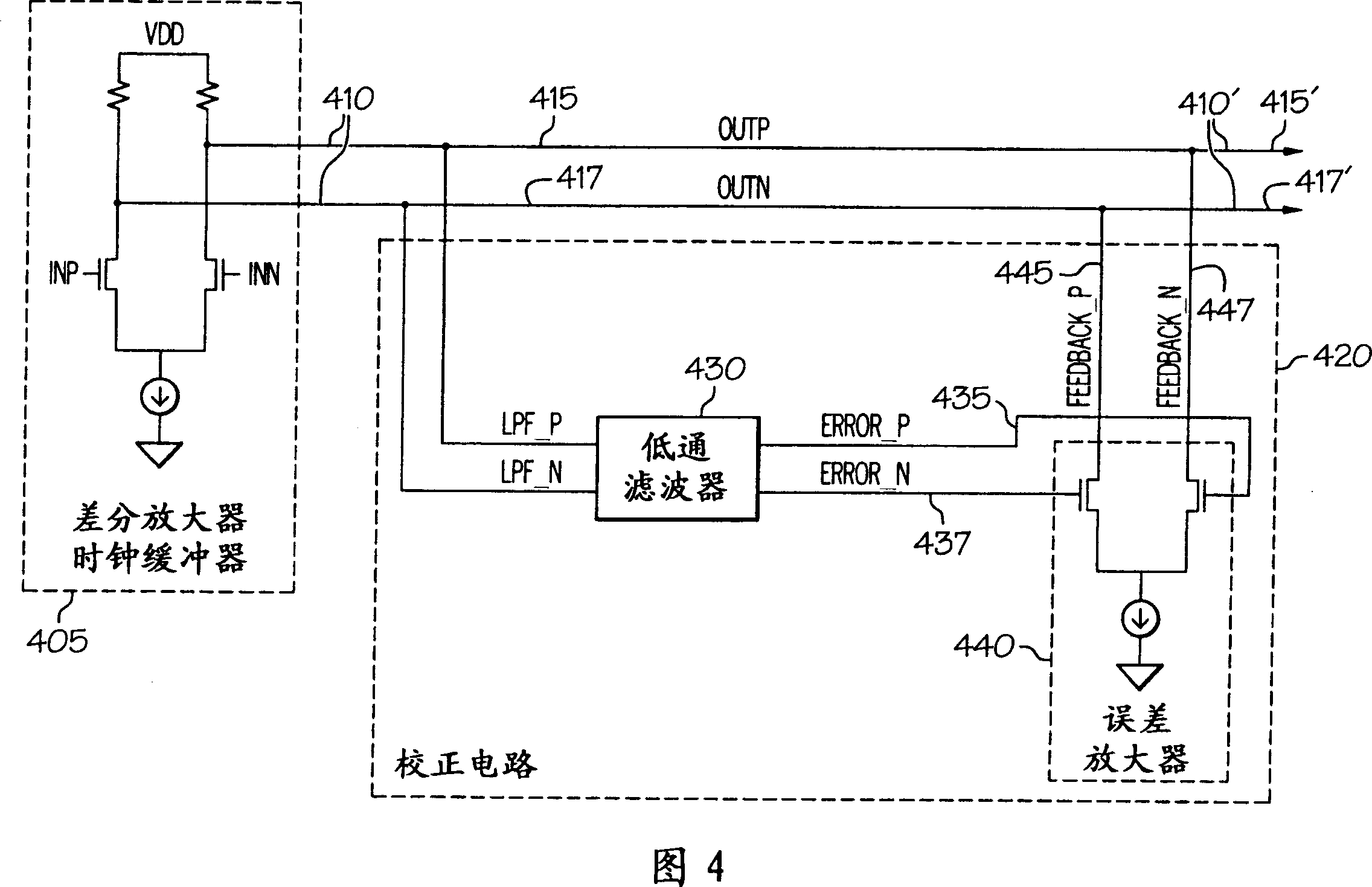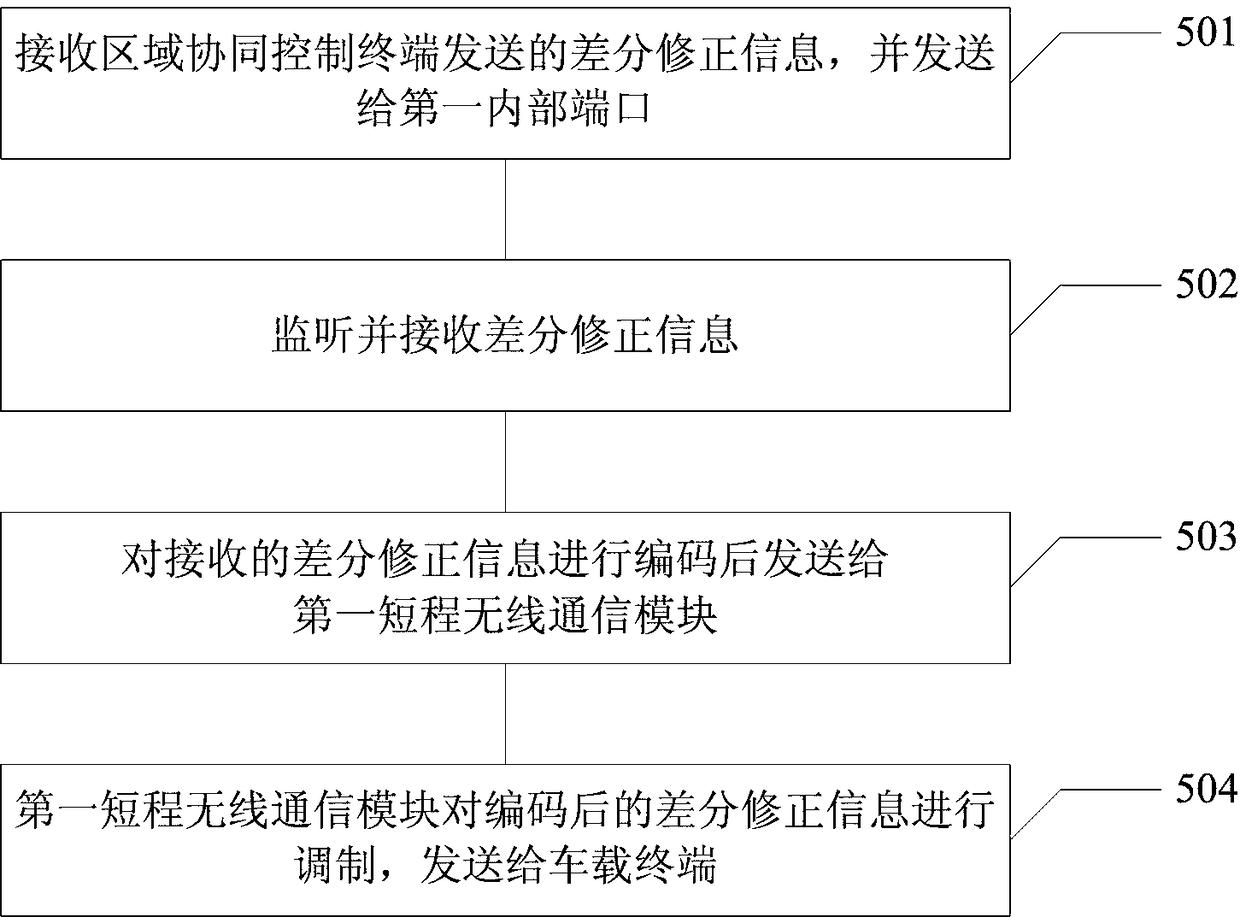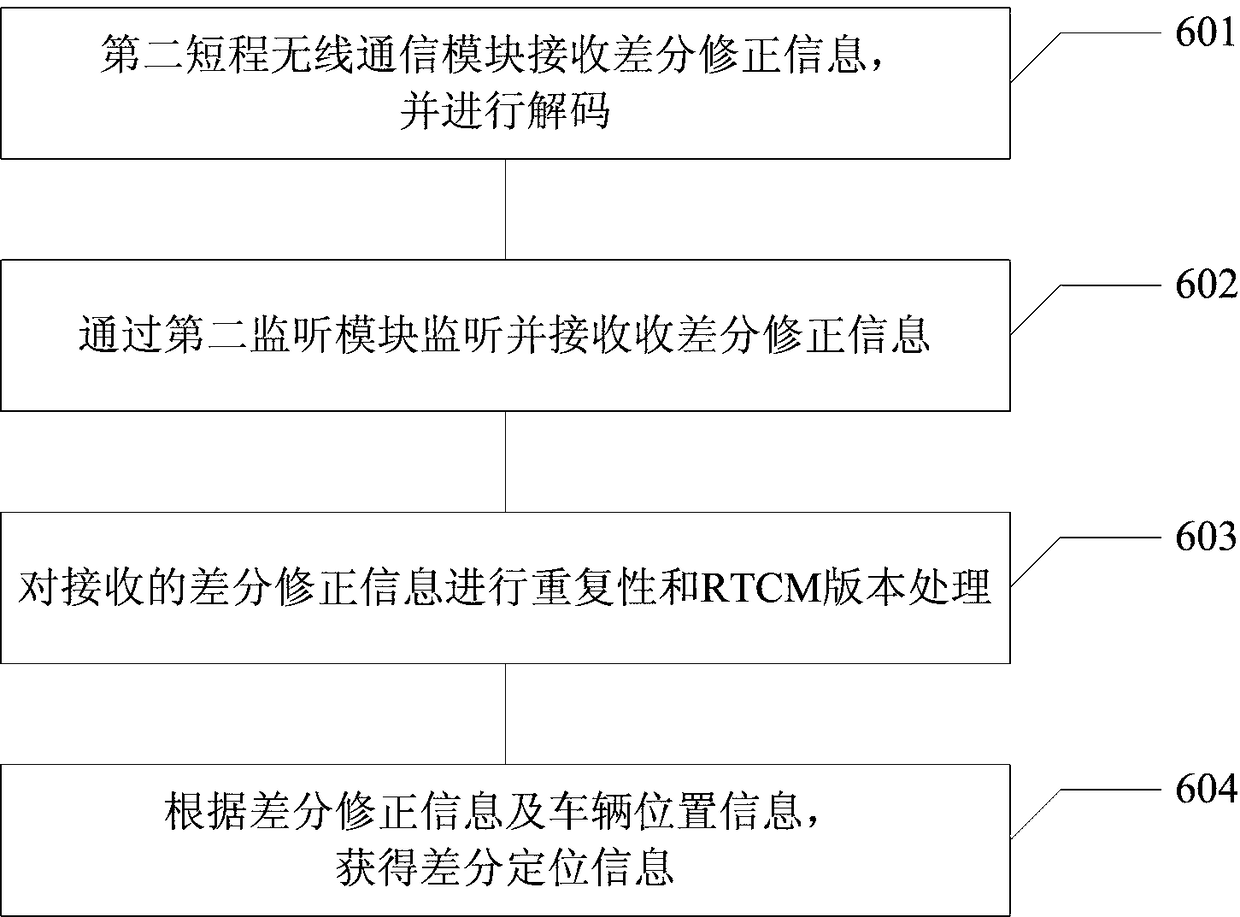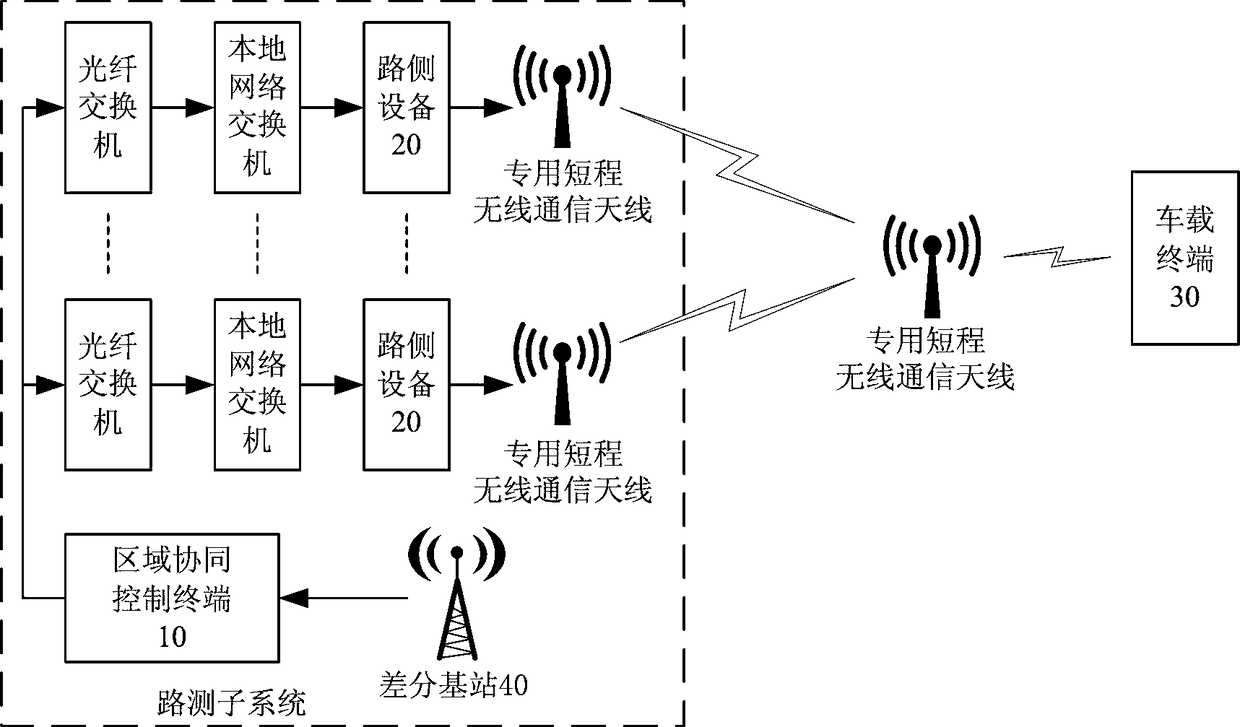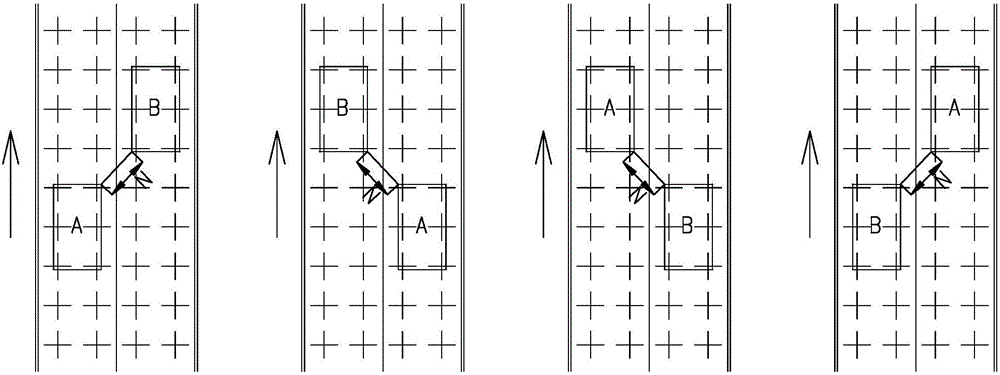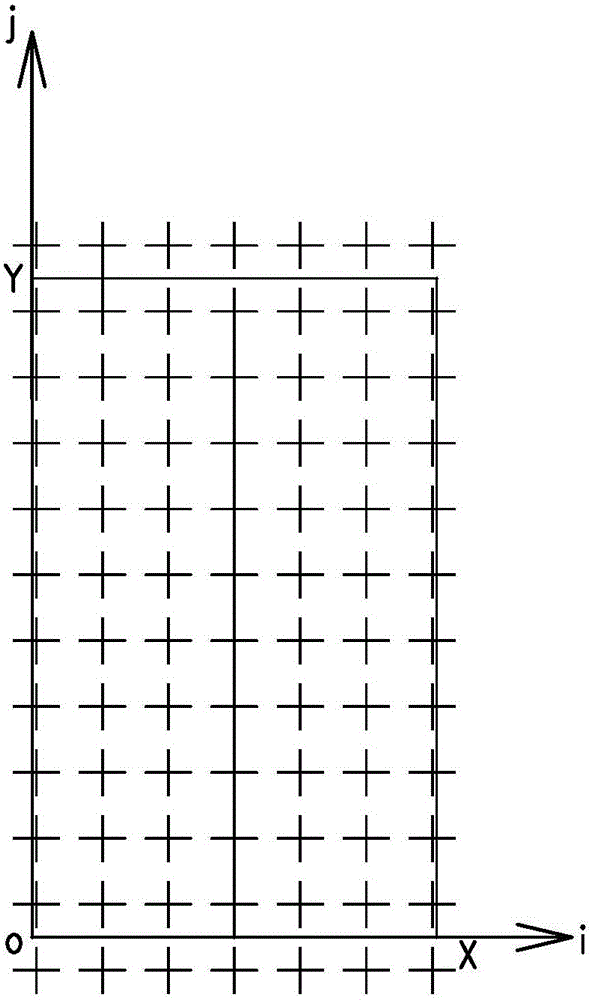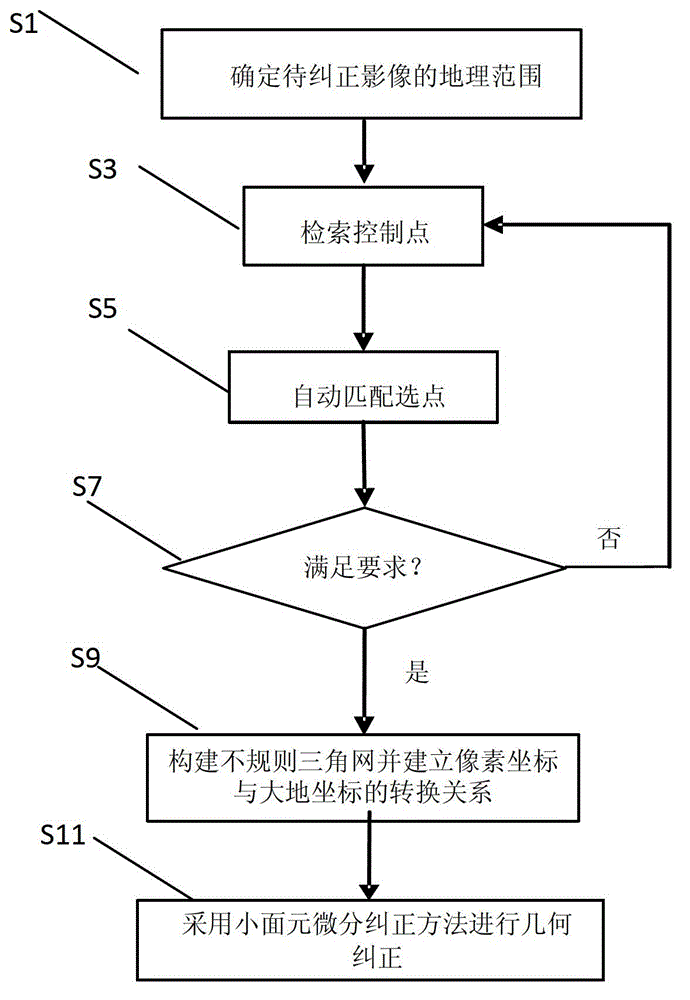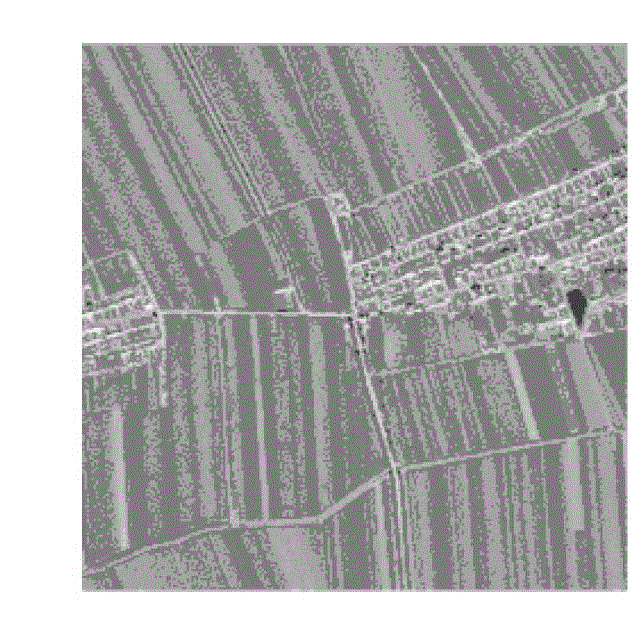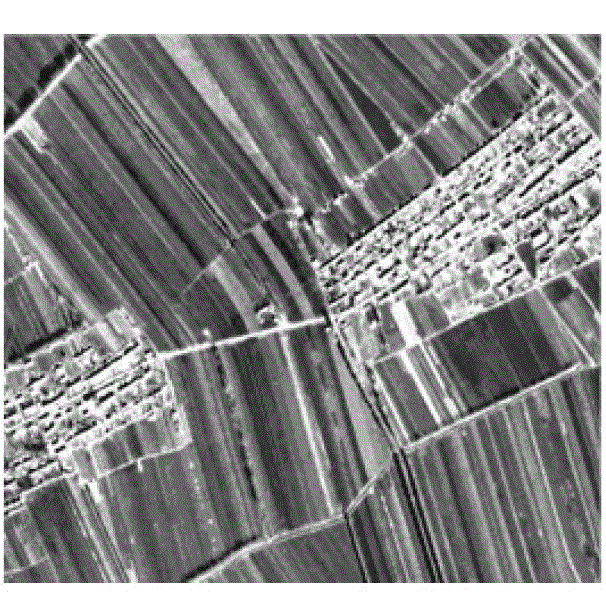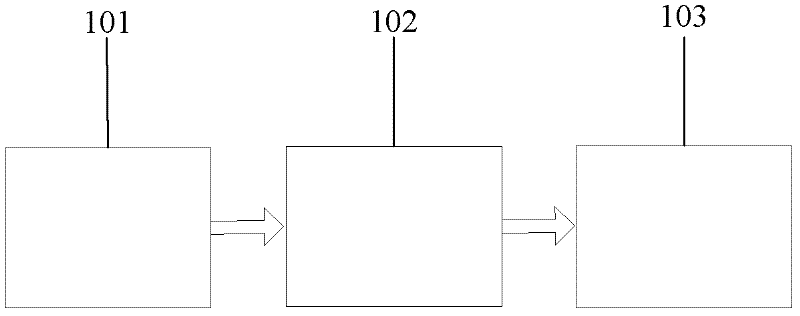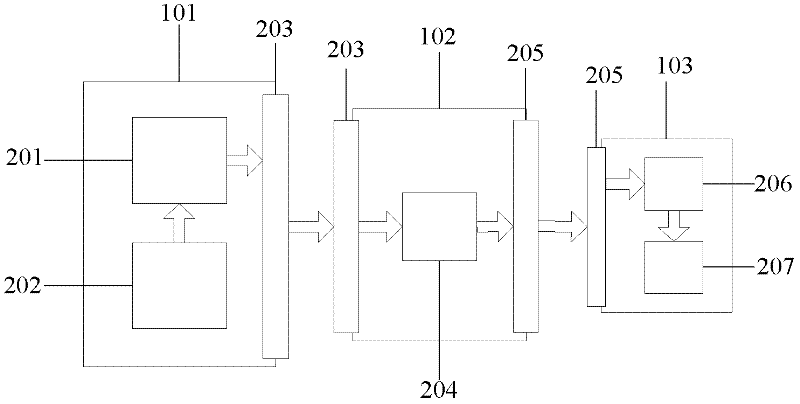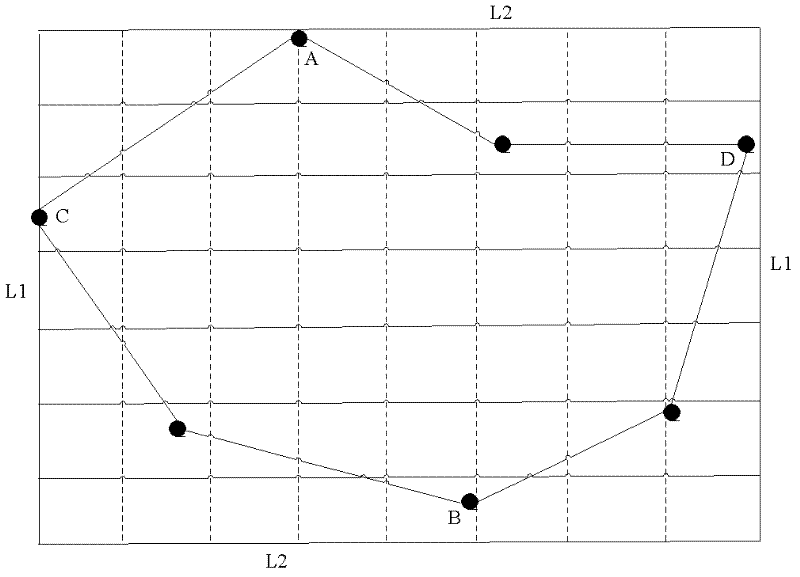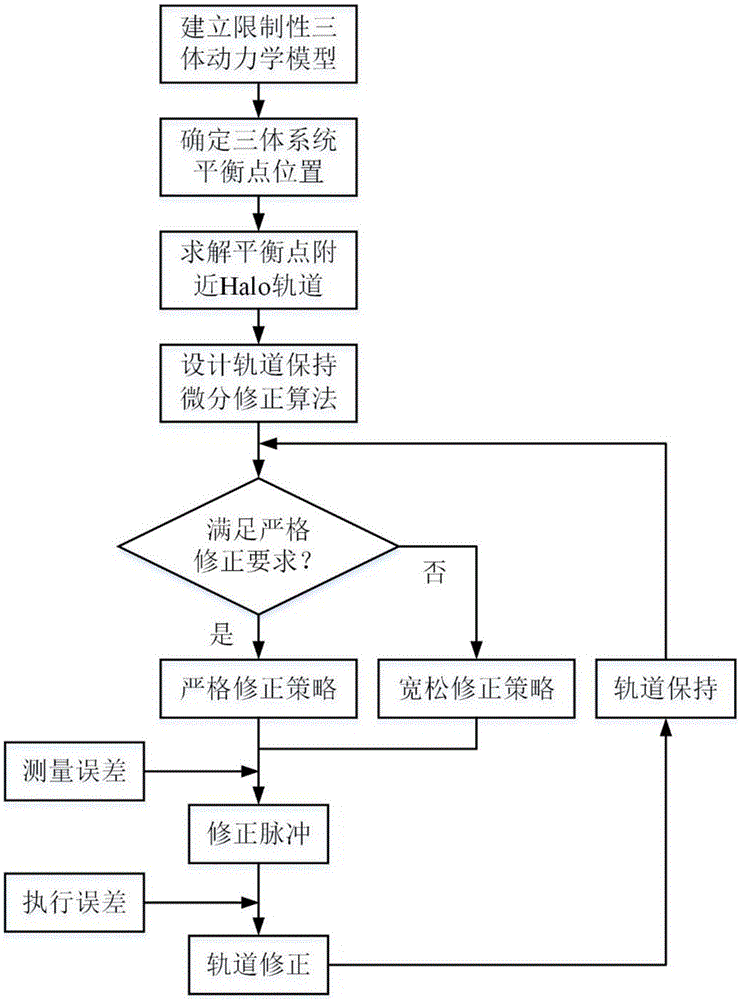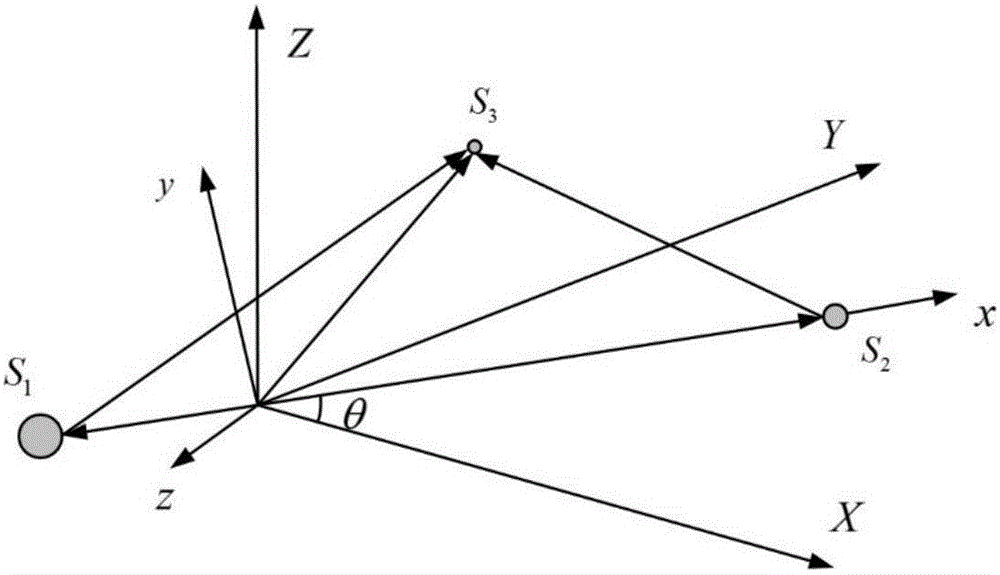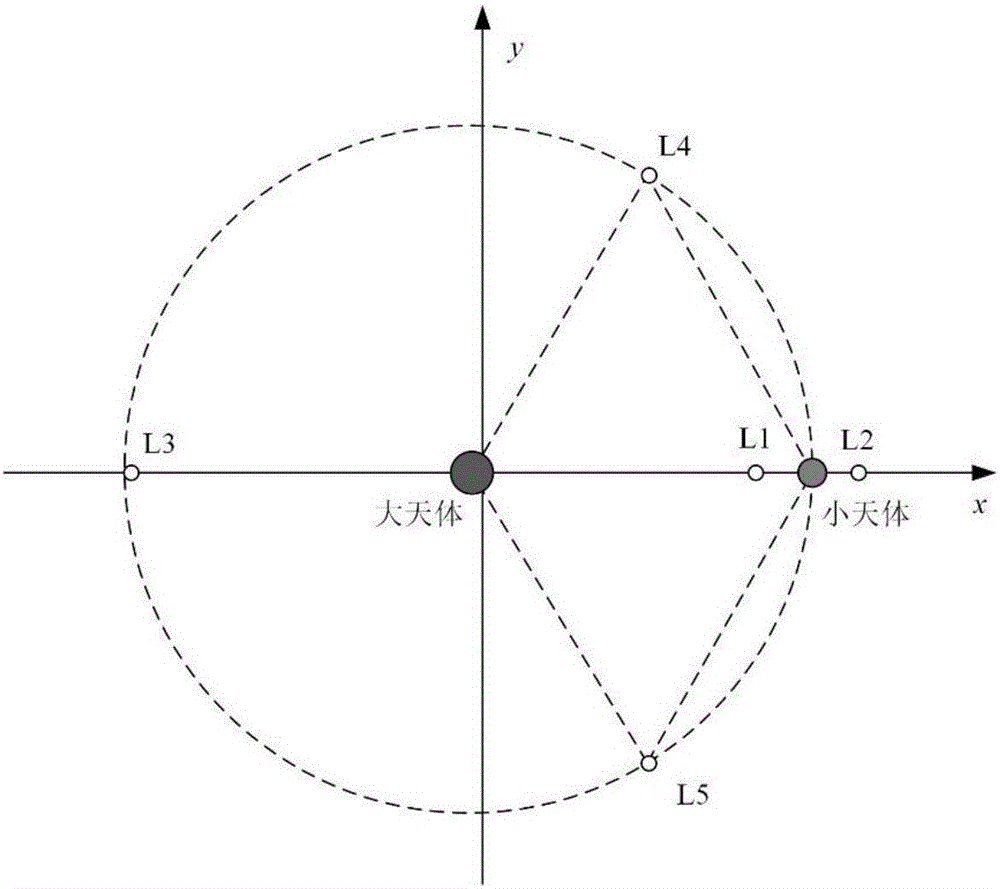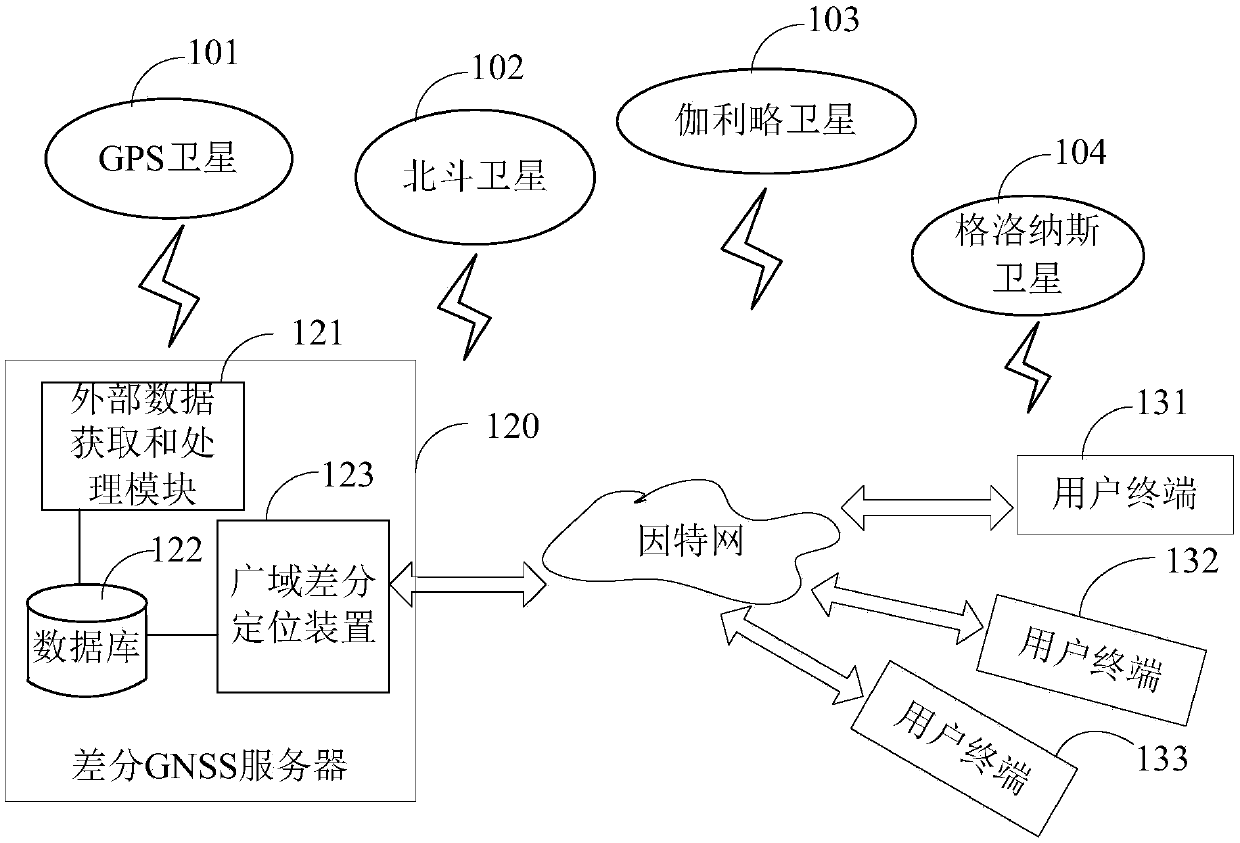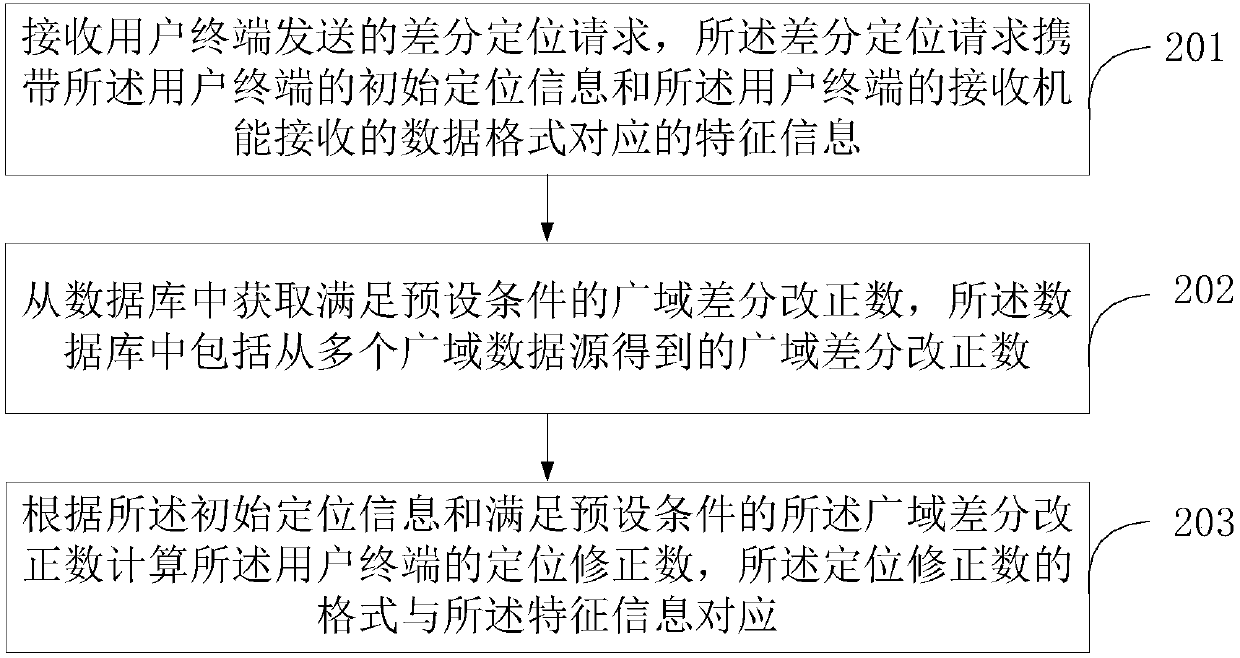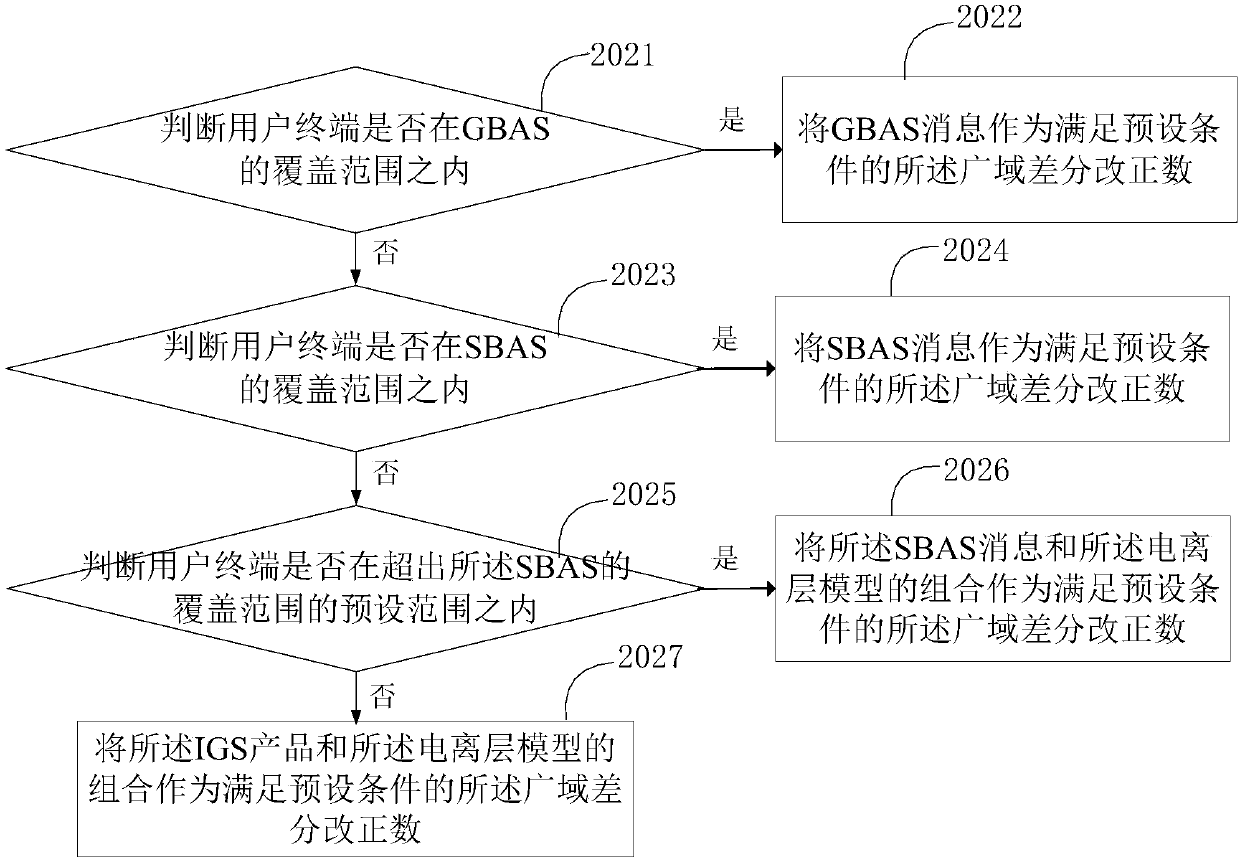Patents
Literature
302 results about "Differential correction" patented technology
Efficacy Topic
Property
Owner
Technical Advancement
Application Domain
Technology Topic
Technology Field Word
Patent Country/Region
Patent Type
Patent Status
Application Year
Inventor
Differential correction is a commonly used technique to reduce the systematic errors that decrease the accuracy of GPS positions. All differential correction techniques use correction data from a GPS base station to improve GPS locations calculated by a GPS receiver in the field...
High precision GPS/RTK and laser machine control
InactiveUS6433866B1Angle measurementLaser using scattering effectsMachine controlDifferential correction
The integrated laser and satellite positional system receiver is disclosed. The integrated laser and satellite positioning system receiver can provide a plurality of mobile units with a laser plane data determined with a millimeter relative accuracy. The integrated laser and differential satellite positioning system receiver can also generate and transmit the differential correctional data to a plurality of mobile units. Each mobile unit equipped with a mobile satellite positioning system receiver can use the differential correction data and the high precision laser plane data to improve its position determination capabilities.
Owner:TRIMBLE NAVIGATION LTD
Remote high-precision independent combined navigation locating method
InactiveCN101270993AImprove drop point (hit) accuracyHigh resolutionInstruments for comonautical navigationNavigation by speed/acceleration measurementsSynthetic aperture radarNavigation system
The invention relates to a remote high precision autonomous integrated navigation and positioning method, which is characterized in that a Strapdown Inertial Navigation System (SINS) is used as a main navigation system during the whole flight course of the aircraft, assisted by 3D high precision position and attitude angle information provided by celestial navigation system (CNS) based on the least square differential correction in boost phase (or middle segment). In reentry phase (terminal), using the characteristics of synthetic aperture radar (SAR), such as strong penetration capability, high resolving precision and all-weather, the SINS can be corrected through accurate location information and course information provided by SAR scene matching after motion compensation when the aircraft reentry into atmospheres, so the impact point (hit) accuracy of the aircraft can be increased and the invention has remarkable effects of eliminating or decreasing non-guidance error. The invention has advantages of autonomy and high precision, which can be used for improving remote ballistic missile, remote cruise missile, navigation and positioning accuracy of remote aircraft, such as long-endurance unmanned aerial vehicle, etc.
Owner:BEIHANG UNIV
An Error Correction Method in GNSS Network Differential Positioning System
InactiveCN102298151AImprove reliabilityImprove correction accuracySatellite radio beaconingDifferential correctionReal Time Kinematic
In a virtual reference station, systematic biases existing in troposphere error corrections can be caused by elevation biases between a mobile station and reference stations, thus, the troposphere correction precision is reduced, and the positioning effect of the mobile station is influenced. The invention discloses an error correction method in a global navigation satellite system (GNSS) network differential positioning system. When comprehensive error corrections between the mobile station and the reference stations are obtained through an interpolation computation model, under the condition of considering the influences of elevations, a three-dimensional linear combination interpolation method is adopted to improve the accuracy and the reliability of network real time kinematic (RTK) differential correction information, and the real-time effective differential correction information of the mobile station is interpolated by utilizing spatially-correlated errors resolved by the reference station, including an ionosphere error and a troposphere error, according to the spatial and positional relations between the mobile station and the surrounding reference stations. By adopting the method, the troposphere correction precision can be increased to centimeter level from decimeter level in interpolation computation corrections, and the network RTK positioning accuracy is improved.
Owner:SOUTHEAST UNIV
Integrity of differential GPS corrections in navigation devices using military type GPS receivers
A method and apparatus for calculating corrections to a navigation solution based on differential GPS data includes receiving GPS ephemeris from at least three GPS satellites. A PVT solution is resolved from the GPS ephemeris. The PVT solution includes a Circular Error Probable (CEP). Differential GPS data for calculating the corrections to the PVT solution is received. A corrected PVT solution is then based upon the differential GPS data. The corrected PVT solution is compared to an area defined by the CEP. Where the corrected PVT solution is not within the area, the corrected PVT solution is rejected in favor of the PVT solution for determining an accurate navigational solution.
Owner:HONEYWELL INT INC
Duty-cycle correction circuit for differential clocking
InactiveUS20070159224A1Correct distortionElectric pulse generatorPulse shapingAudio power amplifierLow-pass filter
A completely differential approach to correcting duty-cycle distortions of a differential clock signal propagating through a differential amplifier. A duty-cycle distortion correction (DCDC) differential amplifier circuit / device is provided with a differential amplifier whose output wires are coupled to a correction circuit. The correction circuit comprises a differential low pass filter and a differential correction amplifier. The differential correction amplifier's output is dotted back into the output of the amplifier. The differential output of the amplifier is passed through the low pass filter, which provides differential DC output signals that triggers respective correction amplifier transistors to generate an inverted correction current that is added back to respective differential output pulse. The DCDC differential amplifier provides a completely differential approach to correction of duty-cycle distortions within the differential output.
Owner:IBM CORP
Differential GPS corrections using virtual stations
InactiveUS20060064244A1Small sizeEasy to useInstruments for road network navigationPosition fixationGeographic regionsCarrier signal
Method and apparatus for providing GPS pseudorange correction and carrier phase correction information for navigation or surveying activities over a selected geographic region S of arbitrary size. In a navigation mode, a virtual reference station (VRS), positioned near a selected location L, receives differential GPS (DGPS) correction signals, translates these signals into a selected format, and broadcasts this DGPS information in this format for use by a local user. In a survey mode, the VRS receives corrected GPS information, translates this information into a selected format and broadcasts this translated and corrected GPS information and the VRS location, for use by a mobile station in forming a baseline vector from the GPS mobile station to the VRS location.
Owner:TRIMBLE NAVIGATION LTD
Broadcast-type network RTK positioning technology
ActiveCN106569239ARealize high-precision real-time positioningMeet high-precision real-time positioningSatellite radio beaconingData centerObservation data
The invention provides a broadcast-type network RTK positioning technology, and the technology comprises the steps: determining a virtual reference station position through grid dividing; calculating the observation data of the virtual reference station position; enabling a data center to broadcast differential correction number information to users through a unidirectional communication network; enabling a user terminal to receive a grid table and the observation data of the corresponding virtual reference station position, reforming the RTCM format of data of VRS data, and calculating a positioning results. The technology accords with the VRS data processing principle, employs the conventional GNSS reference station facility, just carries out proper modification of data processing software and data calculating software in moving station equipment, can achieve the centimeter-level real-time positioning, and can be widely used in many industries because the technology is small in introduction investment, is high in adaptability, is good in privacy and is infinite in number of users.
Owner:唐颖哲
System and method for augmenting DGNSS with internally-generated differential correction
ActiveUS8174437B2Improve robustnessLoss can be compensatedSatellite radio beaconingComputer memoryDifferential correction
In the invention, a rover receiver first utilizes data from a base Receiver, a DGNSS reference network, or other differential source to compute a differentially corrected location. Then, using this location and data observed only at the rover, the rover computes an internal set of differential corrections that are stored in computer memory, updated as necessary, and applied in future times to correct observations taken by the rover. The possibly mobile rover receiver, therefore, corrects its own observations with differential corrections computed from its own past observations; relying on external differential for the sole purpose of establishing a reference location, and this is unlike prior art.
Owner:HEMISPHERE GNSS
Method and system used for providing position information
The invention discloses a method and a system used for providing position information, which can be used to solve the problem of the prior art of the inability of realizing the large-scale high-precision real-time positioning. The method is characterized in that the access to various CORS data processing centers can be realized by adopting a set time interval according to pre-stored CORS data processing center attribute information, and the differential correction values of various reference stations belonging to the CORS data processing centers can be acquired; approximate position information reported by a target terminal can be acquired; the map grid cell of the target terminal can be determined based on the pre-stored map having the divided grid cells according to the approximate position information reported by the target terminal; according to the acquired differential correction values of various reference stations, the differential correction value of the map grid cell of the target terminal can be determined, and the approximate position information of the target terminal can be corrected, and then the accurate position information of the target terminal can be acquired, and therefore the high-precision real-time positioning of the terminal can be realized.
Owner:CHINA MOBILE COMM GRP CO LTD
Mobile base station positioning method based on wireless communication network
InactiveCN101102593AOvercome the state agnostic problemNo broken linksPosition fixationRadio/inductive link selection arrangementsCarrier signalGps receiver
The method comprises: installing the GPS receiver at any location of the scene as a base station; the GPS receiver receives the GPS satellite signals and generates the differential correction information; the differential correction information is uploaded to the relay server via radio communication network; the relay server sends the differential correction information to the user's receiver of mobile station via radio communication network; the mobile station receives the GPS satellite carrier and pseudo range signal and navigation message, and receives the differential information from relay server via the radio communication network so as to realize the relative positioning between the base station and mobile station; making coordinate conversion and calculation for the positioning result to the user-desired coordinate.
Owner:SOUTHEAST UNIV
Portable base station network for local differential GNSS corrections
A DGNSS-based guidance system, wherein a rover receiver first utilizes data from a master base station transceiver, a DGNSS reference network, or some other differential source to compute a differentially corrected location to establish a reference DGNSS relationship. Using this location and data observed only at the rover, the rover computes an internal set of differential corrections, which set is stored in computer memory, updated as necessary, and applied in future times to correct observations taken by the rover. As the rover enters into areas of other base station receiver reference networks, the rover transceiver will send positional information it receives from the master base station to the new, secondary base station. The secondary base station then calibrates its own reference information using information sent from the original master base station.
Owner:AGJUNCTION
GNSS decimeter scale differential positioning method based on virtual grid
InactiveCN107422351ASolve the problem of concurrent onlineRelieve pressureSatellite radio beaconingBroadcastingDifferential correction
The invention provides a GNSS decimeter scale differential positioning method based on virtual grids. Pseudo range differential correction information is divided through grids, the pseudo range differential correction information is broadcasted in a broadcast form, a user determines which grid the user is in according to a preliminary position of the user, and required correction information is selected and pseudo range differential correction is performed. Since users in all grids use same correction data, and a user terminal determines which correction information is needed, a server just needs to broadcast correction, and user interaction is not needed. The method reduces pressure of the server, and is not limited by terminal user number. The method solves a problem of user concurrent getting online, and provides algorithm basis for large amount of decimeter scale GNSS differential positioning service.
Owner:湖南省测绘科技研究所 +1
Differential GPS corrections using virtual stations
InactiveUS20060282216A1Instruments for road network navigationPosition fixationGeographic regionsCarrier signal
Method and apparatus for providing GPS pseudorange correction and carrier phase correction information for navigation or surveying activities over a selected geographic region S of arbitrary size. In a navigation mode, a virtual reference station (VRS), positioned near a selected location L, receives differential GPS (DGPS) correction signals, translates these signals into a selected format, and broadcasts this DGPS information in this format for use by a local user. In a survey mode, the VRS receives corrected GPS information, translates this information into a selected format and broadcasts this translated and corrected GPS information and the VRS location, for use by a mobile station in forming a baseline vector from the GPS mobile station to the VRS location.
Owner:ROBBINS JAMES E
Mobile terminal base station differential positioning method, positioning device and system
ActiveCN103906228AEliminate static errorsHigh positioning accuracyTransmission monitoringWireless communicationPropagation timeComputer terminal
The invention discloses a mobile terminal base station differential positioning method. The method comprises the steps that a positioning device acquires one or more pieces of base station differential information matching a positioning request from a base station differential information database; the signal propagation time from a mobile terminal to a number of base stations, the signal propagation time difference of a number of base stations, or the signal intensity correction value of each base station is calculated; the positioning device uses the correction value to respectively correct each parameter; and the positioning device calculates the positioning information of the mobile terminal according to the corrected parameters. According to the mobile terminal base station differential positioning method, the positioning device and the system, which are provided by the invention, the multi base station information of one or more known positions is used to carry out differential correction on the multi base station information of an unknown position; a static error caused by dynamic errors of base station signal drift and the like and antenna feeder length and the like is eliminated; the positioning accuracy is improved; and a common terminal can be used to automatically collect differential data, which is convenient for implementation.
Owner:CHINA TELECOM CORP LTD
Un-differential correction distributed processing system and method based on receiver of reference station
A reference station transmitter based distributed processing system and method for zero-difference correction. The system and method transfer a main computation task in conventional centralized data processing to a reference station transmitter for completion; the reference station transmitter realizes tasks such as conventional PPP resolving, PPP zero-difference ambiguity fixation and zero-difference correction product generation via data interaction with a server; and a user end generates a relevant virtual zero-difference correction by accessing a reference station area code address server, so as to realize PPP-RTK resolving under regional enhancement. The zero-difference correction distributed processing system and method based on a reference station transmitter greatly reduces the load of a server, and solves the problem that a relevant server has an excessive load; a client does not need to arrange for a server room to be specifically attended by personnel, which reduces the maintenance work on the server for a user, and saves costs; and a reference station and the user do not need to upload precise geographic coordinates, so that the confidentiality is better.
Owner:COMNAV TECH
Asset tracking method
InactiveUS20060022867A1Improve accuracyHigh positioning accuracyRoad vehicles traffic controlPosition fixationThird partyEngineering
The present invention relates to a system for managing assets such as vehicles and / or equipment in an area such as a repair yard or parking lot. A plurality of mobile devices periodically wake-up at different times and transmit their uncorrected GPS location data to one or more fixed local devices. Each fixed local device periodically forwards its accumulated, uncorrected GPS data for each mobile device to a reference device. A reference device is precisely located and capable of differentially correcting the data and forwarding the corrected result sets either back to the local devices and / or to third parties.
Owner:PRECO ELECTRONICS INC AN IDAHO
Control system and control method of outdoor micro ground swarm robot
ActiveCN103235595AImprove co-location accuracySimple designTotal factory controlProgramme total factory controlControl systemDifferential correction
The invention discloses a control system and a control method of an outdoor micro ground swarm robot. The control system comprises a differential positioning base station, an upper monitoring computer and a plurality of individual robots, wherein the individual robots form a swarm robot system; the differential positioning base station is used for receiving a positioning signal in real time, performing pseudo-range differential calculation with a given base station reference coordinate, and then sending a differential correction number to the individual robots in the swarm robot system through a wireless communication module; the individual robots are used for receiving the positioning signal in real time and the differential correction number sent by the base station and obtaining a position coordinate after performing pseudo-range differential calculation; and the upper monitoring computer is used for receiving the position information of the individual robots through the wireless communication module and sending a command to control the running of the individual robots. By the control system and the control method, the positioning precision of the individual robots can be improved, and complex tasks, such as coordinate control and combined target search of the swarm robots are realized.
Owner:湖南睿图智能科技有限公司
System and method for augmenting dgnss with internally-generated differential correction
ActiveUS20110025555A1Improve robustnessLoss can be compensatedSatellite radio beaconingComputer memoryDifferential correction
In the invention, a rover receiver first utilizes data from a base Receiver, a DGNSS reference network, or other differential source to compute a differentially corrected location. Then, using this location and data observed only at the rover, the rover computes an internal set of differential corrections that are stored in computer memory, updated as necessary, and applied in future times to correct observations taken by the rover. The possibly mobile rover receiver, therefore, corrects its own observations with differential corrections computed from its own past observations; relying on external differential for the sole purpose of establishing a reference location, and this is unlike prior art.
Owner:HEMISPHERE GNSS
Interplanetary transfer orbit design method
InactiveCN103112600ASmall amount of calculationRapid designCosmonautic vehiclesCosmonautic partsAviationDelta-v
The invention relates to an interplanetary transfer orbit design method, in particular to a transfer orbit design method from a periodical orbit which is near dynamic balance points of a three-body system to a small celestial body and belongs to the technical field of aerospace. Firstly, based on the periodical orbit which is near the dynamic balance points of the three-body system where a detector is located, an initial state of the detector x0=[ r0, v0] is assumed. Secondly, a speed increment delta v is exerted along a tangential direction so that the detector sets off from the periodical orbit near the dynamic balance points. Based on a multiple-body model, relations between the detector and a distance df of the detector and the target small celestial body, a flying period tf and the tangential direction speed increment delta v are built up when the detector flies across the target small celestial body is built. Through an optimizing algorithm, an initial value of the transfer orbit is obtained when the fight distance df is minimum. Finally, a secondary-level differential correction method is used based on the initial value to obtain orbit parameters which can meet two point boundary values. The interplanetary transfer orbit design method can achieve rapid design of flight from the periodical orbit which is near the dynamic balance points of the three-body system to the small celestial body, calculation amount is small and efficiency is high.
Owner:BEIJING INSTITUTE OF TECHNOLOGYGY
Satellite positioning method based on real-time beacon differential
InactiveCN104459737AEliminate the Effects of Latency ErrorsHigh positioning accuracySatellite radio beaconingNatural satelliteIonosphere
The invention discloses a satellite positioning method based on real-time beacon differential. According to the satellite positioning method based on the real-time beacon differential, in order to solve the problem that ionized layer delay can not be eliminated when a conventional single-frequency beacon positioning method is adopted, the idea that an ionized layer pseudo range eliminating observation value is formed at the base station end by mean of a double-frequency pseudo range observation value is provided; meanwhile, smoothing is conducted on the ionized layer pseudo range eliminating observation value with amplified noise by means of an epoch carrier phase observation value low in noise, a corrected pseudo range value and the rate of change of the corrected pseudo range value along with time are generated according to the known distance between the station and a satellite, coding and sending conducted by means of single-frequency differential data in the prior art are replaced, and the effect of achieving double-frequency positioning by means of the original single-frequency sending technology is achieved. On the user side, a differential correction signal is demodulated through a receiver and is combined with the ionized layer pseudo range eliminating observation value which is received and processed by a user station and is subjected to smoothing for positioning and calculating. By the adoption of the satellite positioning method based on the real-time beacon differential, when the distance between the user station and a differential beacon station reaches 300 km, the planar positioning accuracy can be improved to about 0.15 m from the original 0.65 m.
Owner:SOUTHEAST UNIV
GNSS receiver with enhanced accuracy using two signal carriers
ActiveUS20090219201A1Easy to initialize trackingEasy to trackBeacon systemsSatellite radio beaconingDiscriminatorCarrier signal
A satellite positioning receiver is disclosed having at least one receive channel. Each receive channel is intended to perform a combined processing of a first S1 and a second S2 radiofrequency signals separated in frequency. The signals are received by analogue paths of the receive channel then digitized to be processed in digital receive paths. Each receive channel has a first (160) and a second (162) correlation circuits, respectively receiving the first and the second received digitized signals. Carrier and code phase discriminators are common to both correlation circuits. A local code generator is provided for each code correlation path. The local codes are offset by a positive differential delay correction +Δτcal for one of the correlation circuits and a negative differential delay correction −Δτcal for the other. These corrections tend to compensate for the relative delay difference between the two signals in the analogue paths of the receive channel. A phase differential correction device Δφcal tends to compensate for the phase differential deviation between the two signals occurring in the analogue paths of the receive channel.
Owner:THALES SA
High-precision positioning method and system for protecting location privacy of users
ActiveCN107820204AProtect location privacy dataLocation information based serviceSecurity arrangementComputer terminalDifferential correction
The invention provides a high-precision positioning method and system for protecting location privacy of users. The method includes the following steps: a terminal reports a mobile communication basestation ID to a server instead of reporting NMEA GGA data; the server establishes a corresponding relationship between the mobile communication base station ID and a location of a mobile communicationbase station in advance, and stores the corresponding relationship in a base station ID and location database; the server finds the location of the mobile communication base station according to themobile communication base station ID reported by the terminal; the server matches a corresponding virtual reference station grid according to the location of the mobile communication base station; andthe server broadcasts differential correction data corresponding to the virtual reference station grid to the terminal according to the matched virtual reference station grid. According to the high-precision positioning method and system provided by the invention, location privacy data of the users can be effectively protected technically.
Owner:QIANXUN SPATIAL INTELLIGENCE INC
Single-base-station long-distance offshore real-time dynamic positioning method
ActiveCN108072887AAvoid persistent deteriorationSolve the inconvenienceSatellite radio beaconingDynamic positioningNavigation system
The invention provides a single-base-station long-distance offshore real-time dynamic positioning method. A short message function of a Beidou navigation system is sued to transmit a simplified differential correction number, the difficulty that offshore communication is inconvenient or even there is no communication offshore is overcome, different observation values in different frequencies of Bedou and GPS satellite navigation systems are utilized to develop a stable, rapid and accurate flowing-end real-time positioning algorithm aimed at the special offshore environment, correction number play software of a corresponding reference station and real-time moving station positioning software are realized, and a single-base-station based long-distance offshore real-time dynamic positioning system is established.
Owner:TONGJI UNIV
Duty-cycle correction circuit and method for differential clocking
Owner:INT BUSINESS MASCH CORP
Differential positioning system and method based on vehicle-road coordination system
InactiveCN108983263ALow costLower latencyParticular environment based servicesSatellite radio beaconingIntelligent NetworkComputer terminal
A differential positioning system based on a vehicle-road coordination system comprises a road test subsystem and an onboard terminal. The road test subsystem generates differential correction information and transmits the same to the onboard terminal. The onboard terminal generates differential positioning information of a vehicle by using acquired vehicle original positioning information and thedifferential correction information. The road test subsystem further comprises a differential base station, a regional coordinated control terminal, a roadside terminal. The differential base stationgenerates the differential correction information according to the accurate coordinates of its own position and the acquired changed positioning information. The regional coordinated control terminaltransmits the differential correction information to a plurality of roadside devices in the region of the regional coordinated control terminal. The roadside devices broadcast the differential correction information to the onboard terminal within its coverage. The invention also provides a differential positioning method based on a vehicle-road coordination system to provide high-precision positioning information for intelligent network-connected vehicles and unmanned vehicles.
Owner:北京星云互联科技有限公司
Lane judgment method based on latitude and longitude acquisition points and positioning device thereof
ActiveCN105702093AImprove reliabilityImprove securityDetection of traffic movementAnti-collision systemsFault toleranceRadar
The invention discloses a lane judgment method based on latitude and longitude acquisition points. Multiple reference points are set on a target road, and a principal coordinate matrix of the target rod and a sub-coordinate matrix of each lane are acquired; the lane in which a target vehicle is positioned is determined, the coordinate values of all the reference vehicles in the adjacent lanes of the lane in which the target vehicle is positioned are collected, and actual distance between the target vehicle and the reference vehicles is acquired through matrix calculation; and whether the target vehicle can change lane is judged by comparing the actual distance and safe distance. Meanwhile, the invention also discloses a positioning device applied to the method. Advantages of the method are that the method has higher reliability in comparison with that of an independent GPS and has better road fault tolerance in comparison with that of radar so that degree of safety is higher, data feedback is more rapid, and whether the vehicle can change lane is prejudged through establishment of a vehicle latitude and longitude matrix coordinate system and differential correction of precision of submitted distance calculation.
Owner:JIANGSU LIANMENG INFORMATION ENG CO LTD
Automatic geometric correction method for wide remote-sensing images
ActiveCN103337052ARealize automatic retrievalRealize automatic matchingImage enhancementSpecial data processing applicationsMatched controlDifferential correction
The invention relates to an automatic geometric correction method for wide remote-sensing images based on a control point image database. The automatic geometric correction method comprises the steps of determining the geographical range of an image to be corrected; searching all control points meeting the requirements in the control point image database according to the determined geographical range of the image to be corrected; carrying out automatic matching point selection; determining control points used for geometric correction; judging whether the number and the distribution of the matched control points meet the requirements of geometric correction or not, if so, then entering the next step, and if not, then returning back to the step of searching; constructing a triangular irregular network based on the matched control point pairs and establishing the transformational relation between pixel coordinates and geodetic coordinates; and carrying out geometric correction based on a small surface element differential correction method to obtain a corrected digital orthoimage. The method provided by the invention realizes automatic searching and automatic matching of control point images, thereby being capable of reducing the time spent on collecting and selecting the control points; and the small surface element geometric correction method is adopted, thereby being capable of improving the precision of wide image geometric correction.
Owner:SATELLITE SURVEYING & MAPPING APPL CENTSASMAC NAT ADMINISTATION OF SURVEYING MAPPING & GEOINFORMATION OF CHINANASG
Multi-port regional gridding VRS (Virtual Reference Station) differential positioning information broadcasting device and work method thereof
InactiveCN102510318AStable quantityBroadcast specific applicationsBroadcast-related systemsMulti portDifferential correction
The invention relates to a multi-port regional gridding VRS (Virtual Reference Station) differential positioning information broadcasting device and a work method thereof, belonging to the field of measuring methods. The multi-port regional gridding VRS differential positioning information broadcasting device comprises a network RTK (Real Time Kinematic) system reference station, a data processing center and a data FM (Frequency Modulation) broadcasting unit, wherein the network RTK system reference station is connected with a data processing center server through optical fiber, and the data processing center server is connected with the data FM broadcasting unit through a serial port; and the data FM broadcasting unit is used for carrying out FM broadcasting on differential correction data packaged by a UDP (User Datagram Protocol). The work method comprises the steps of: receiving network RTK system reference station information by the data processing center, and dividing grids for the covered region of the network RTK system reference station; then solving all differential correction information of all grid virtual reference stations by utilizing a VRS algorithm, and then appointing an unique UDP port number for each grid virtual reference station and packaging the differential correction information by using the UDP protocol; finally, carrying out FM broadcasting on the UDP data packets, three-dimensional coordinates and UDP port numbers of all the grid virtual reference stations through the data FM broadcasting unit.
Owner:SHANDONG UNIV
Halo orbit on-orbit keeping method considering amplitude constraint
InactiveCN106682274AStay fit in orbitSimple calculationCosmonautic condition simulationsDesign optimisation/simulationObservational errorAviation
The invention provides a Halo orbit on-orbit keeping method considering amplitude constraint, and belongs to the aerospace technology field. The method comprises the steps that by establishing a kinetic equation under a limited three-body model composed of two main celestial bodies and a detector, the position of a balance point of a three-body system composed of the two celestial bodies and the detector is determined; a Halo orbit, near the balance point, in the three-body system composed of the big and small celestial bodies and the detector is determined; a differential correction algorithm for Halo orbit keeping is designed according to the disturbance variable; a Halo orbit on-orbit keeping strategy is designed according to the differential correction algorithm; in a real ephemeris environment, measurement errors and execution errors are considered, the speed increment of each time of orbit correction is obtained according to the orbit keeping strategy through the differential correction algorithm, orbit correction control is conducted according to the speed increments. Accordingly, Halo orbit on-orbit keeping considering amplitude constraint can be achieved, and consumption of fuel needed in orbit keeping can be reduced as much as possible.
Owner:BEIJING INSTITUTE OF TECHNOLOGYGY
Wide-area differential positioning method, apparatus, and terminal, and computer-readable storage medium
ActiveCN107765275AHigh positioning accuracyLow costSatellite radio beaconingWide areaComputer terminal
The invention, which relates to the field of satellite positioning, provides a wide-area differential positioning method, apparatus, and terminal, and a computer-readable storage medium. The method comprises: a differential positioning request sent by a user terminal is received, wherein the differential positioning request carries initial positioning information of the user terminal and feature information corresponding to a data format that can be received by a receiver of the user terminal; a wide-area differential correction number meeting a preset condition is obtained from a database; and according to the initial positioning information and the wide-area differential correction number meeting the preset condition, a positioning correction number of the user terminal is calculated, wherein the format of the positioning correction number corresponds to the feature information. Because the positioning correction number that can be received by the receiver of the user terminal is calculated based on the initial positioning information and the wide-area differential correction number, the user terminal is able to carry out positioning accurately by using the positioning correctionnumber without any modification on the user terminal, so that the positioning accuracy of the user terminal is improved with low costs.
Owner:深圳市时空导航科技有限公司
Features
- R&D
- Intellectual Property
- Life Sciences
- Materials
- Tech Scout
Why Patsnap Eureka
- Unparalleled Data Quality
- Higher Quality Content
- 60% Fewer Hallucinations
Social media
Patsnap Eureka Blog
Learn More Browse by: Latest US Patents, China's latest patents, Technical Efficacy Thesaurus, Application Domain, Technology Topic, Popular Technical Reports.
© 2025 PatSnap. All rights reserved.Legal|Privacy policy|Modern Slavery Act Transparency Statement|Sitemap|About US| Contact US: help@patsnap.com
